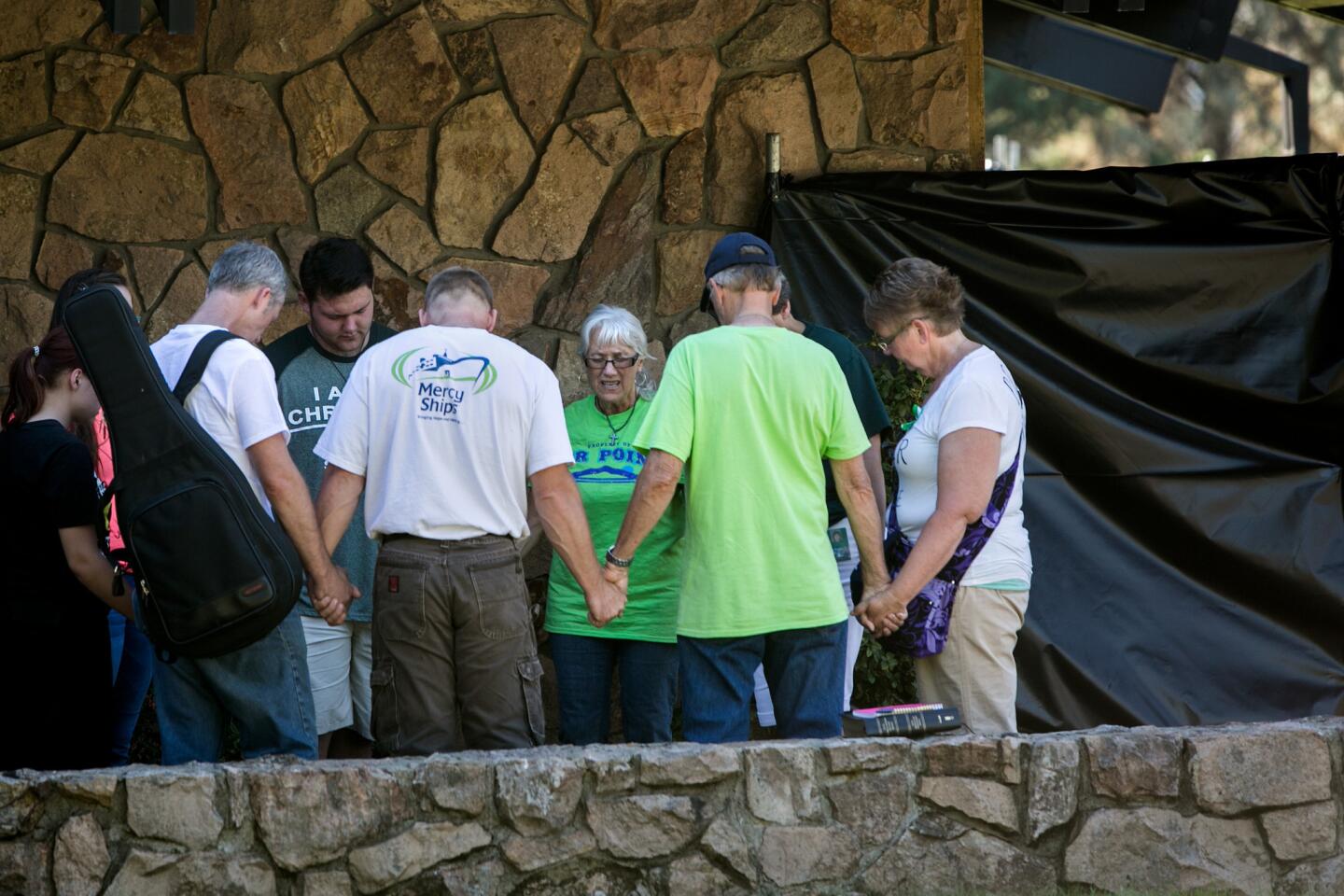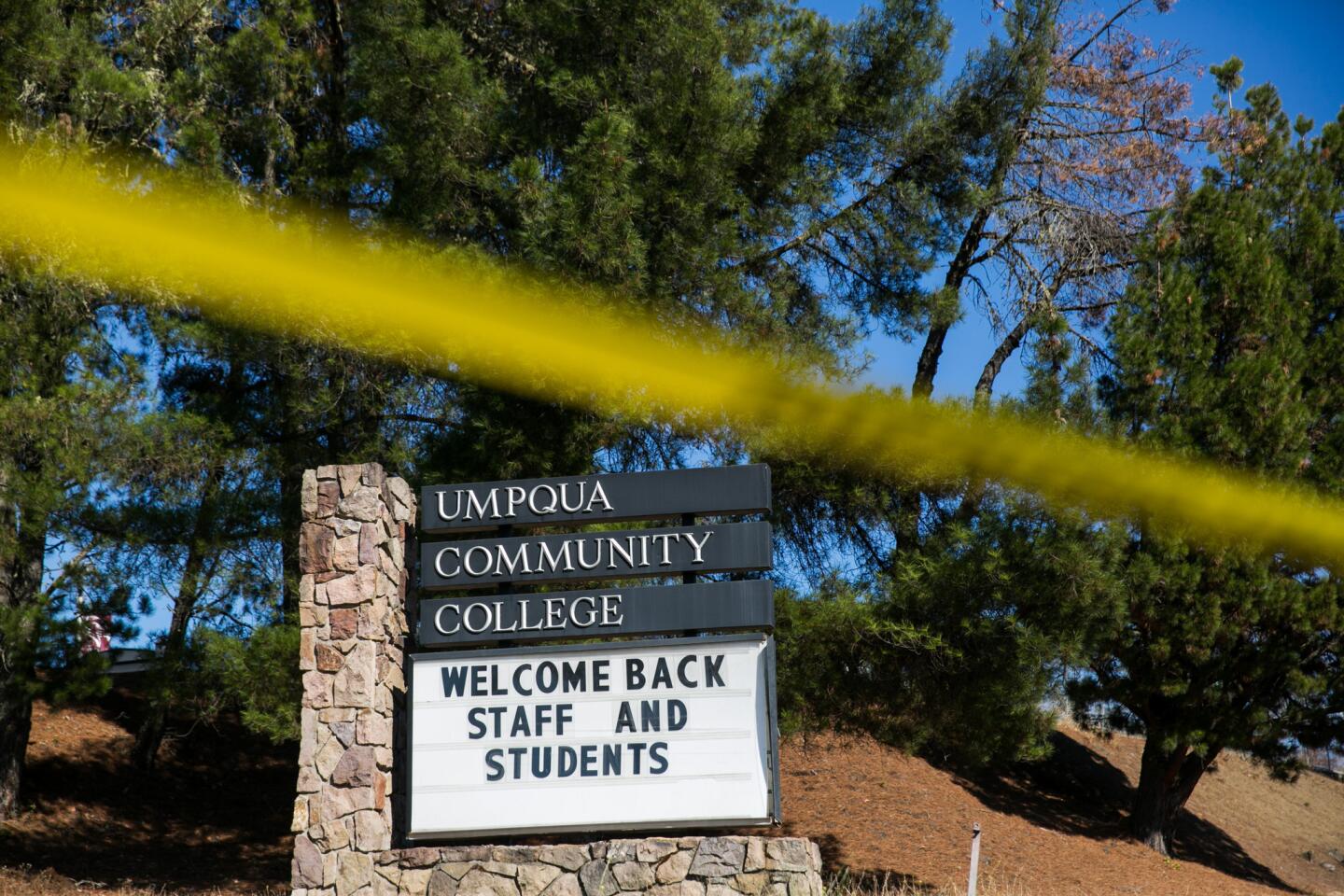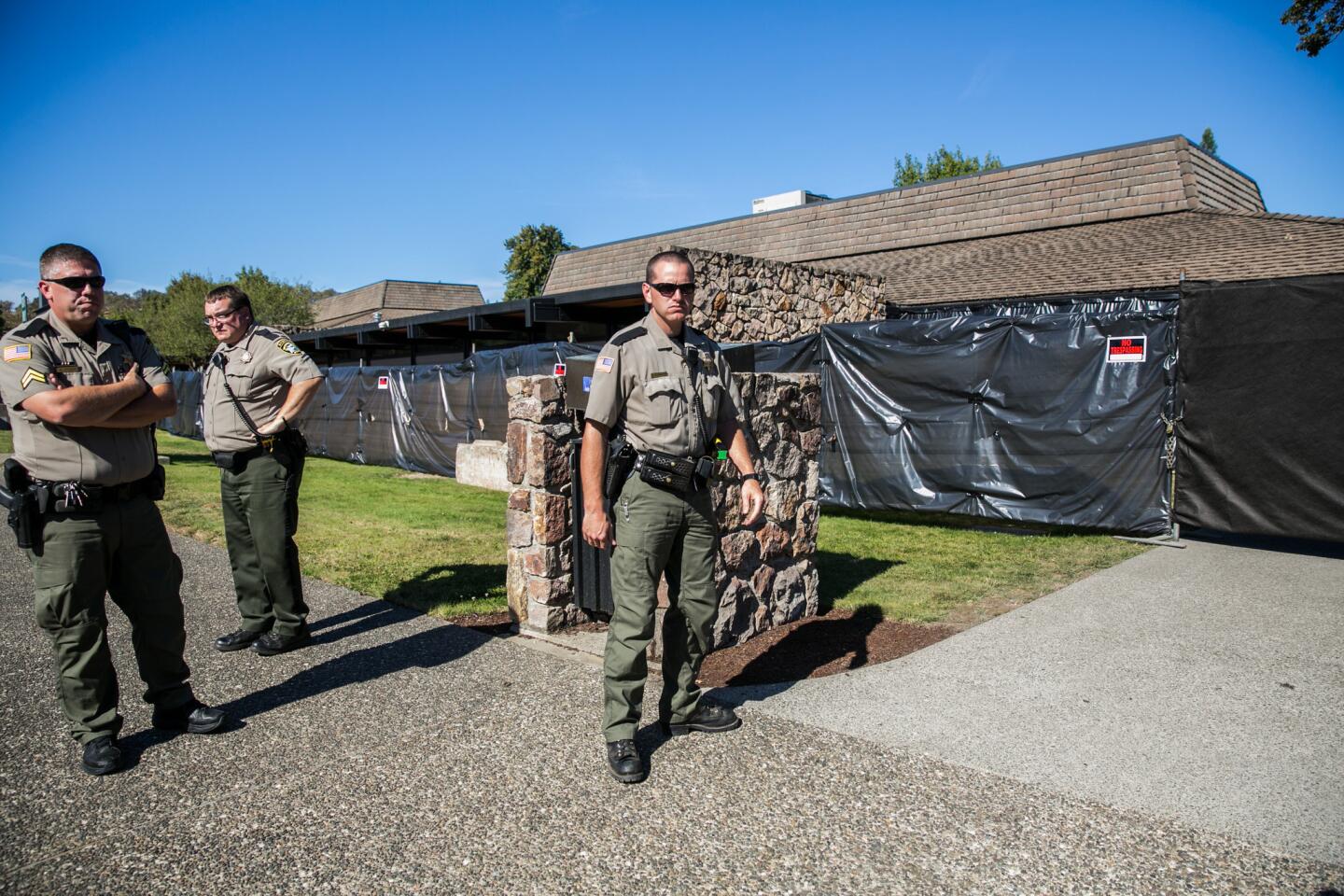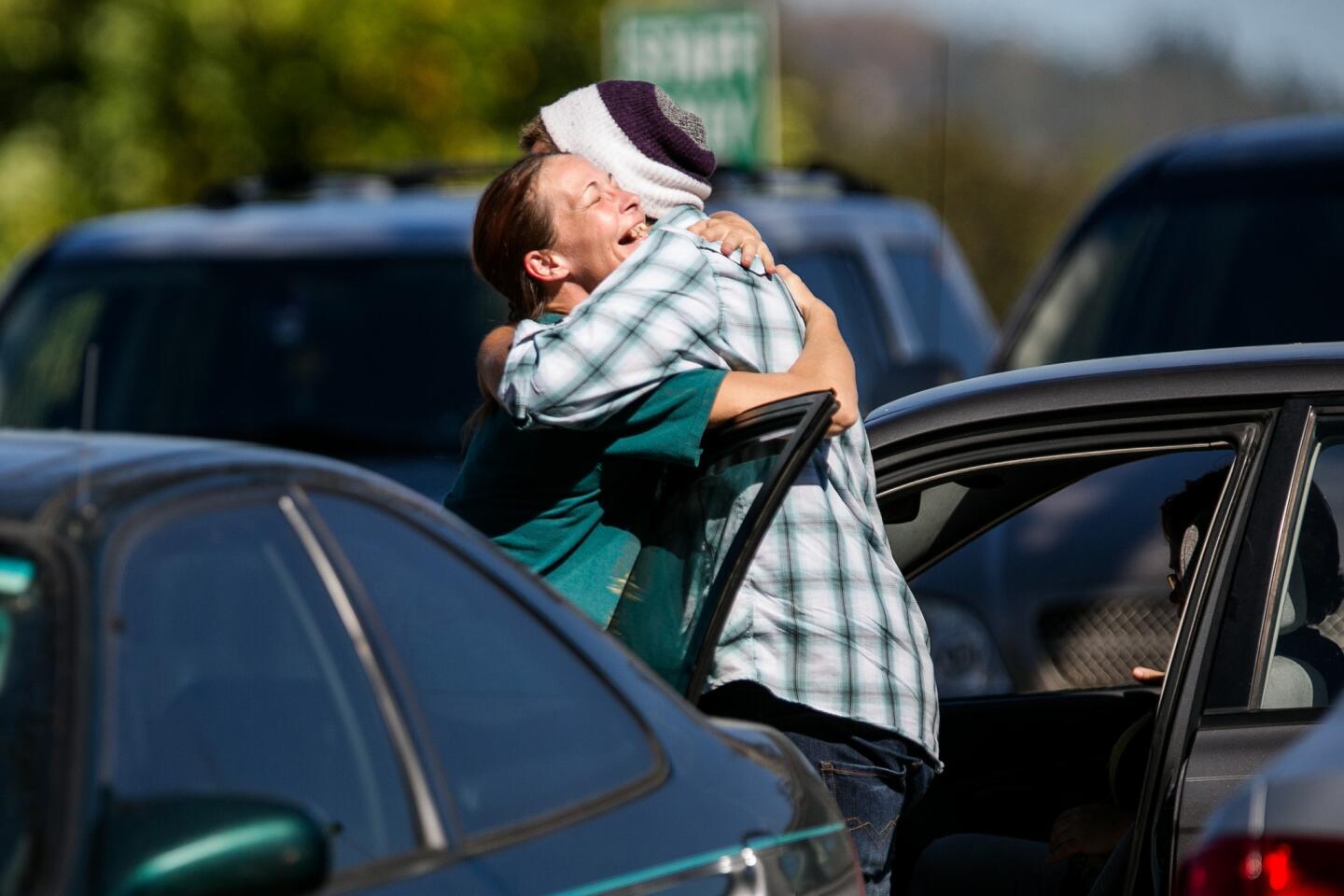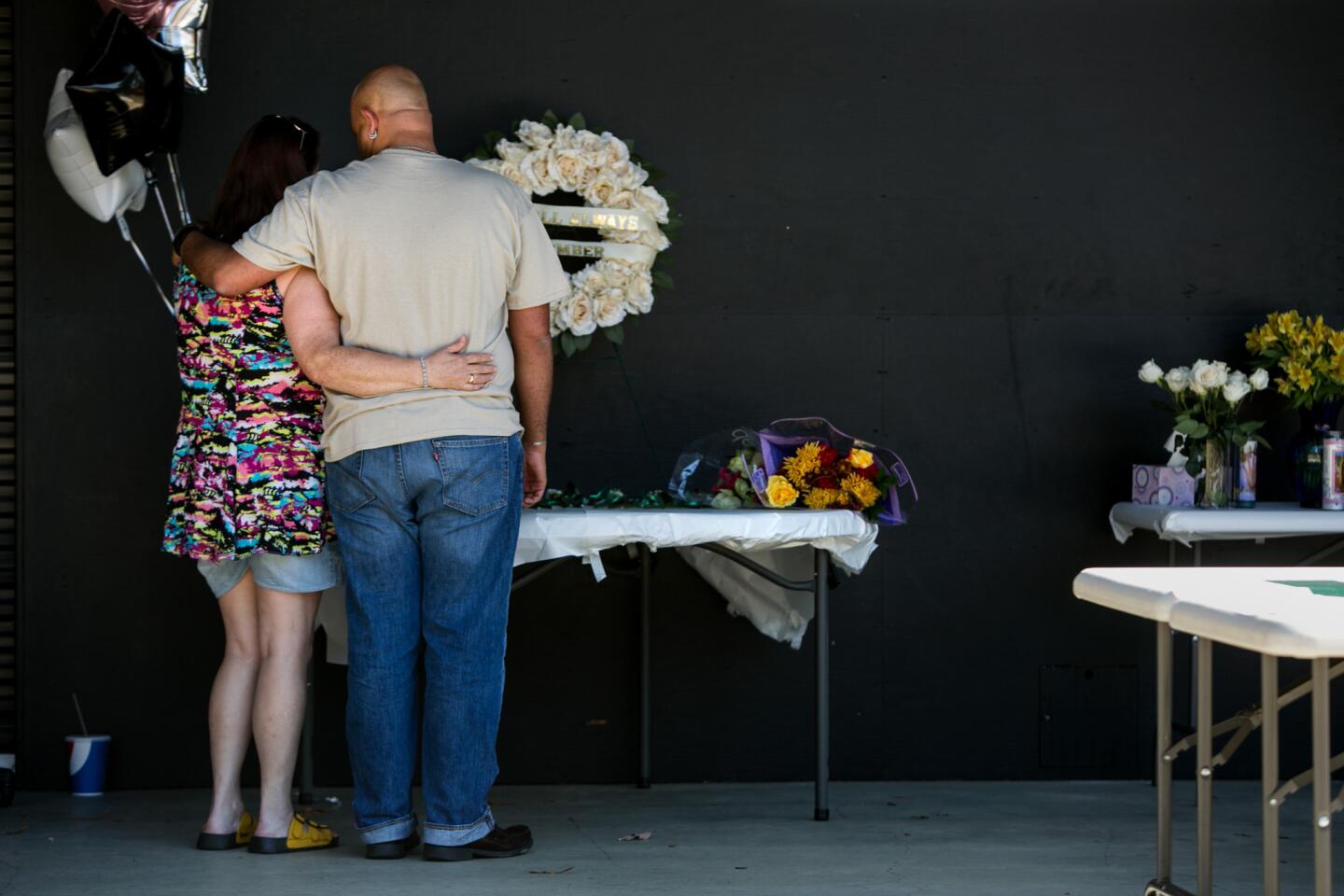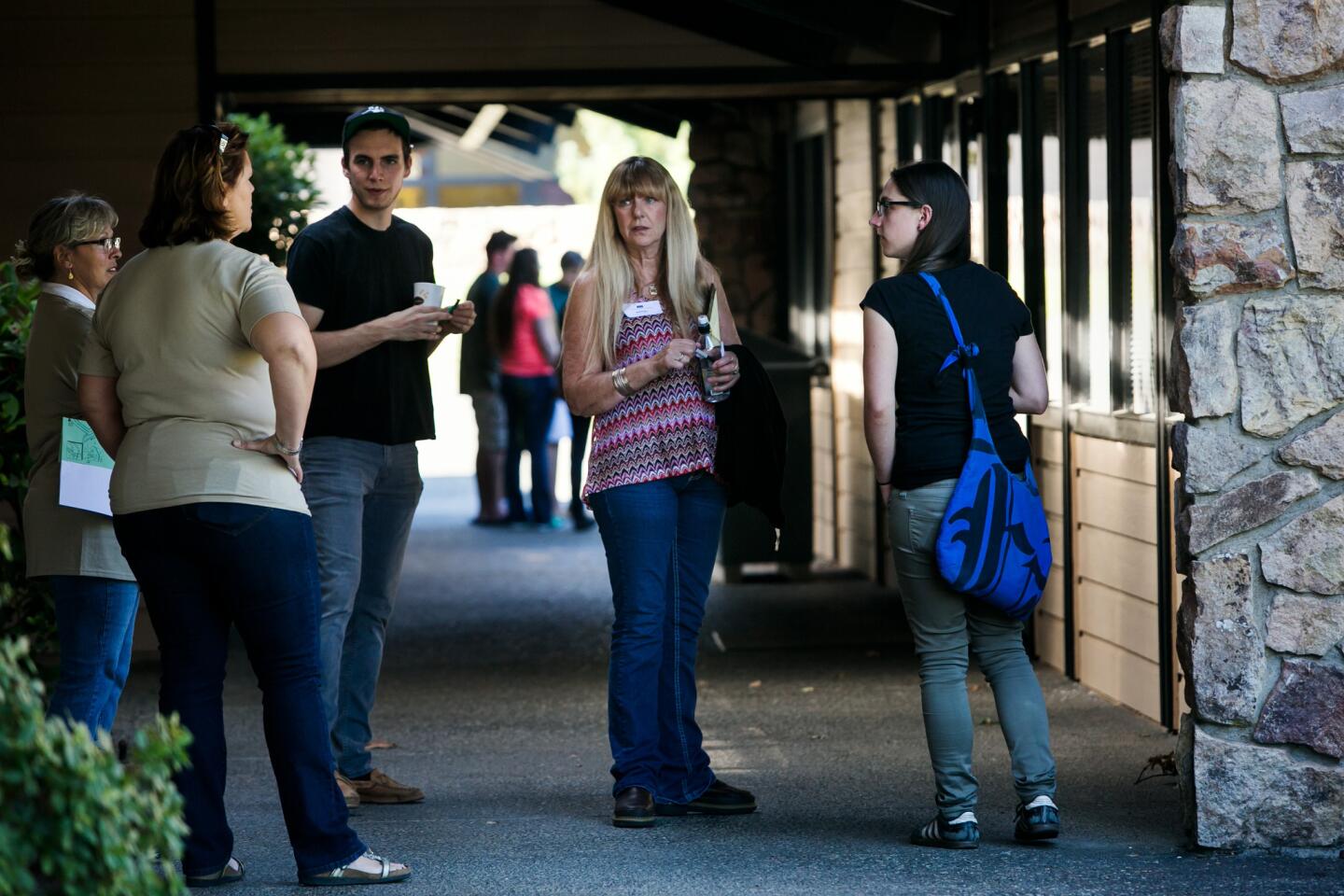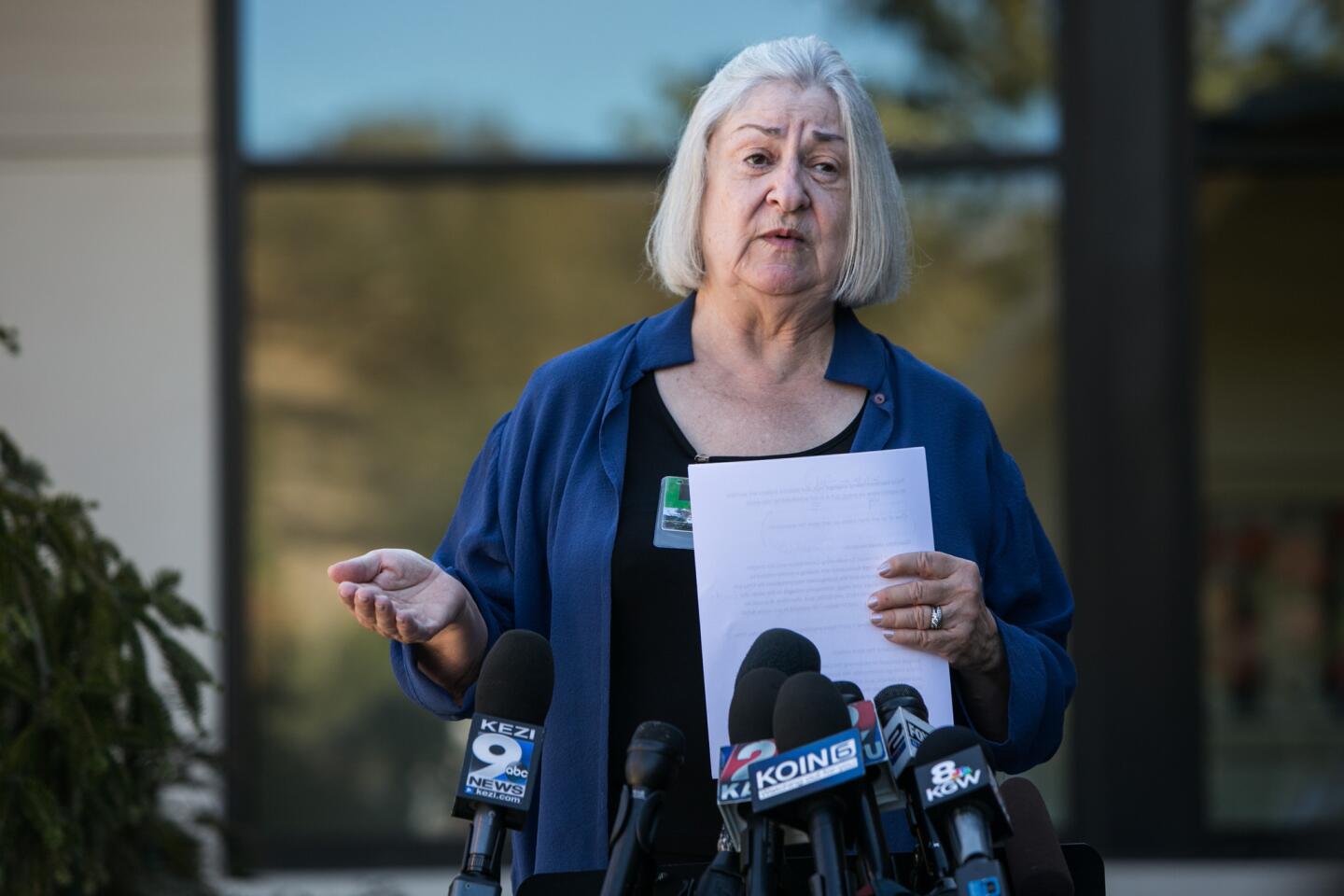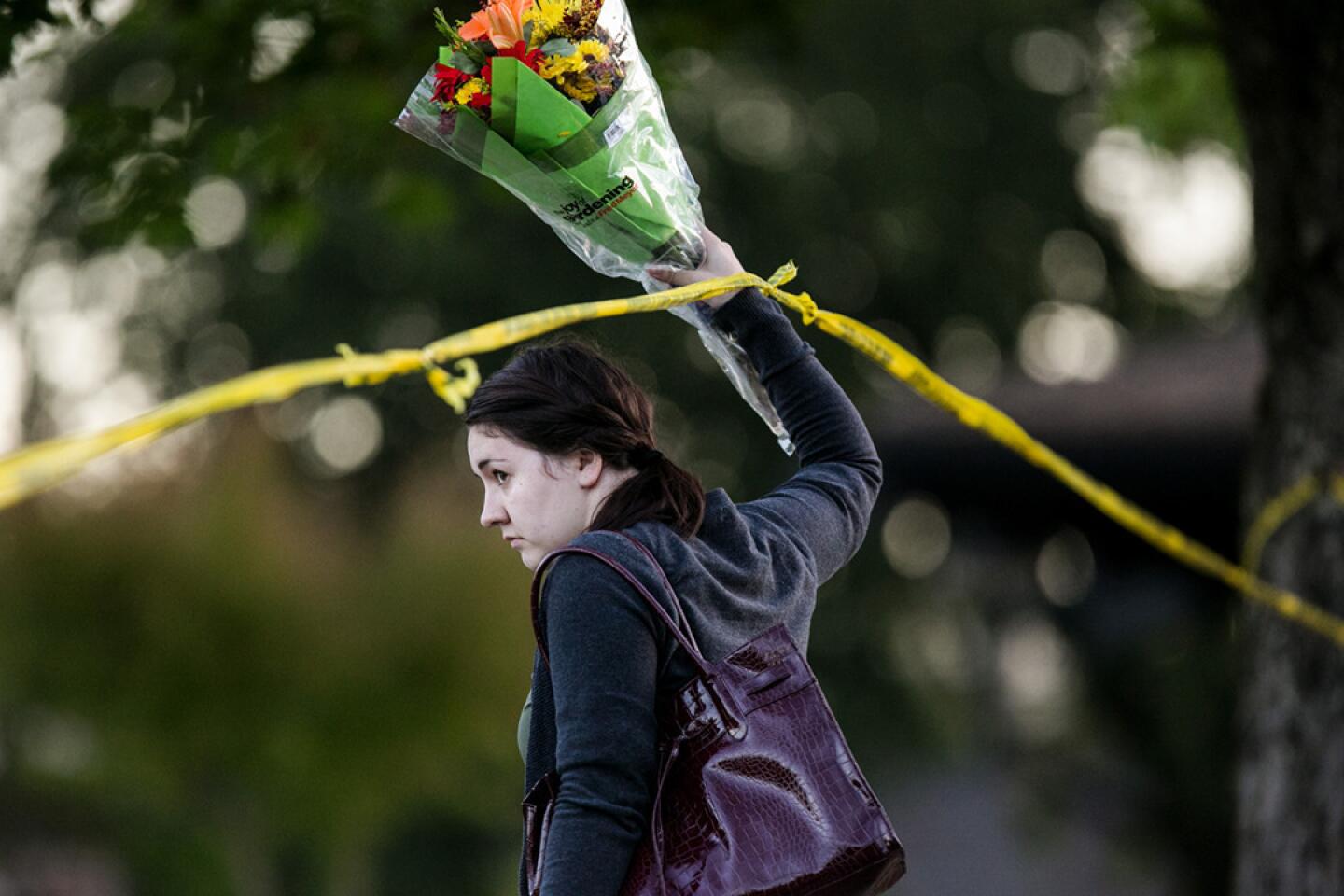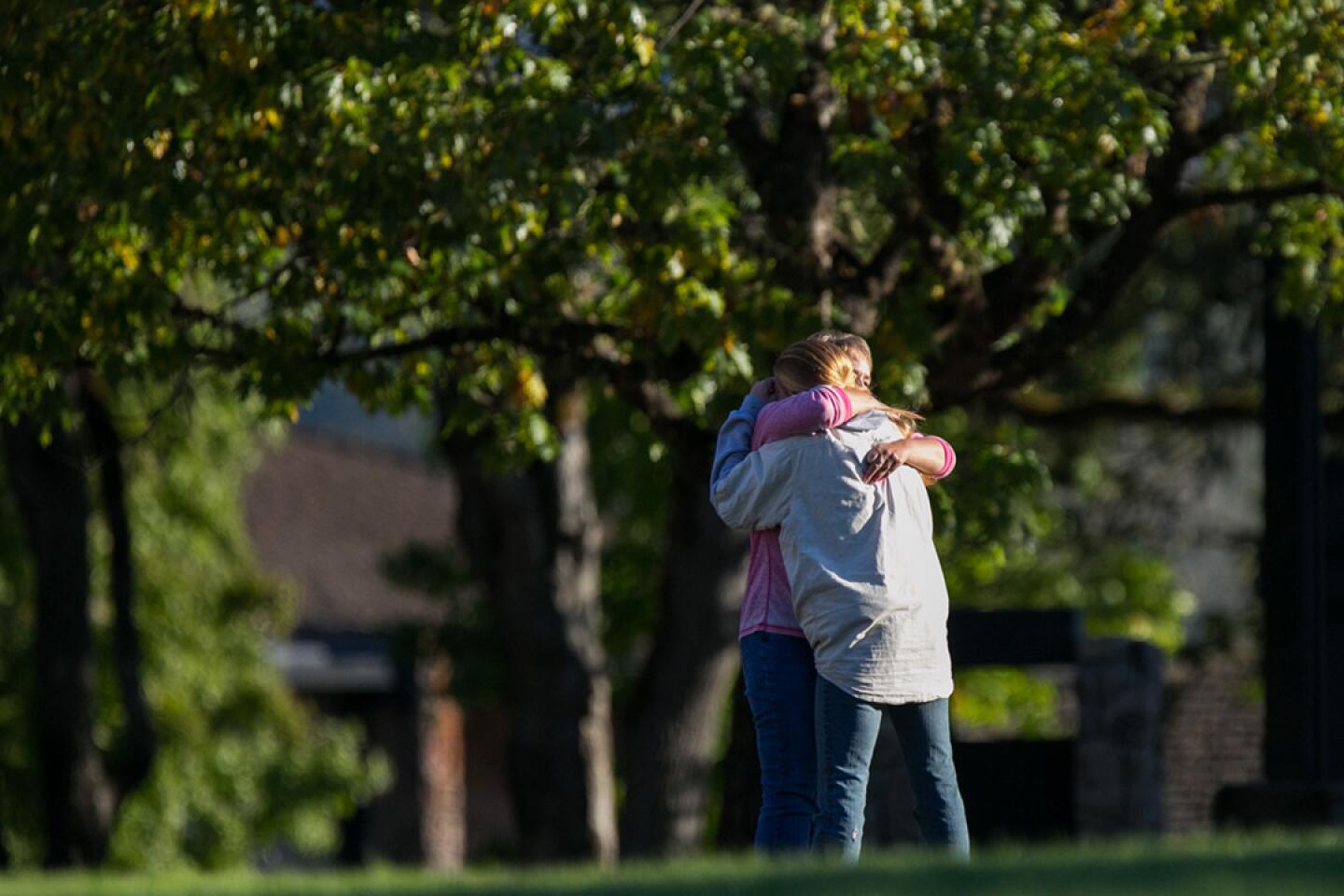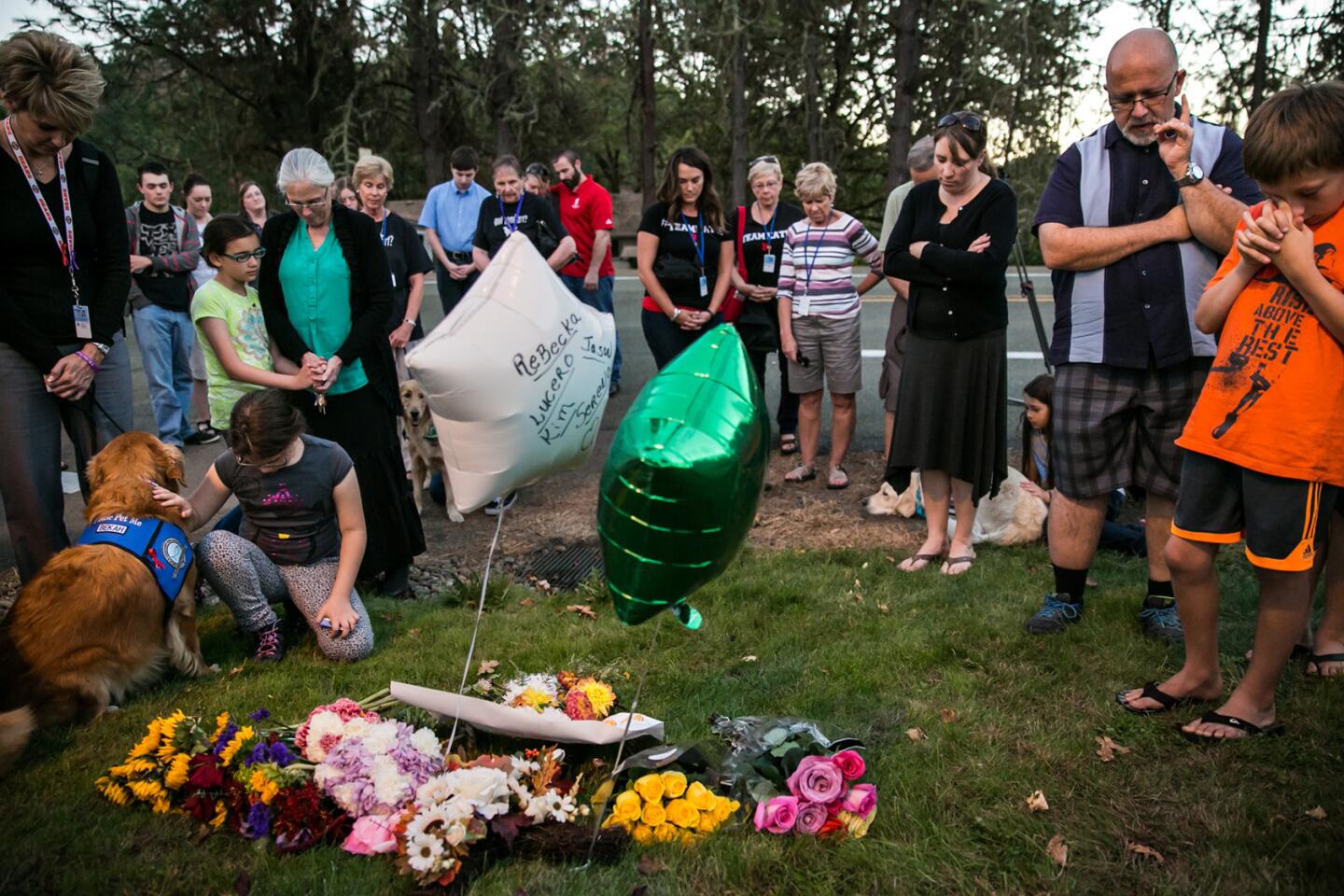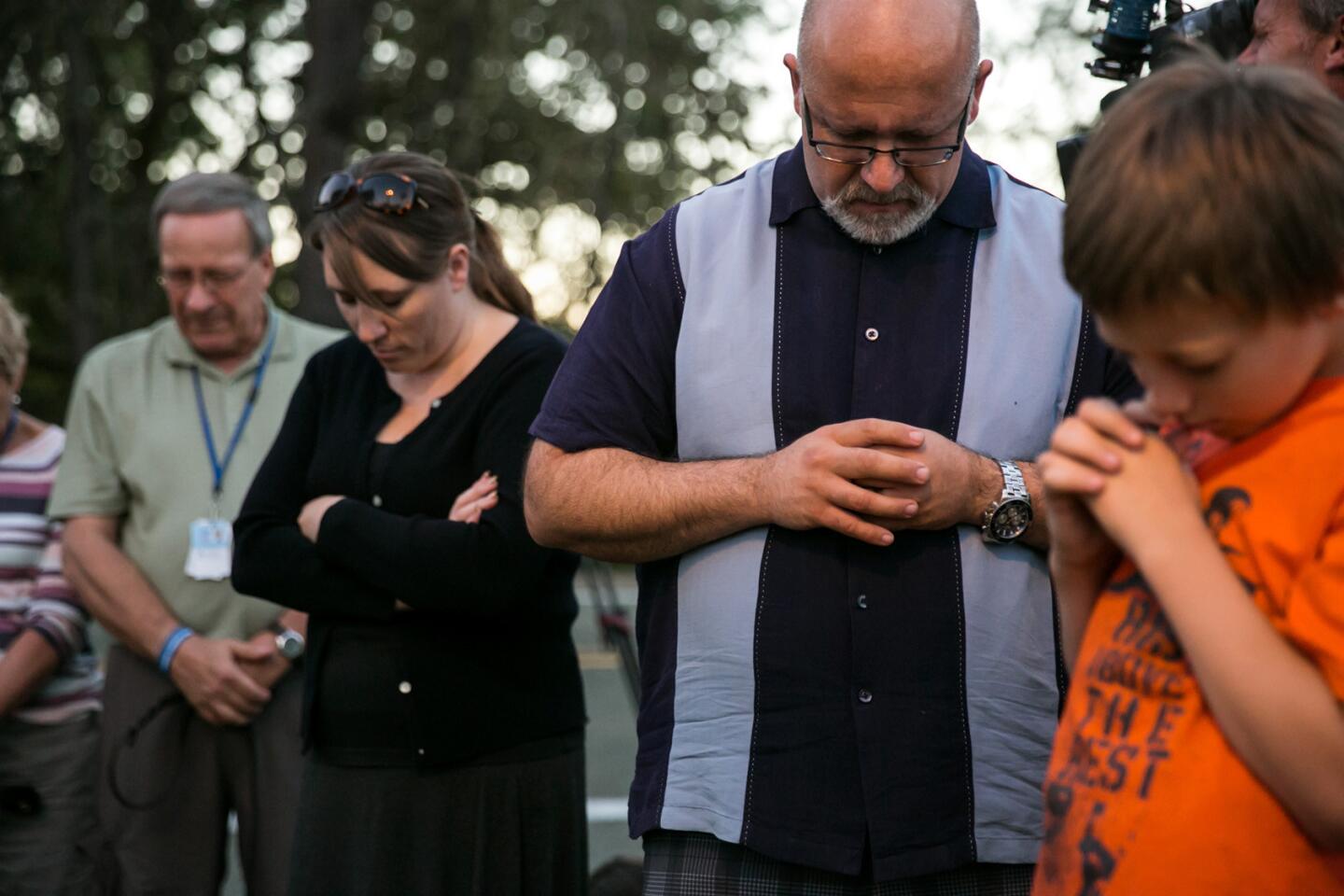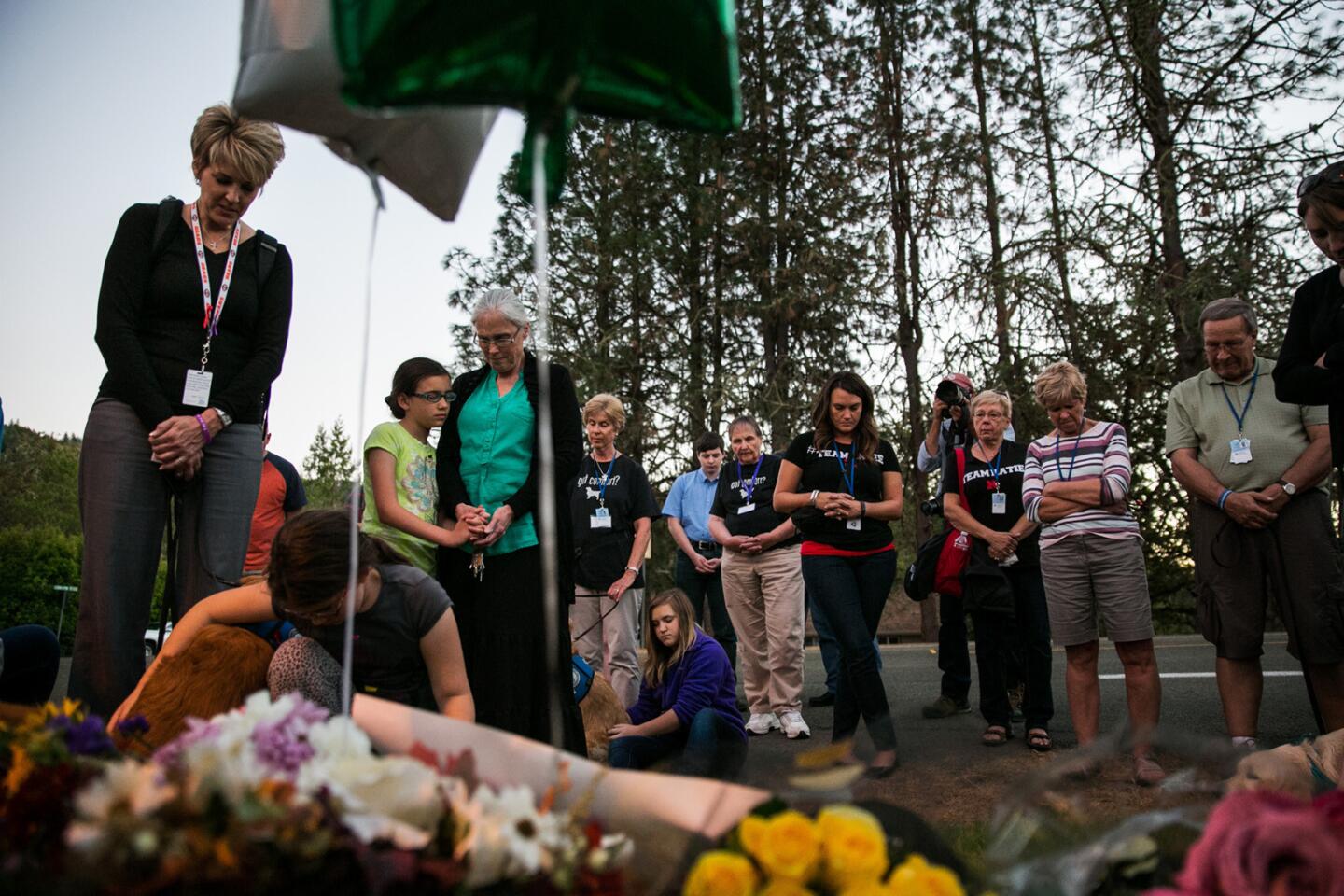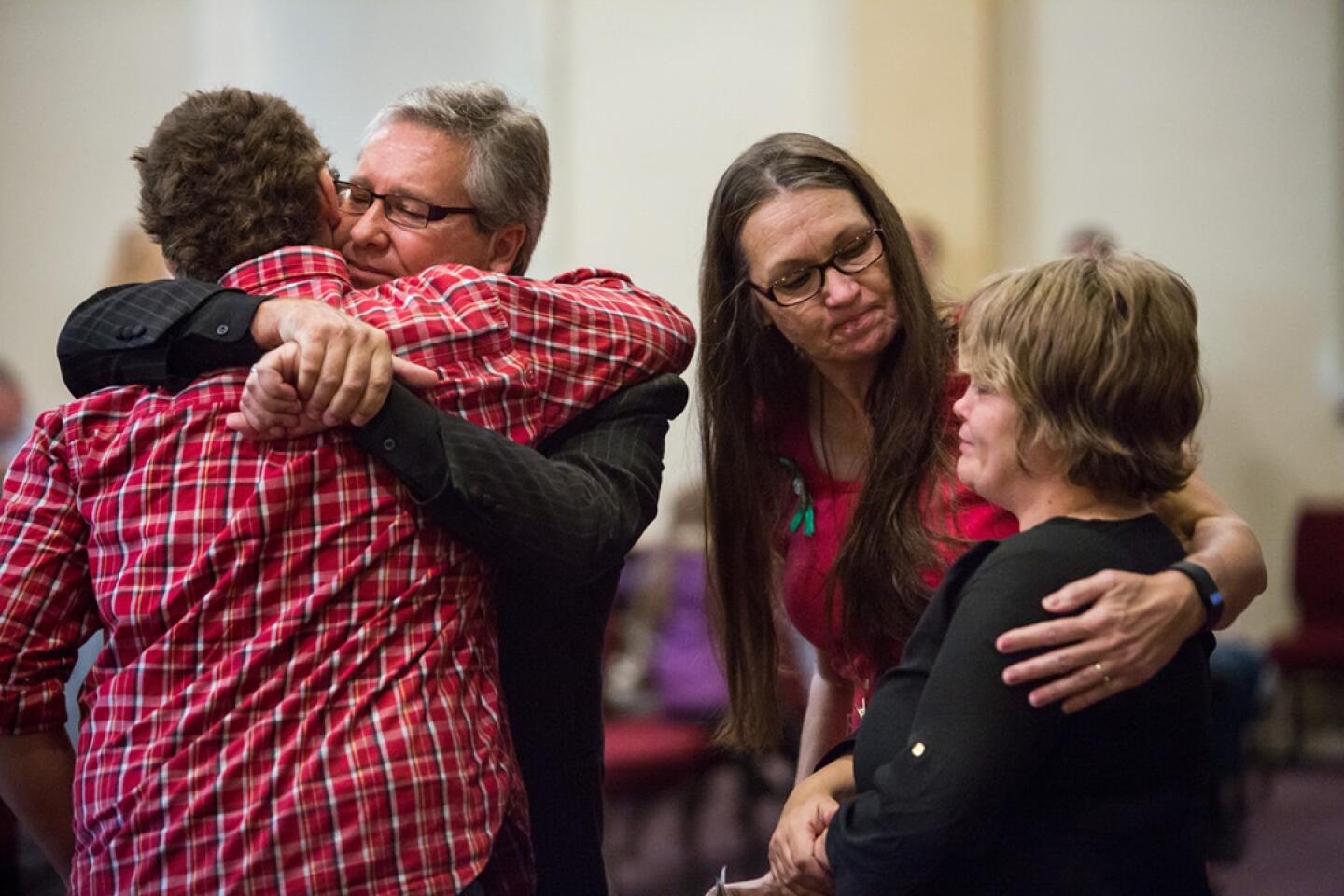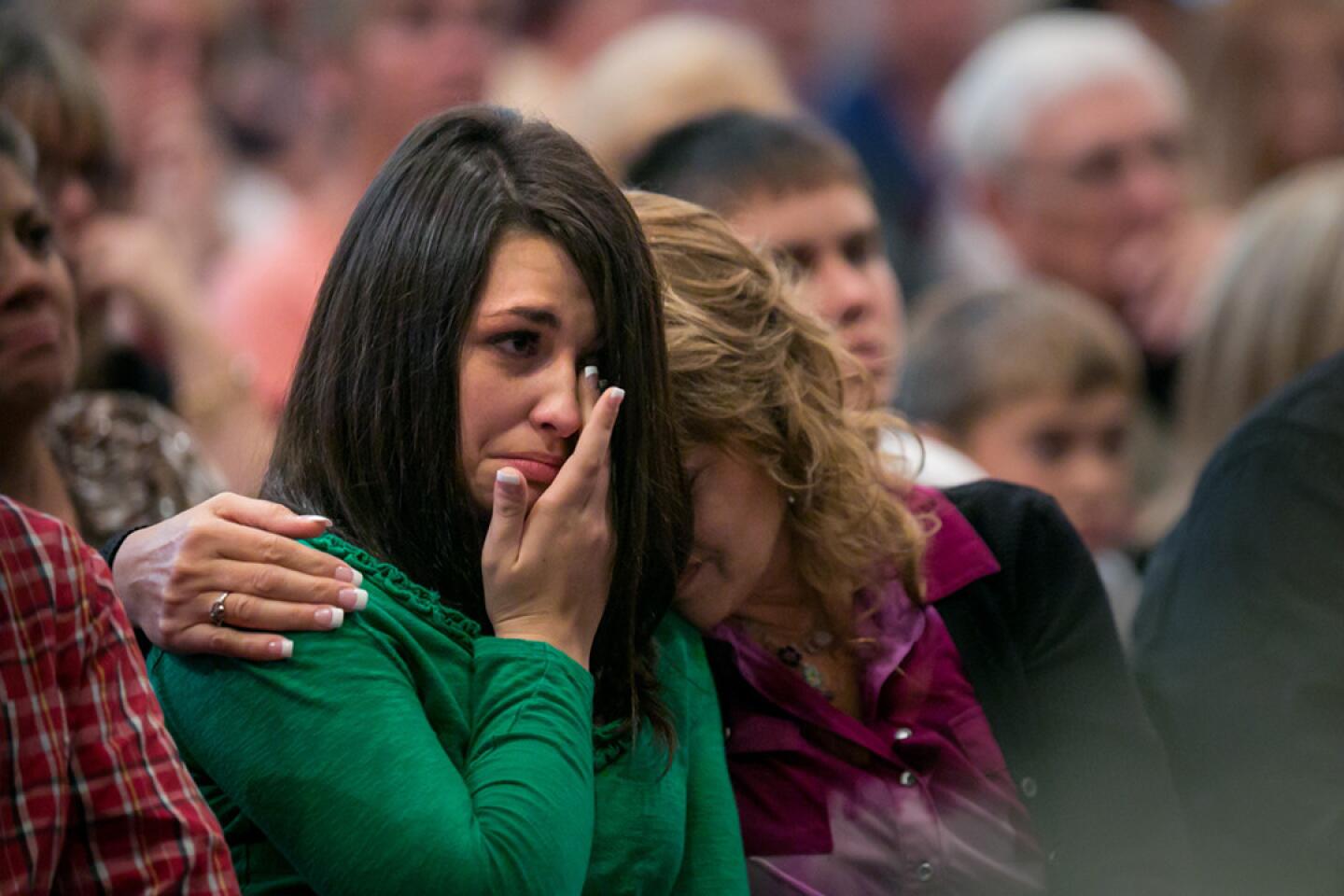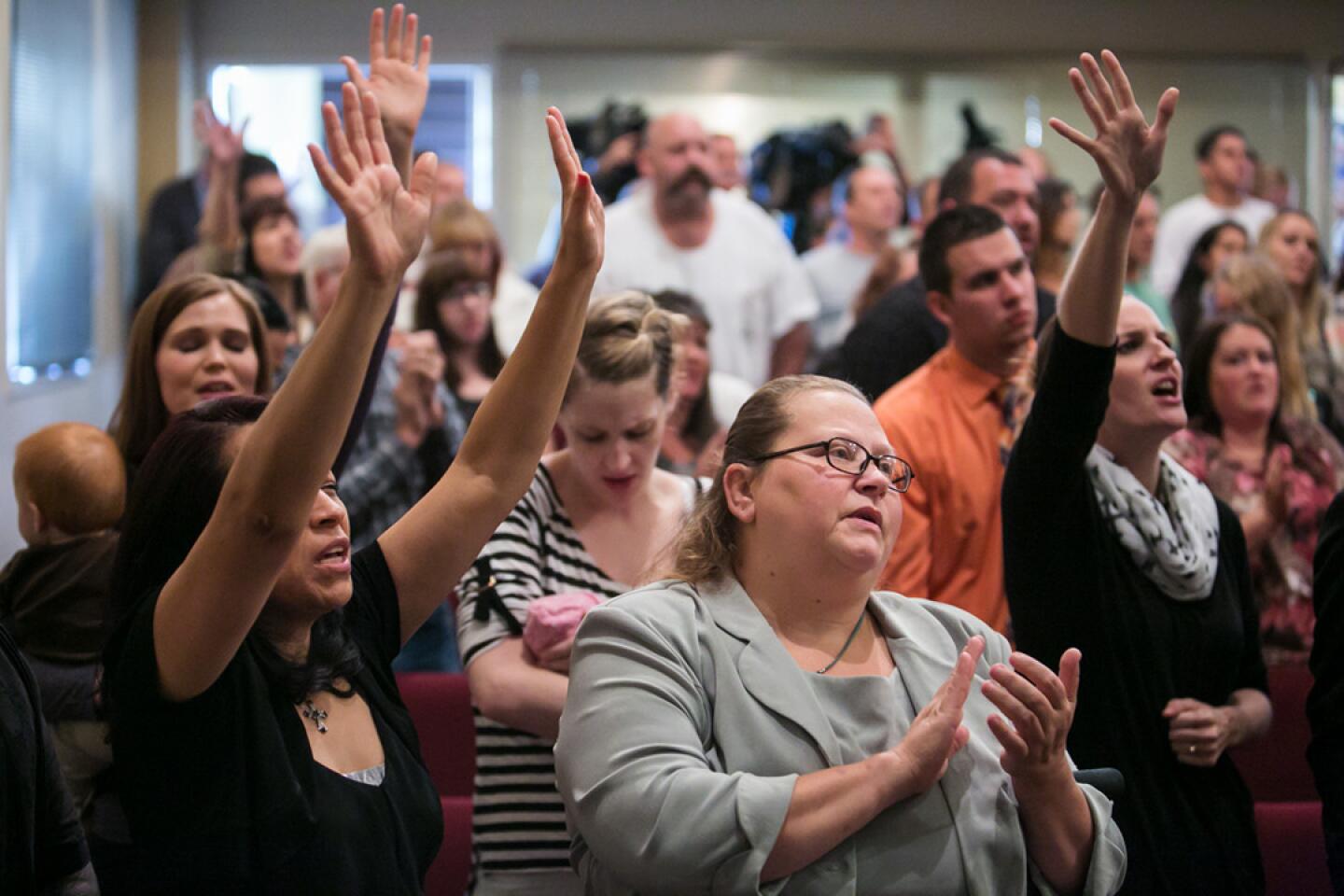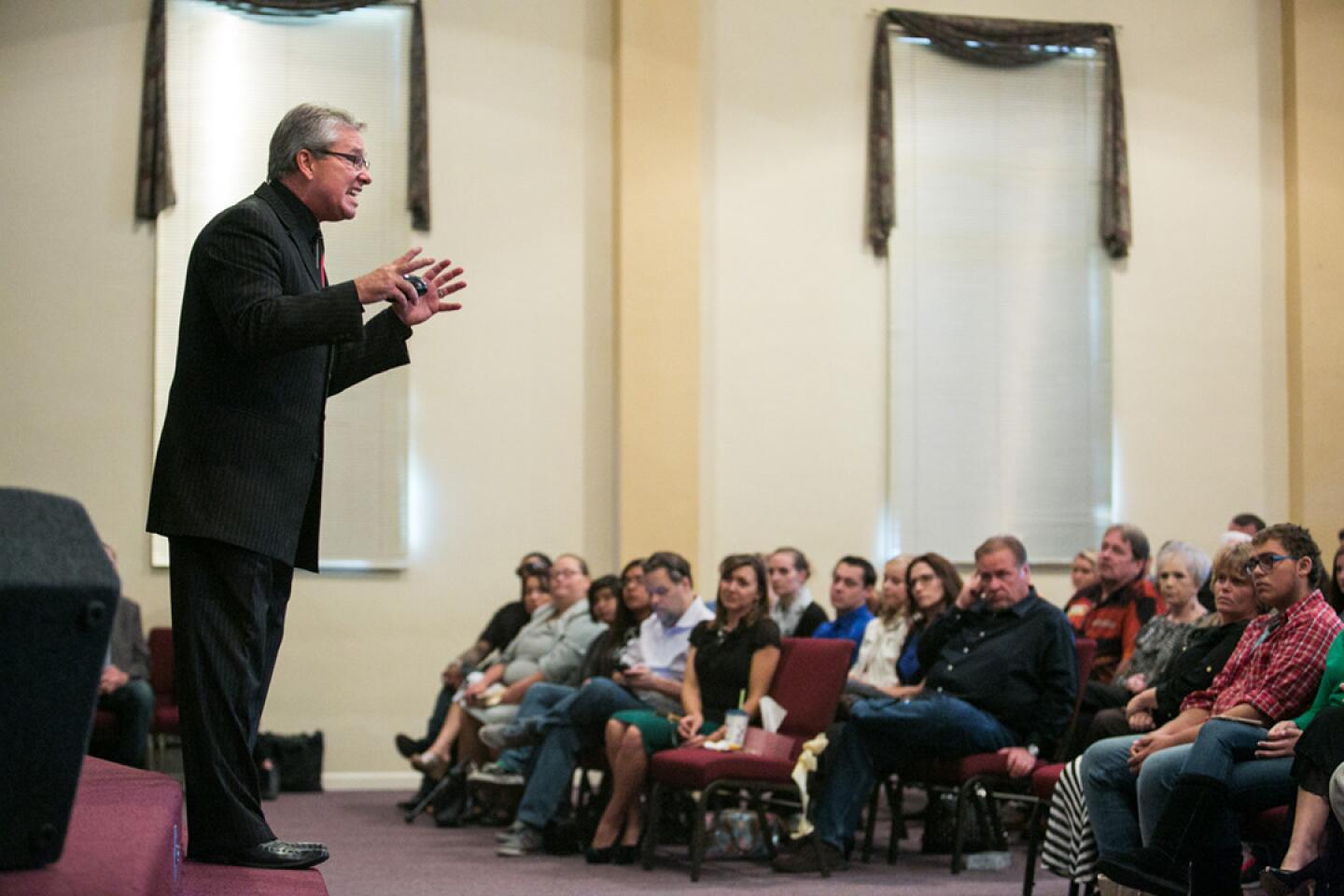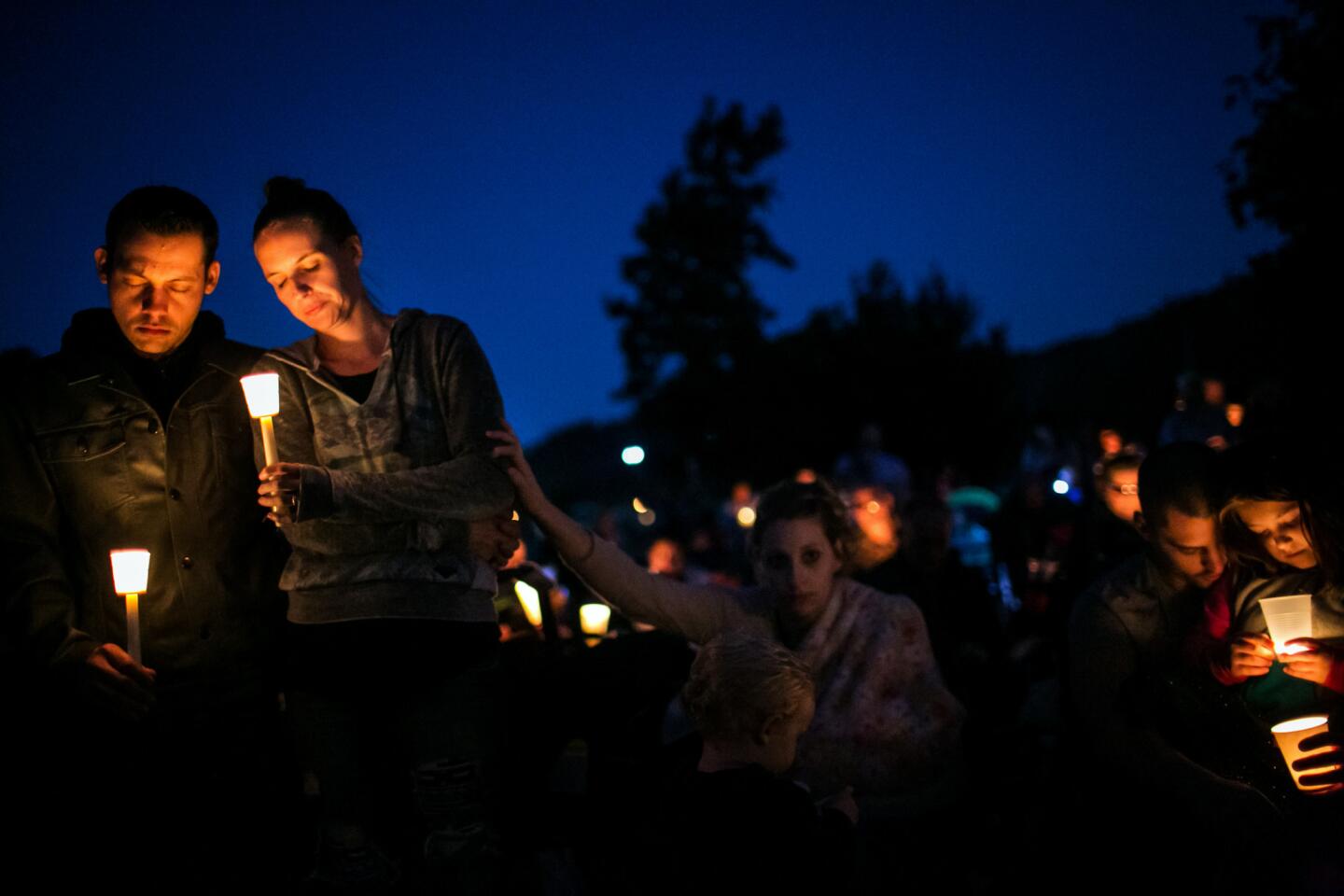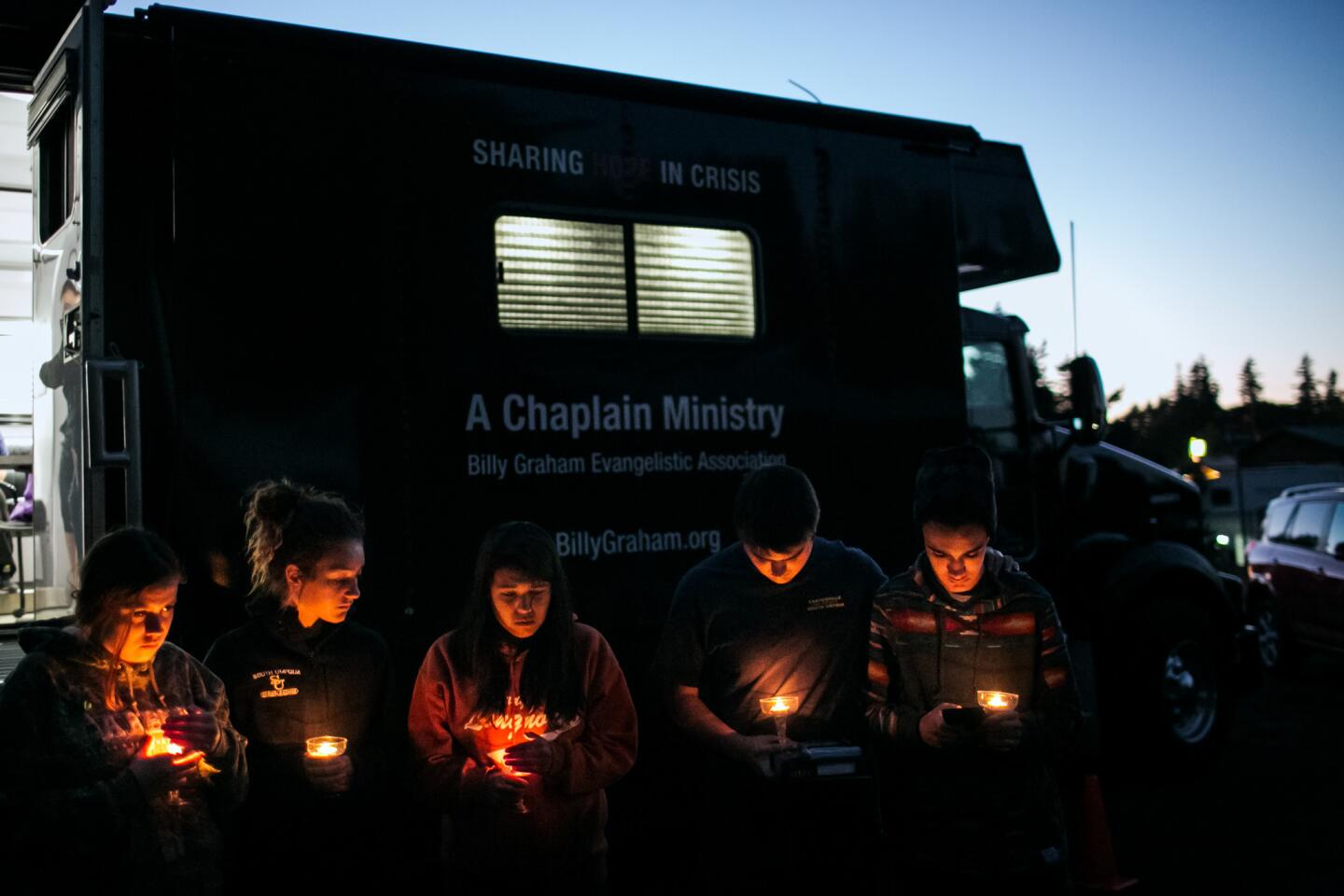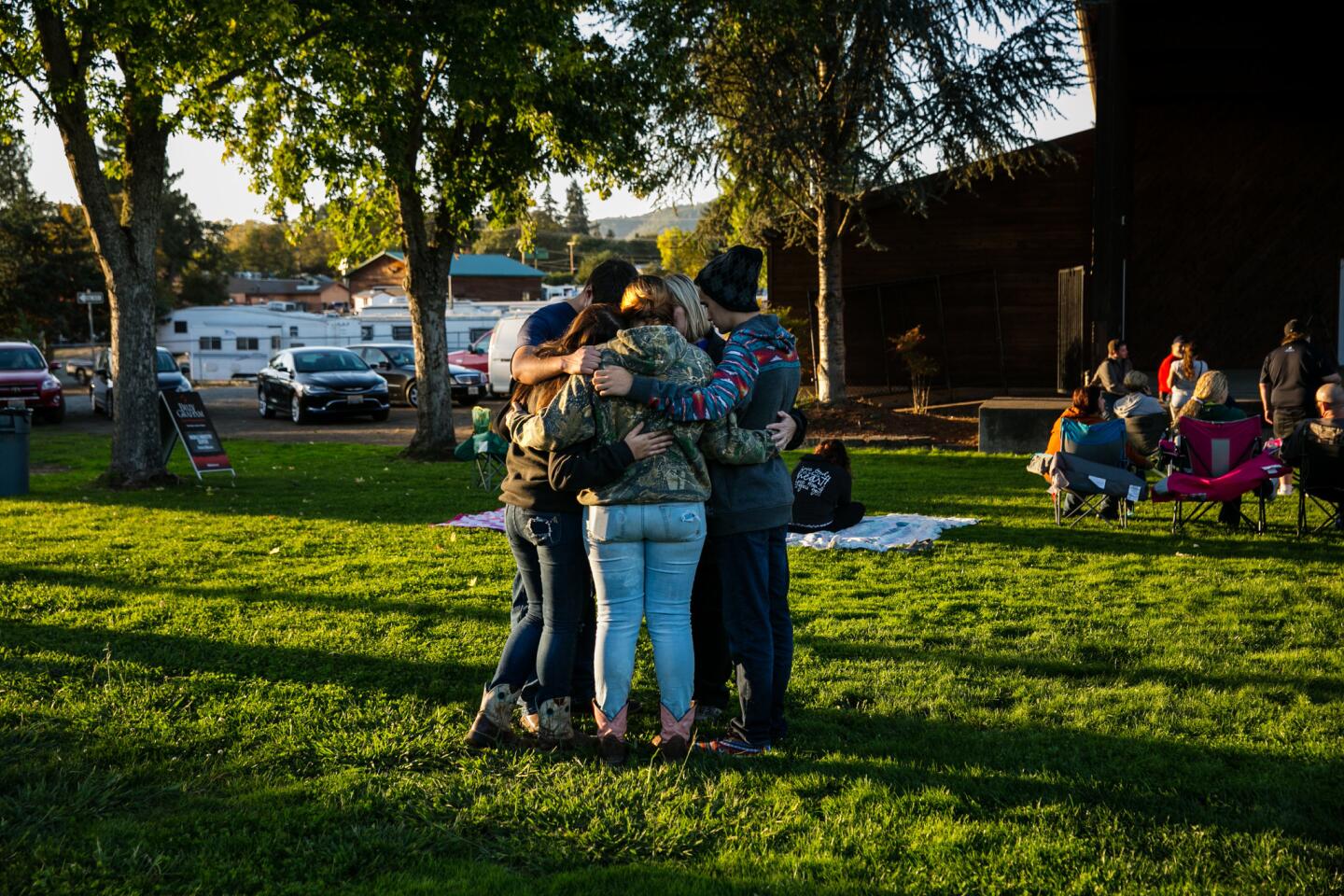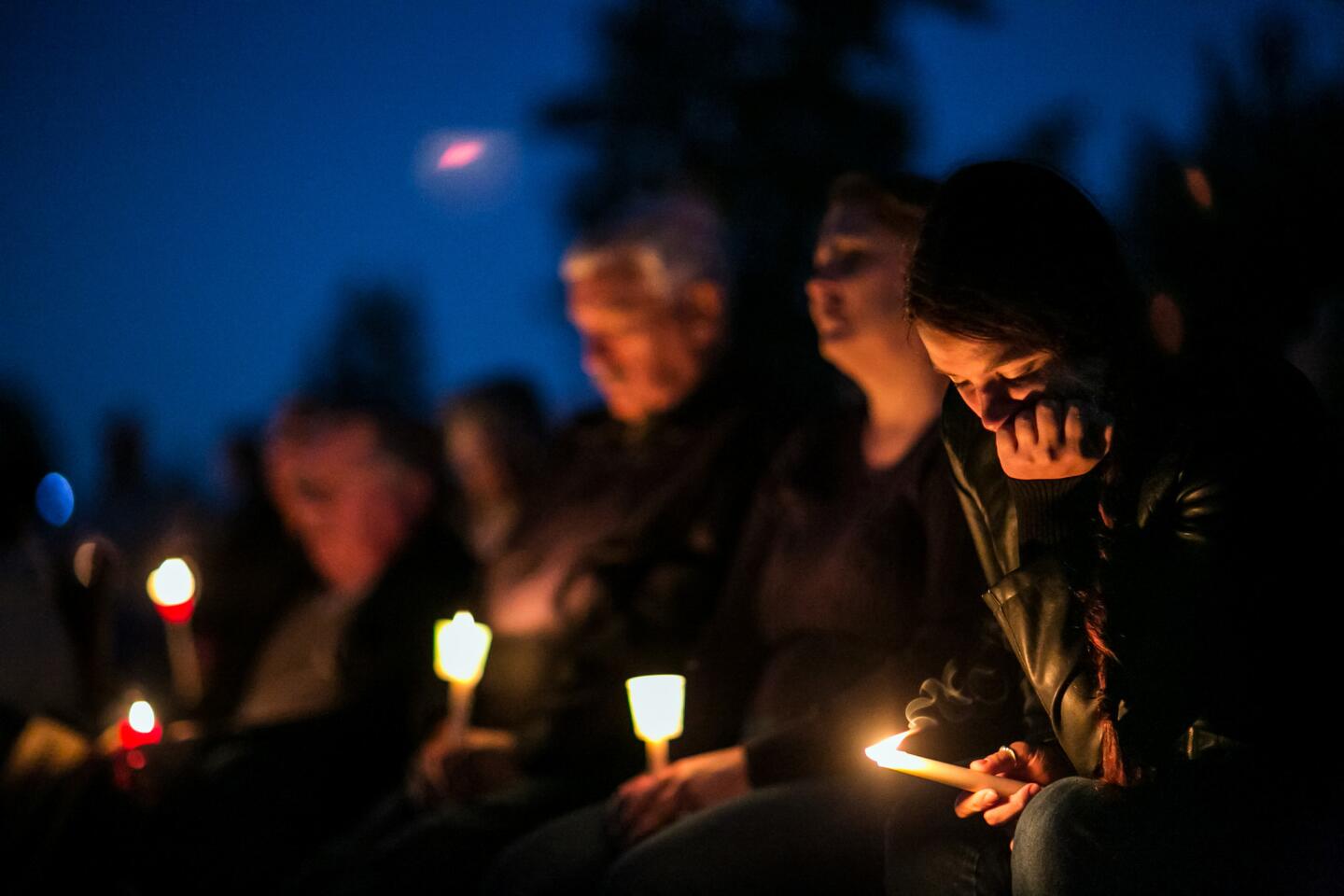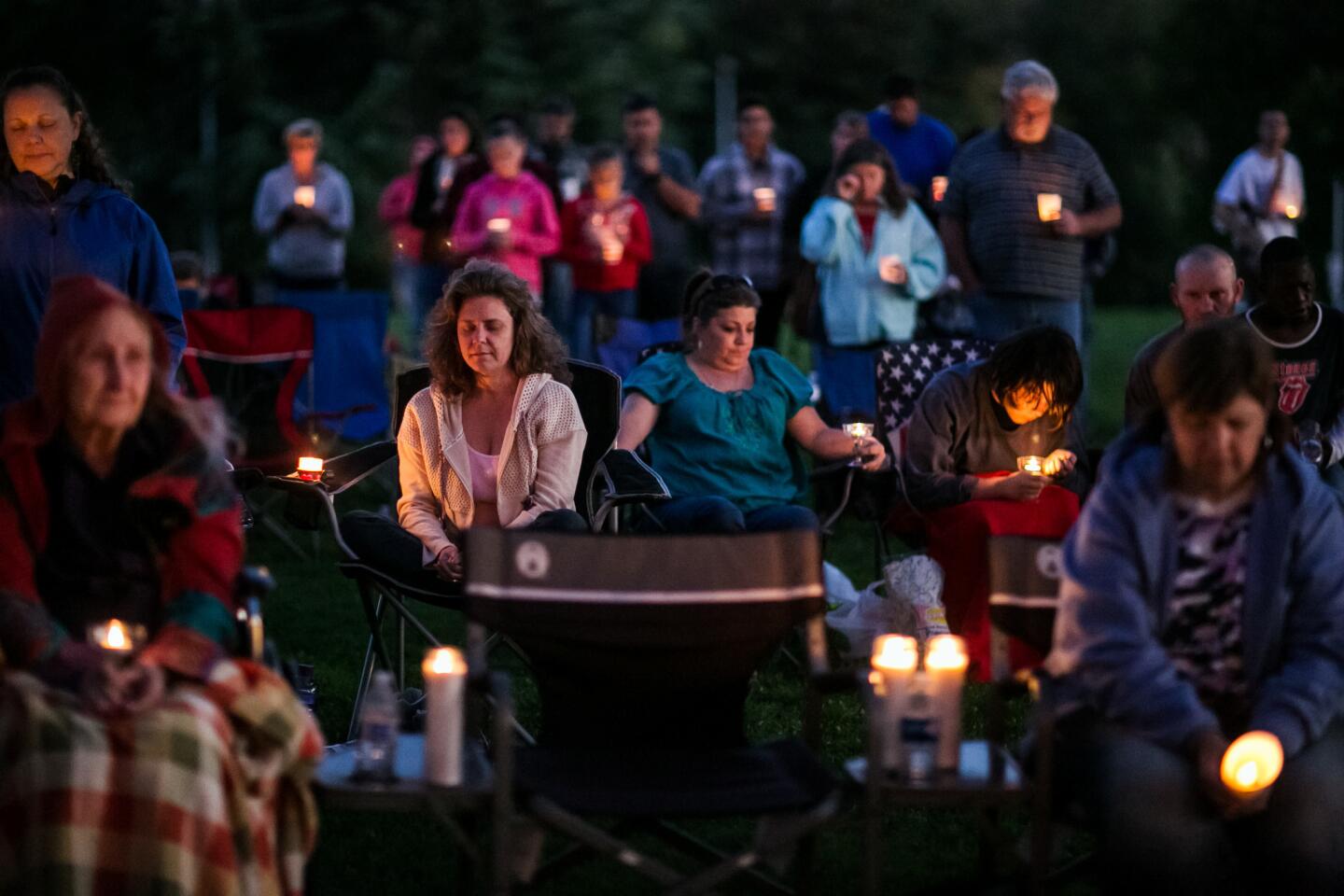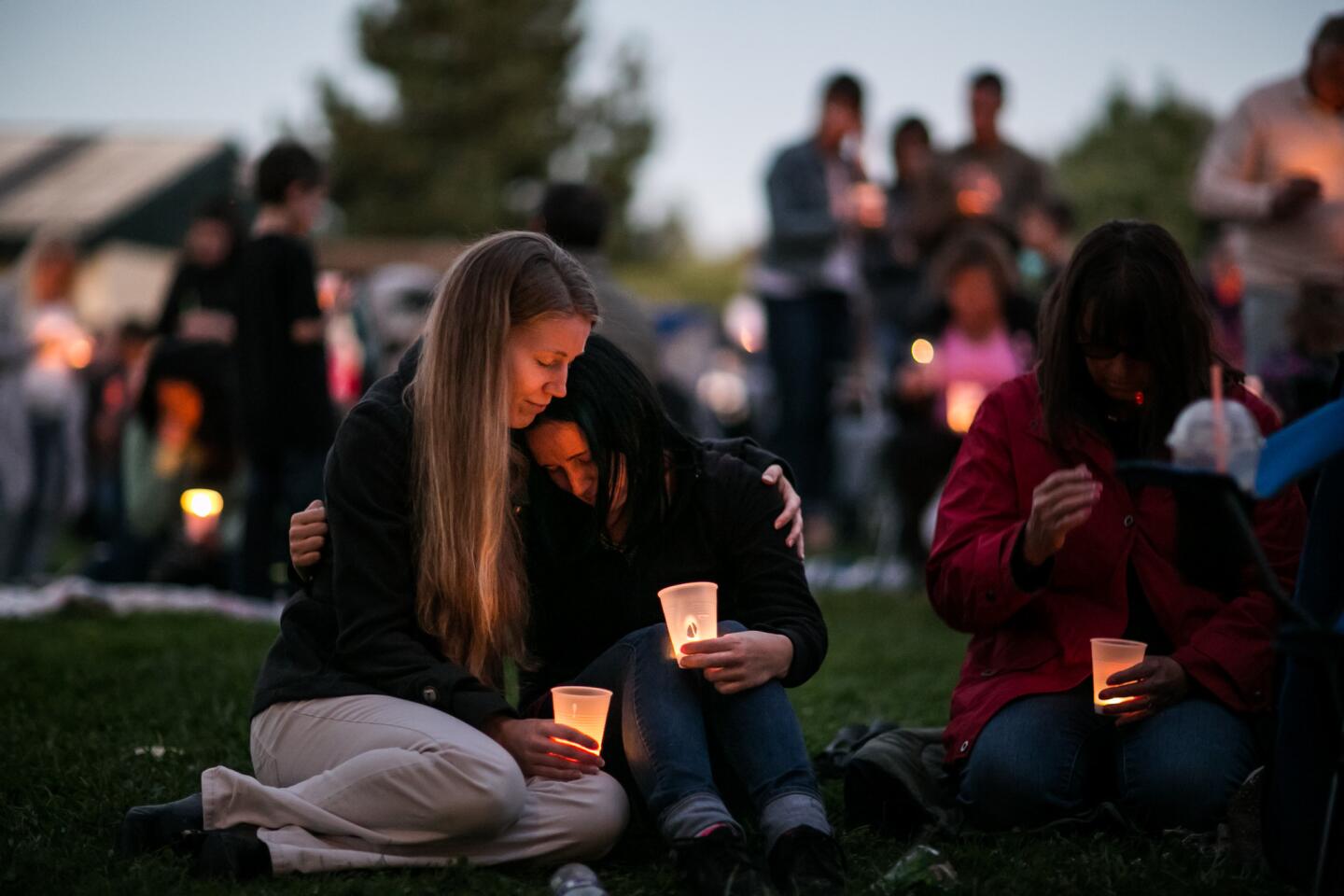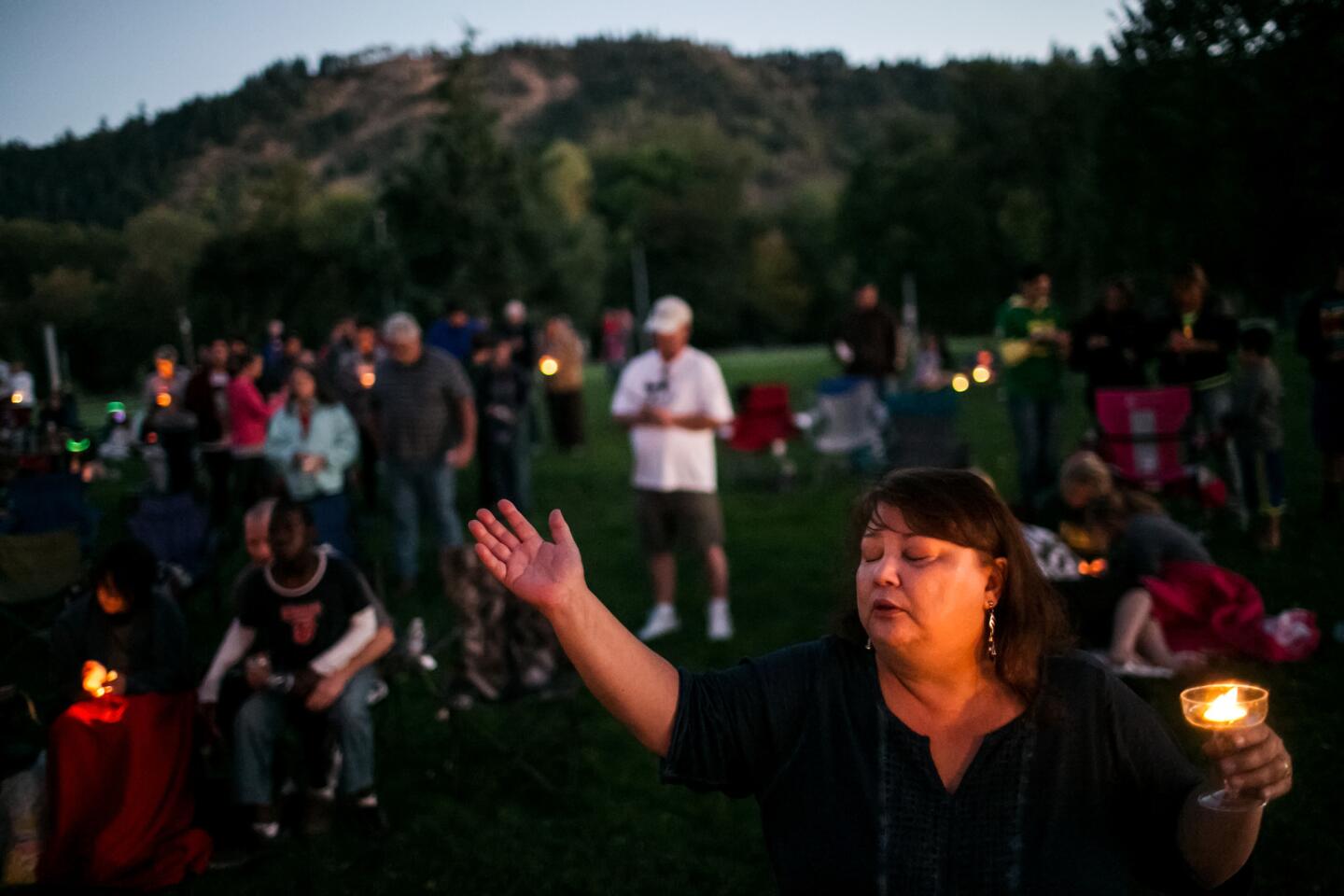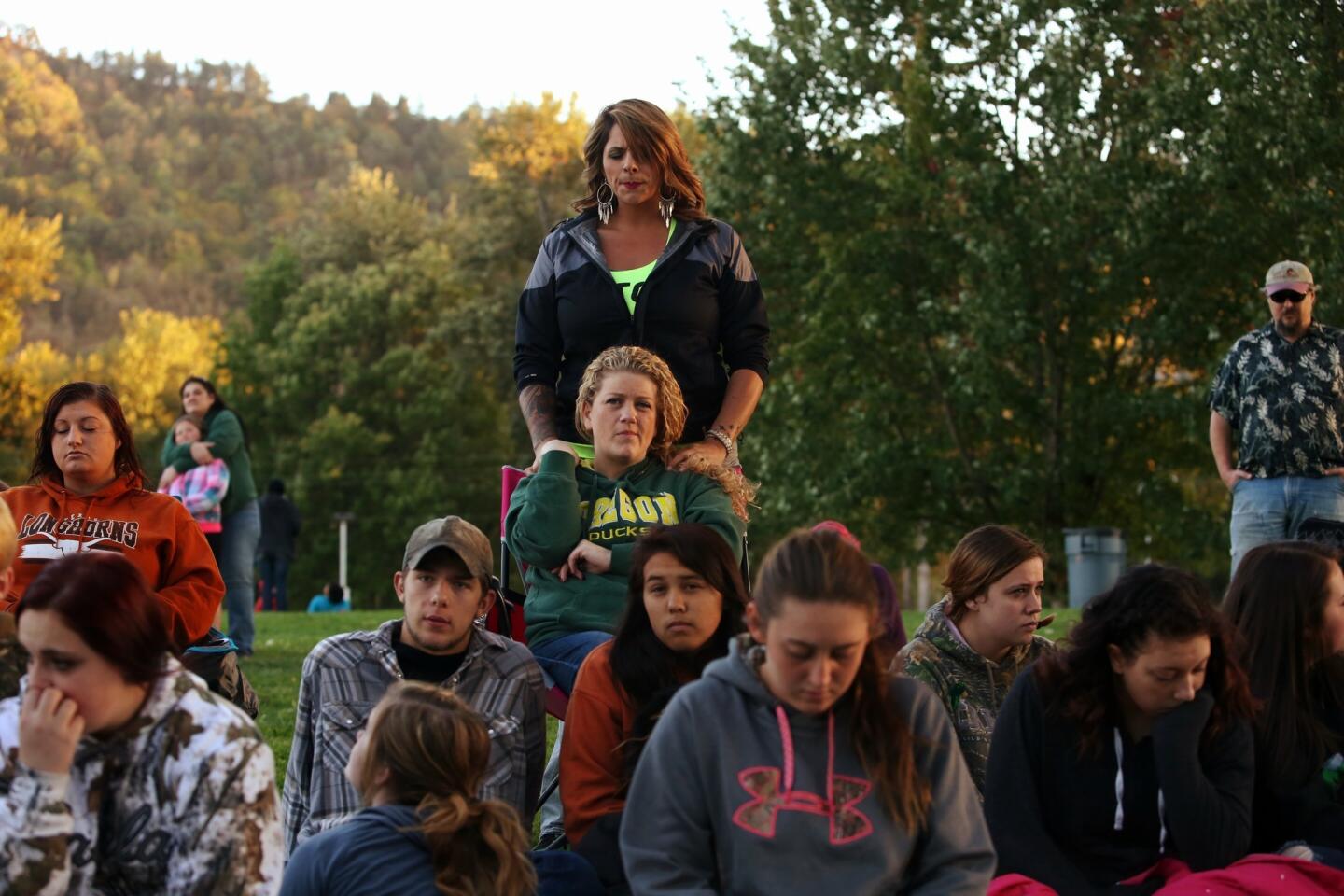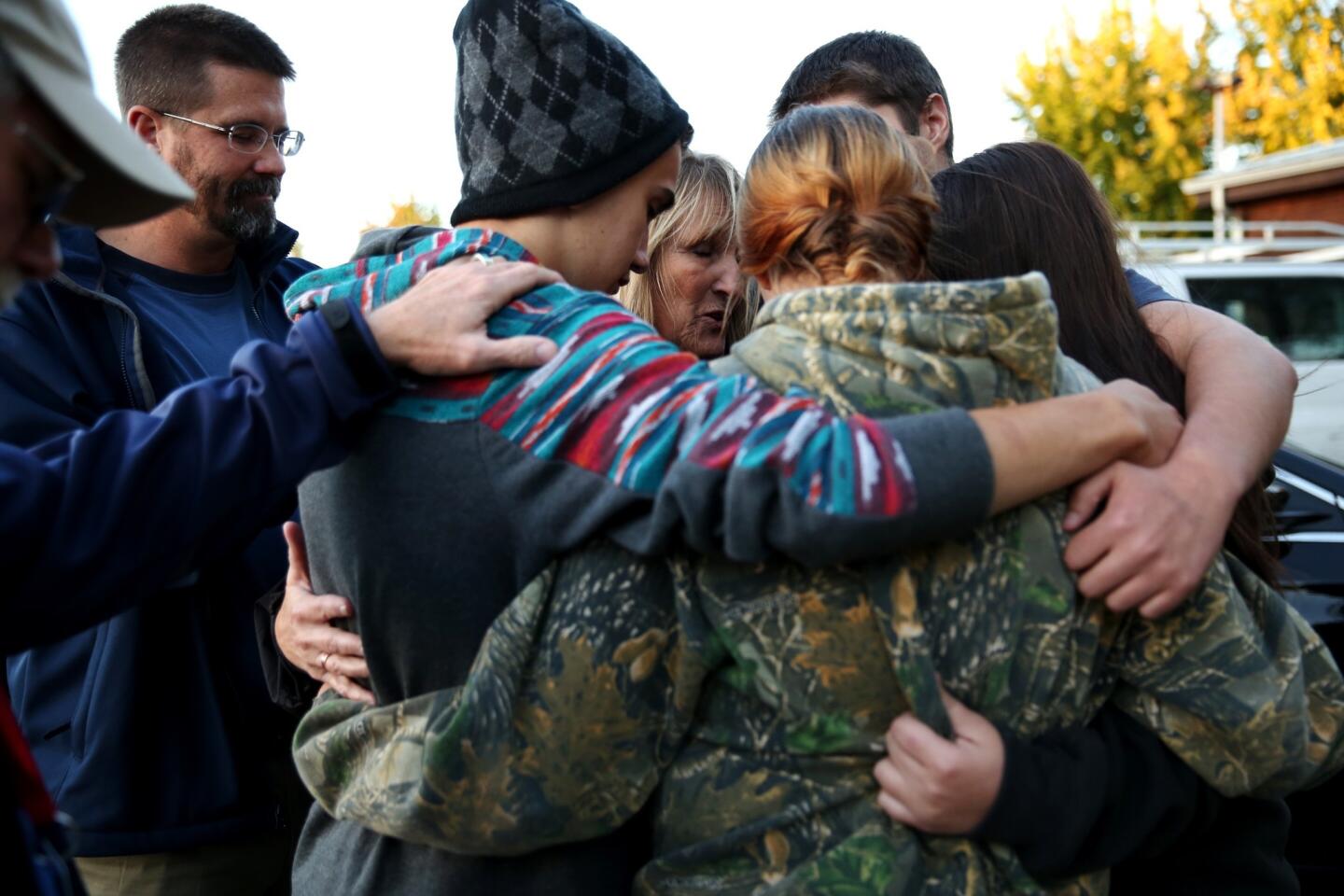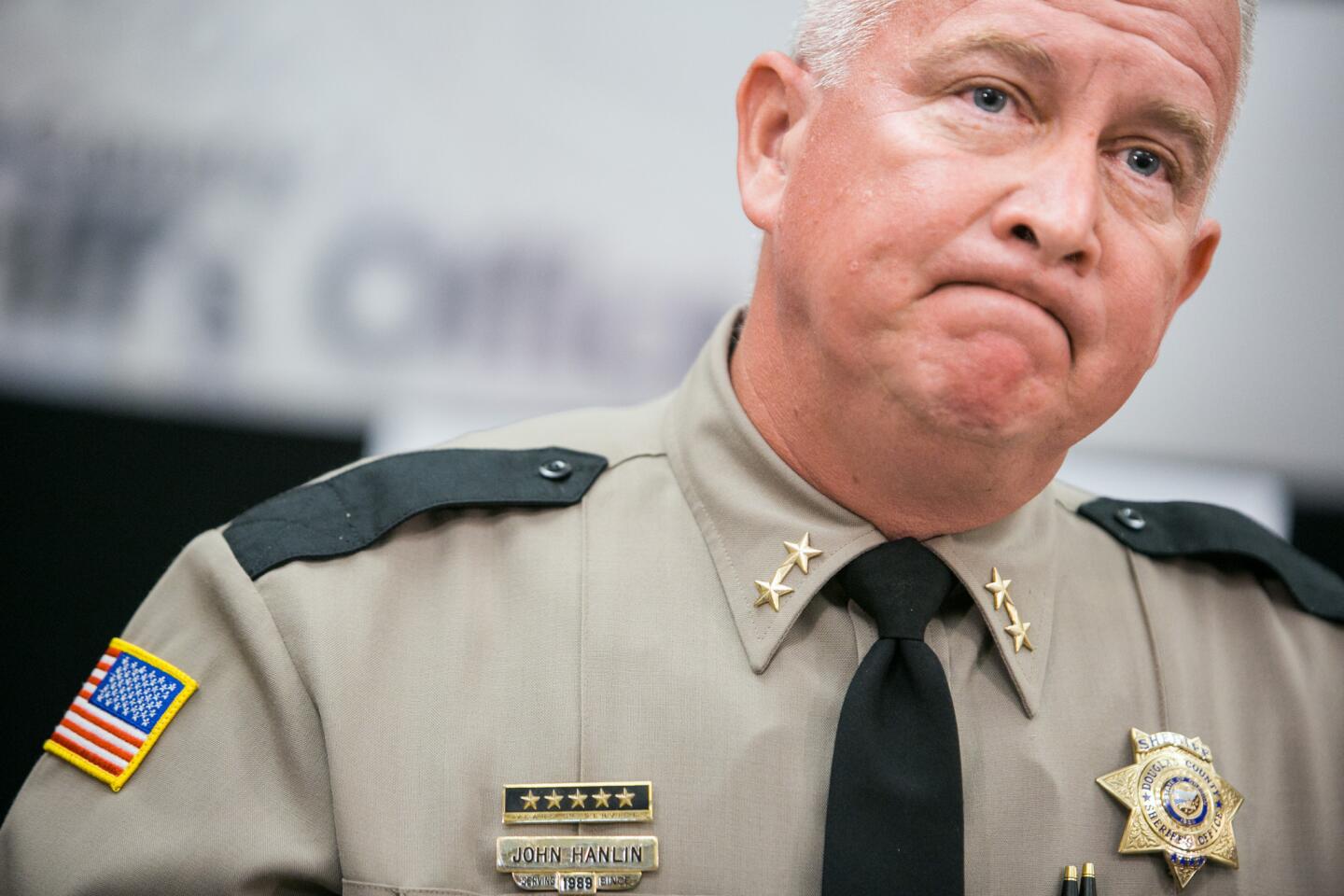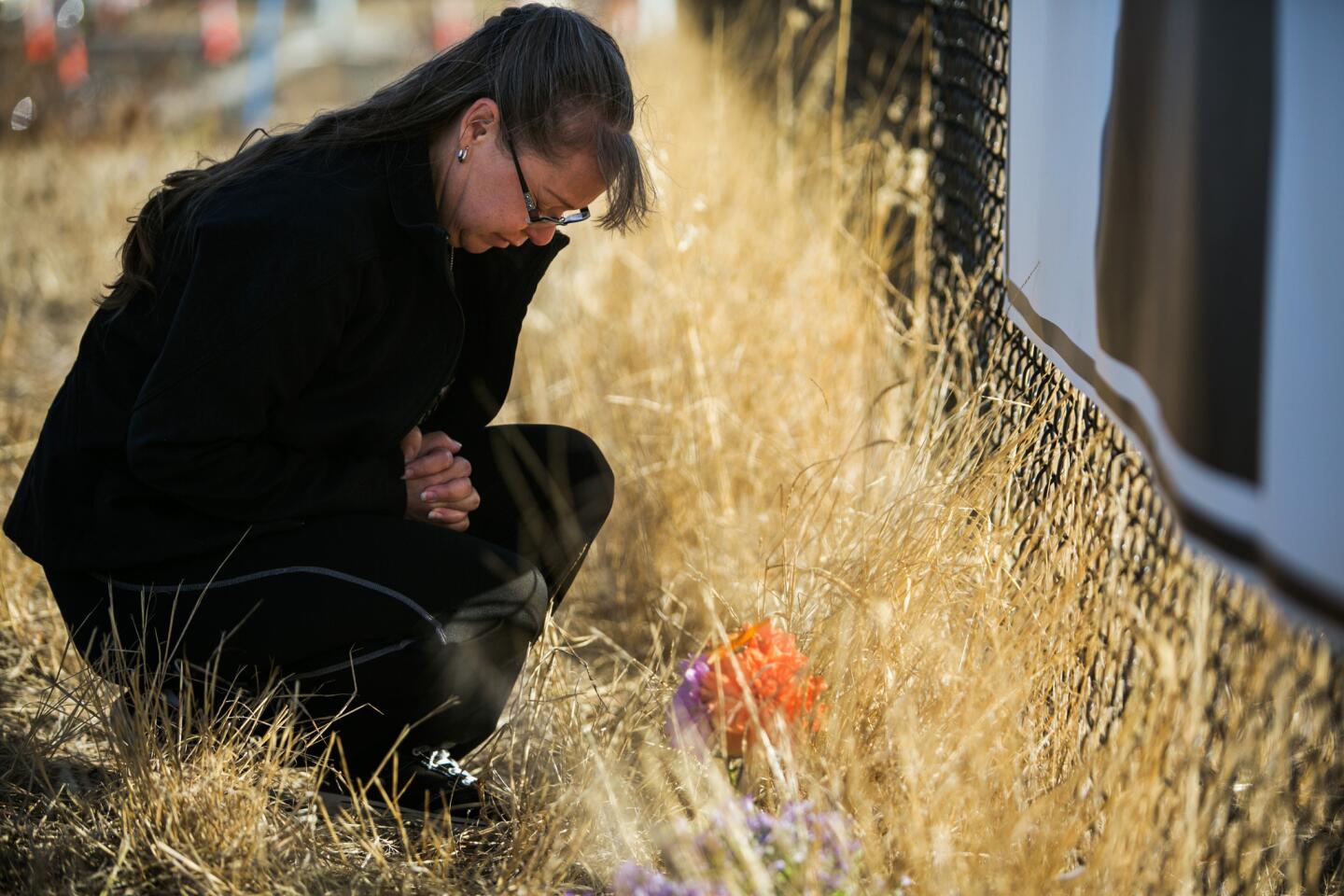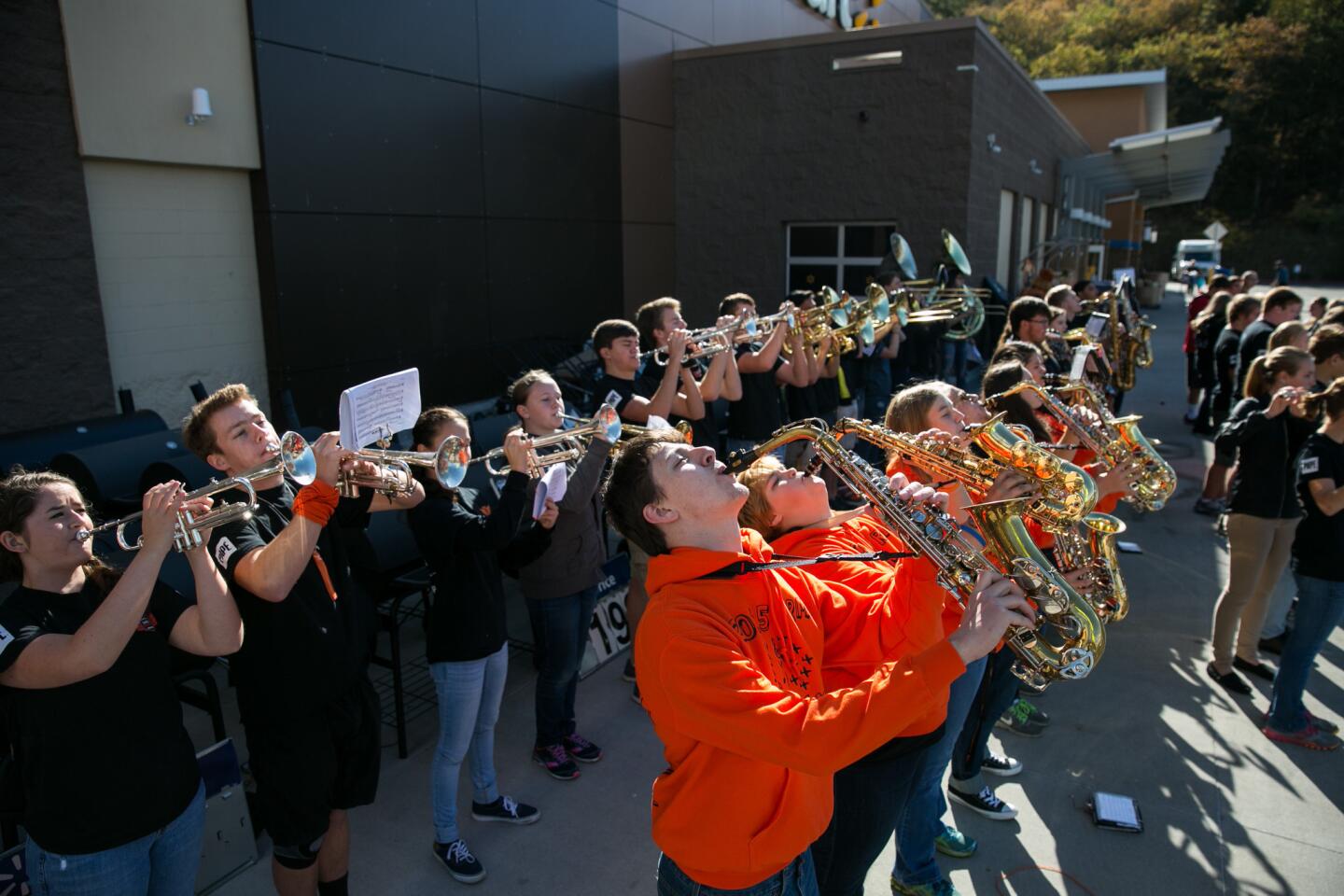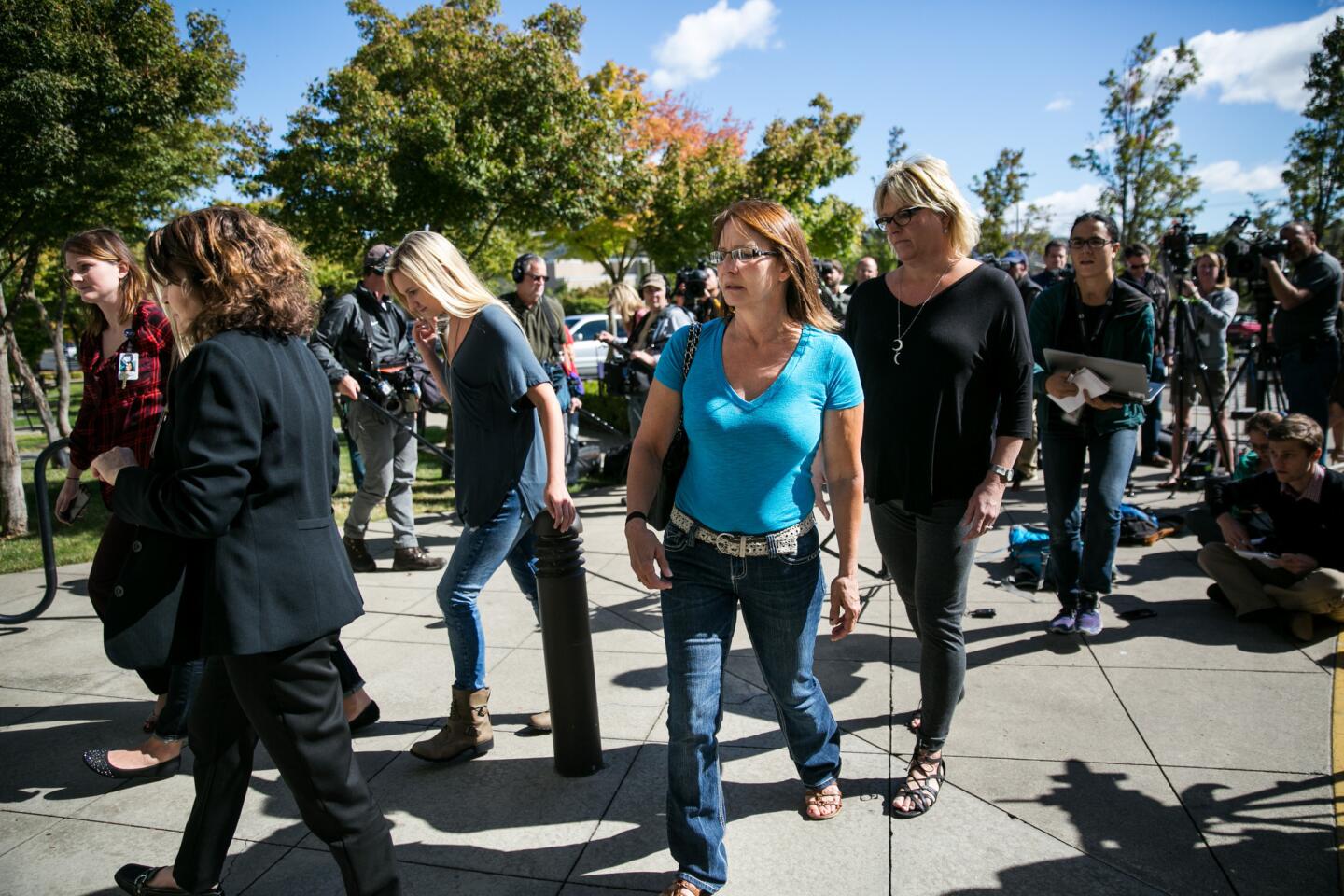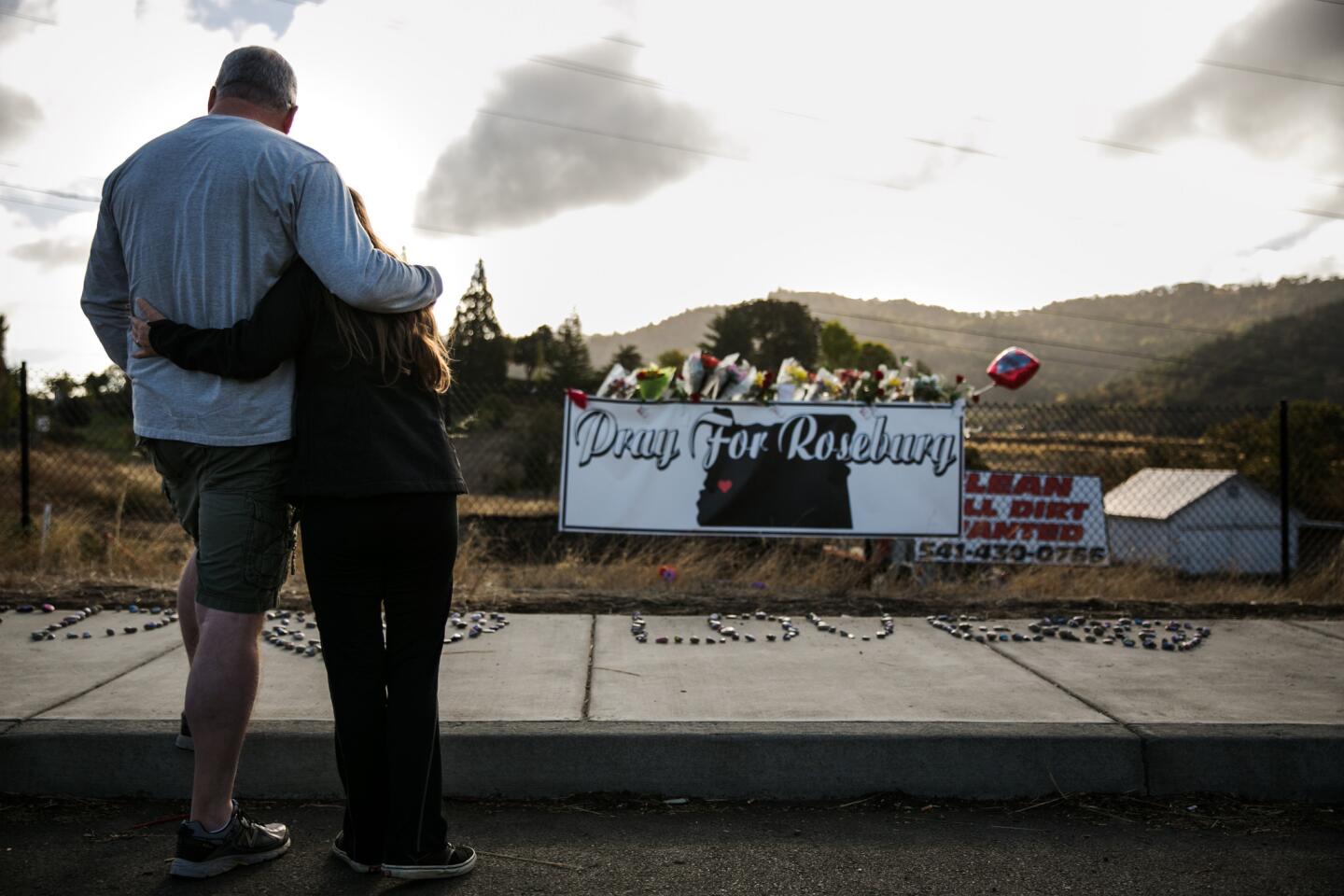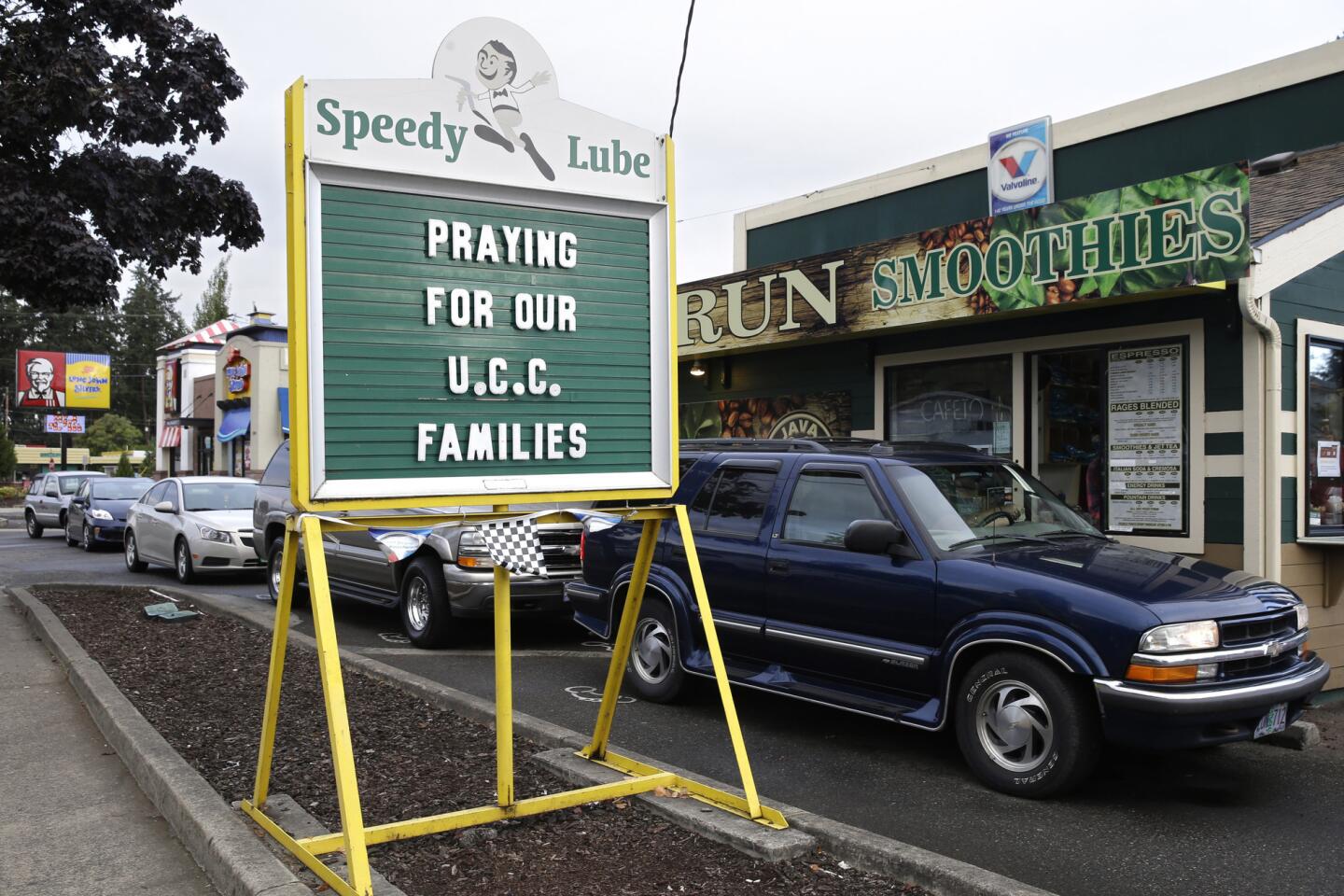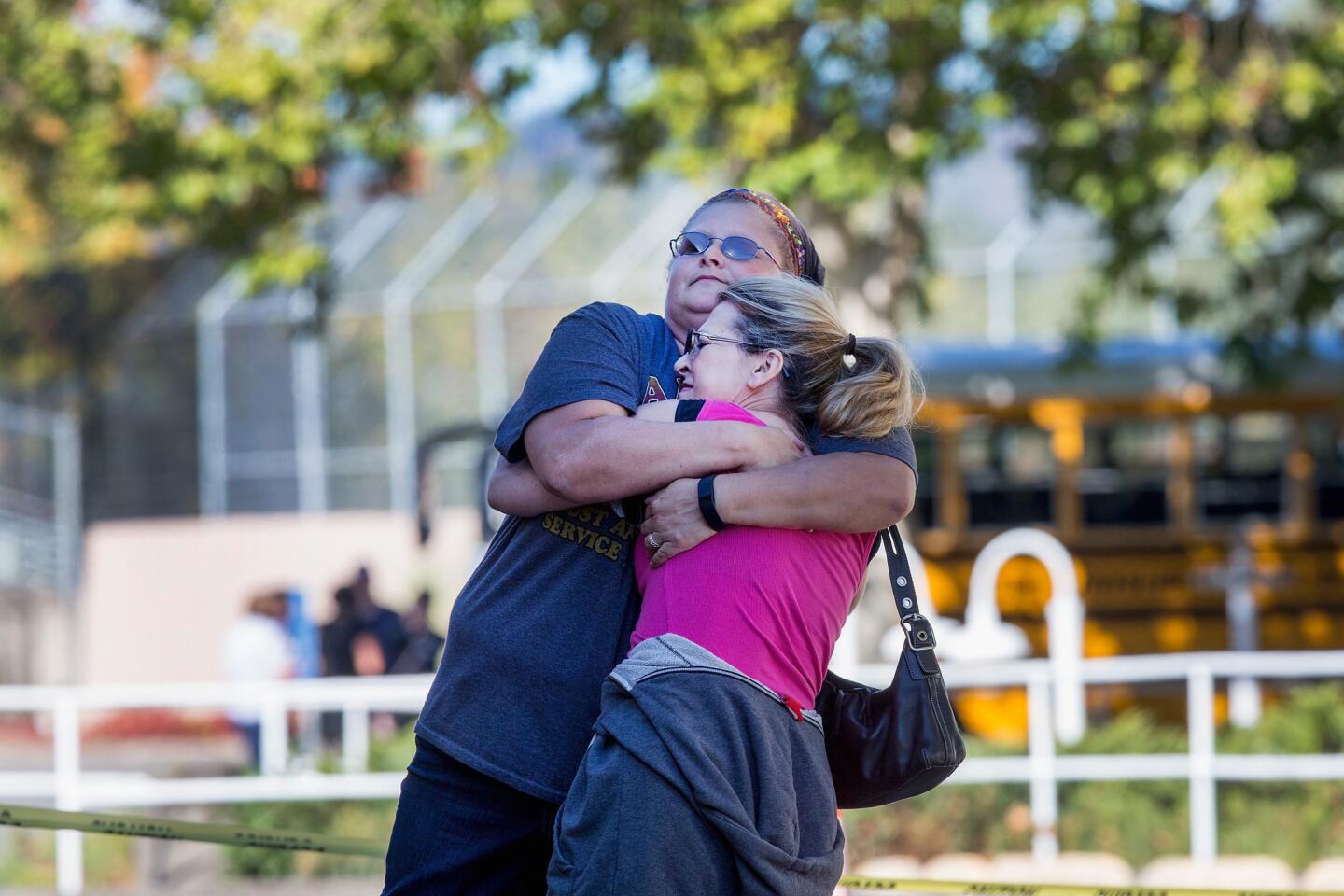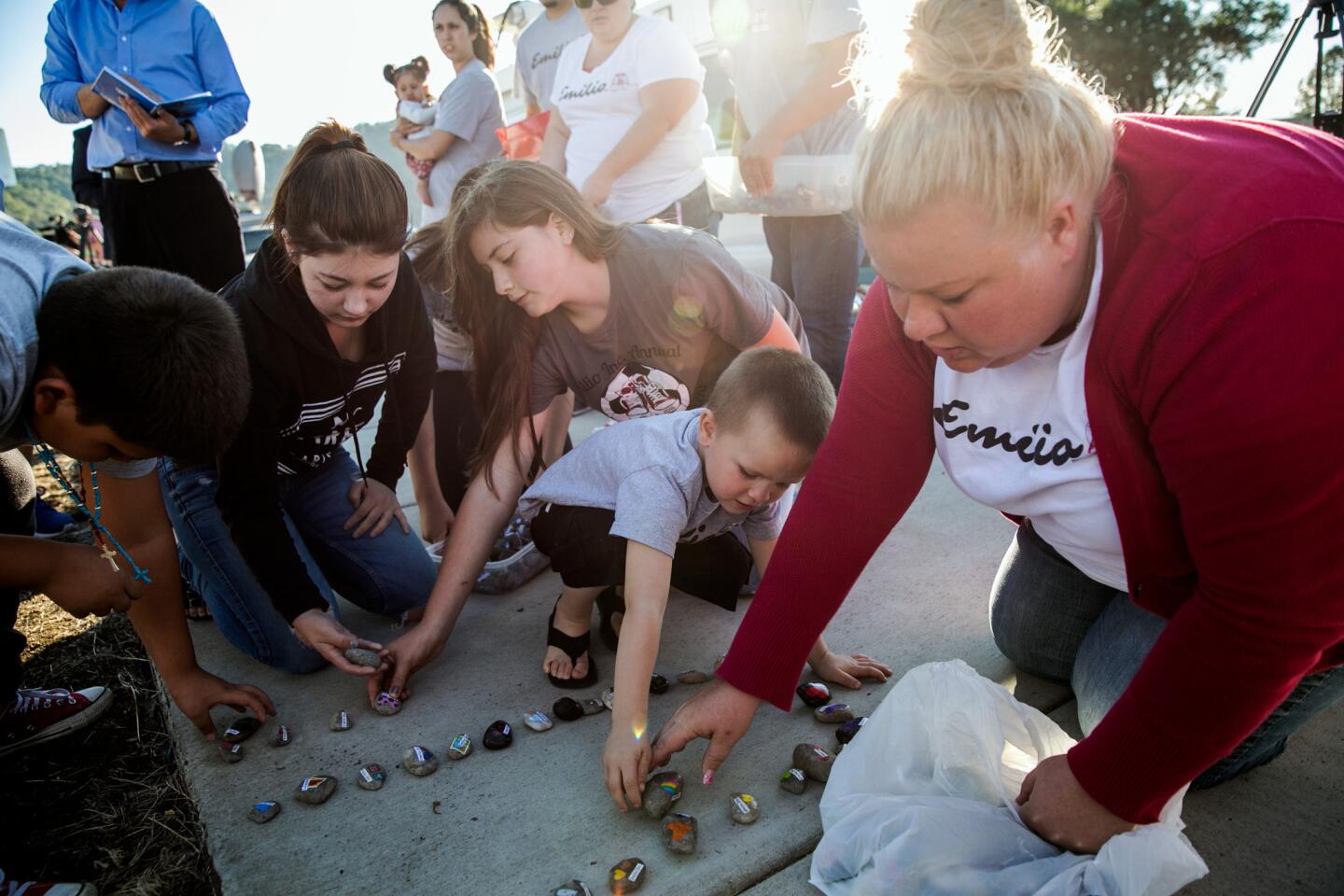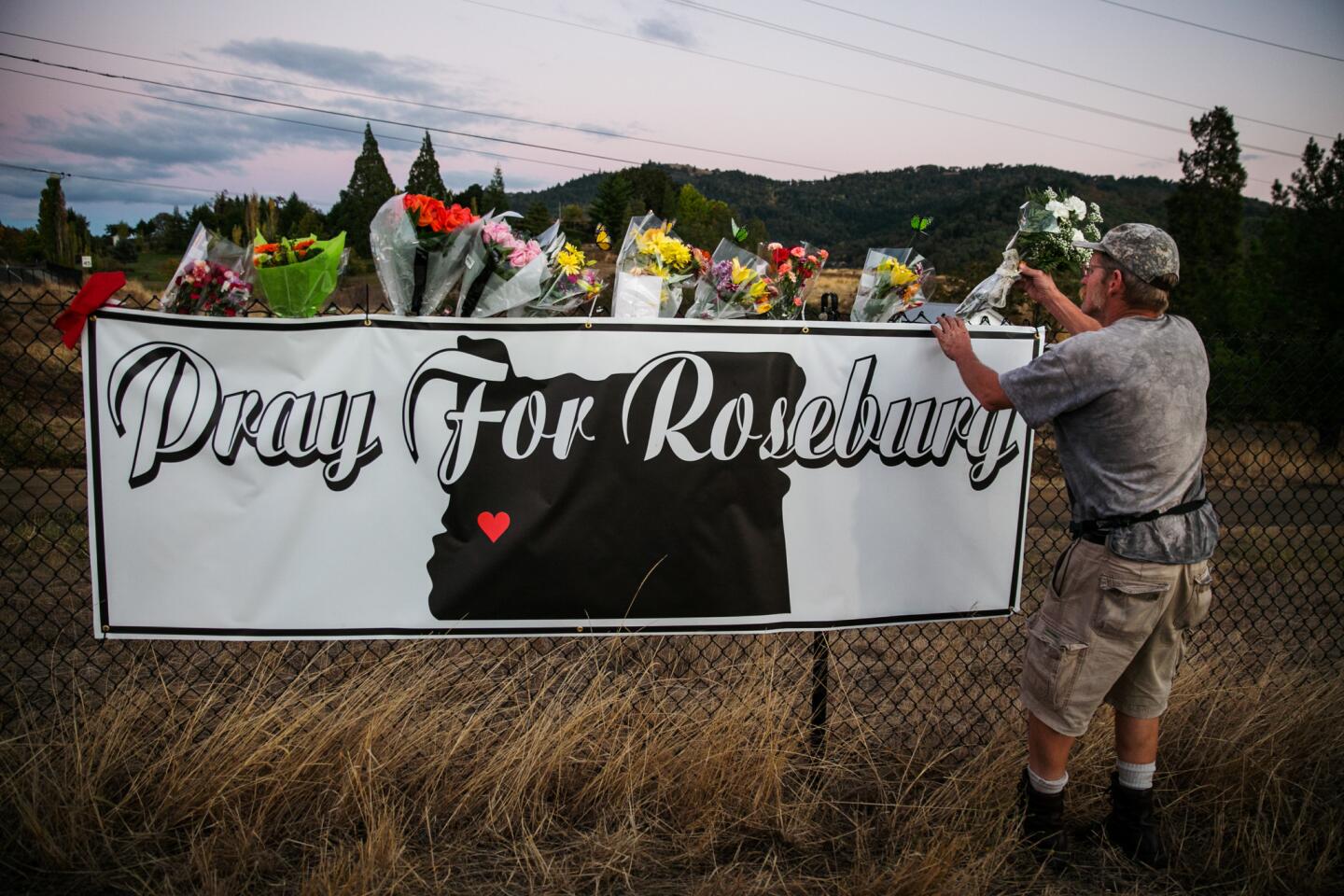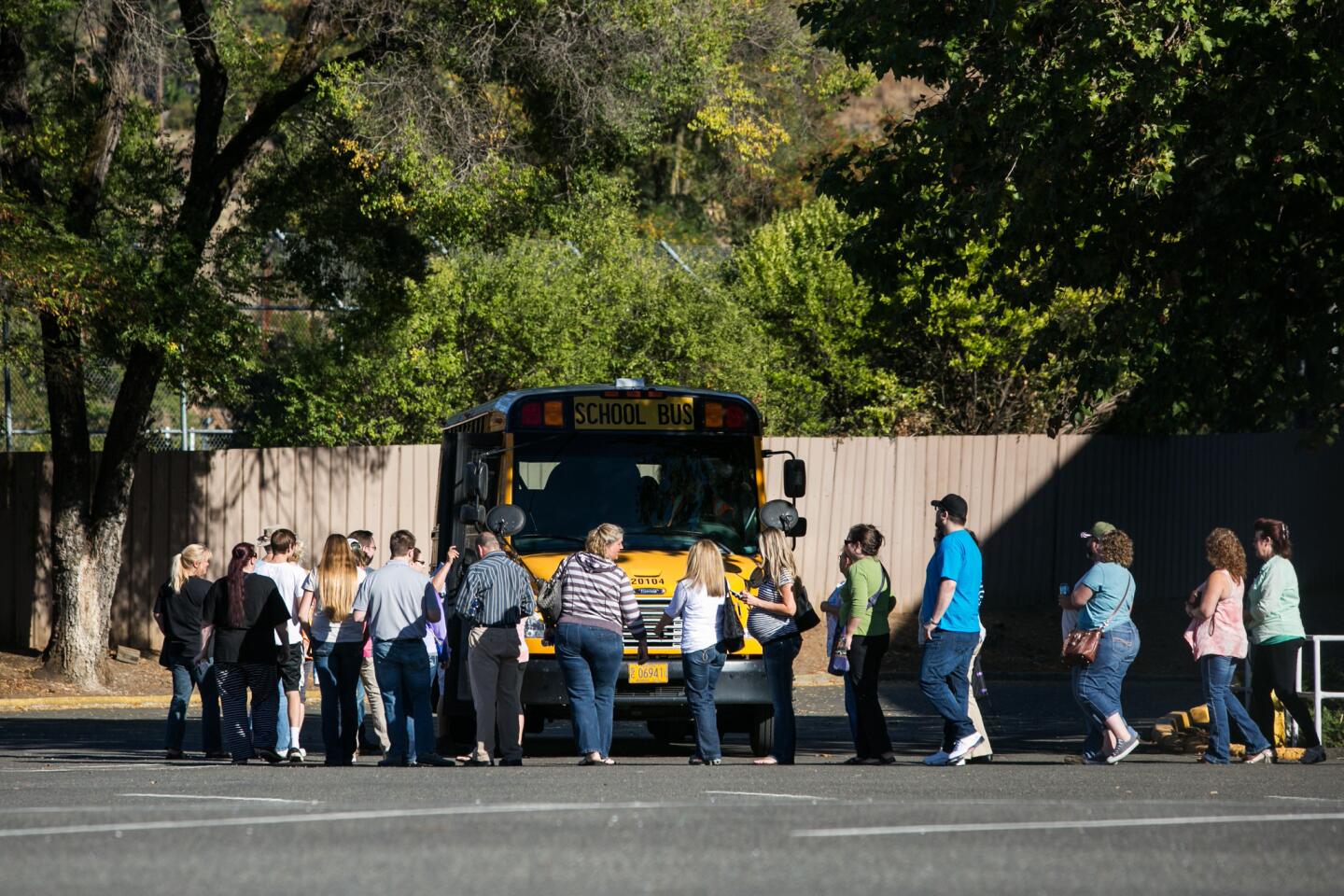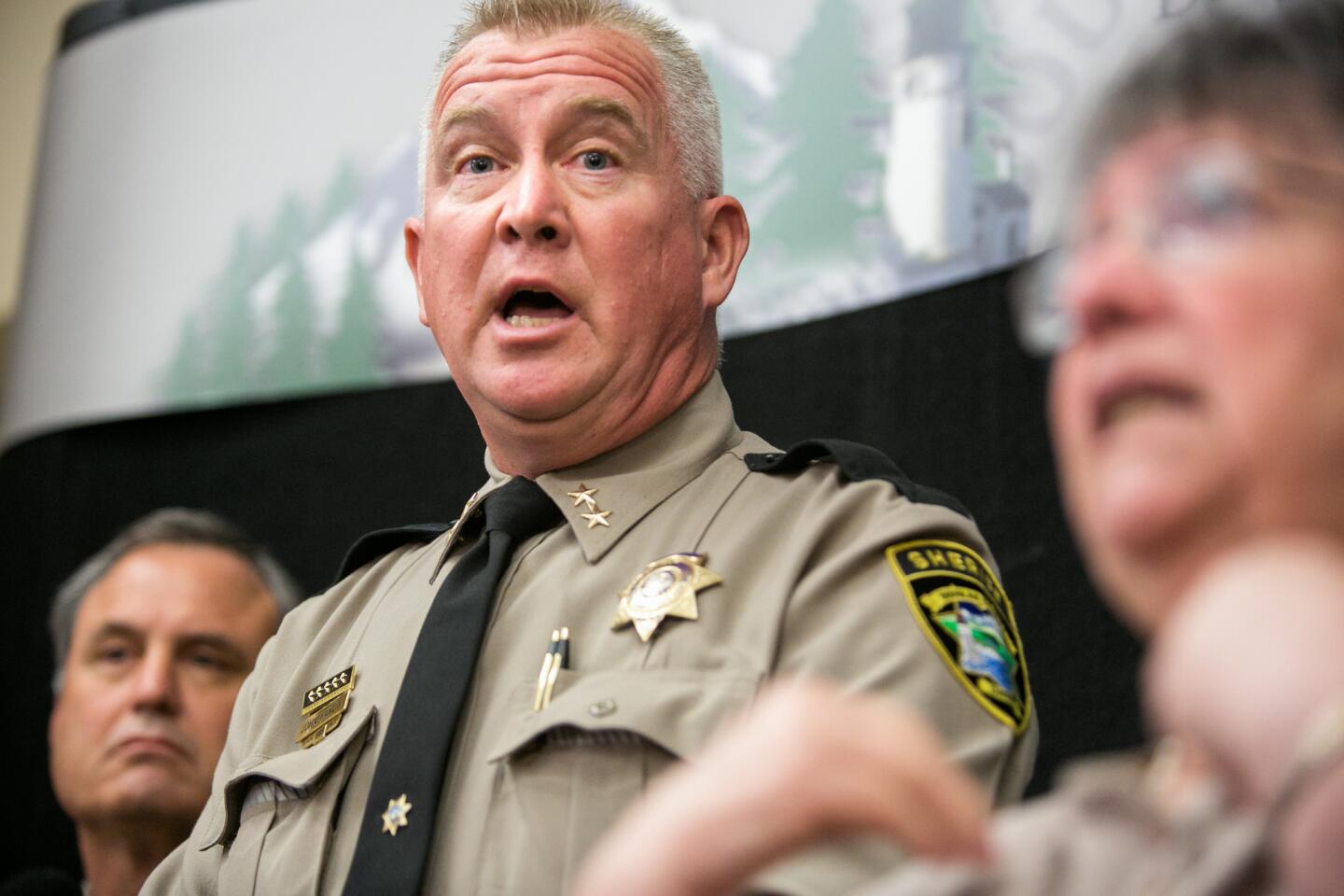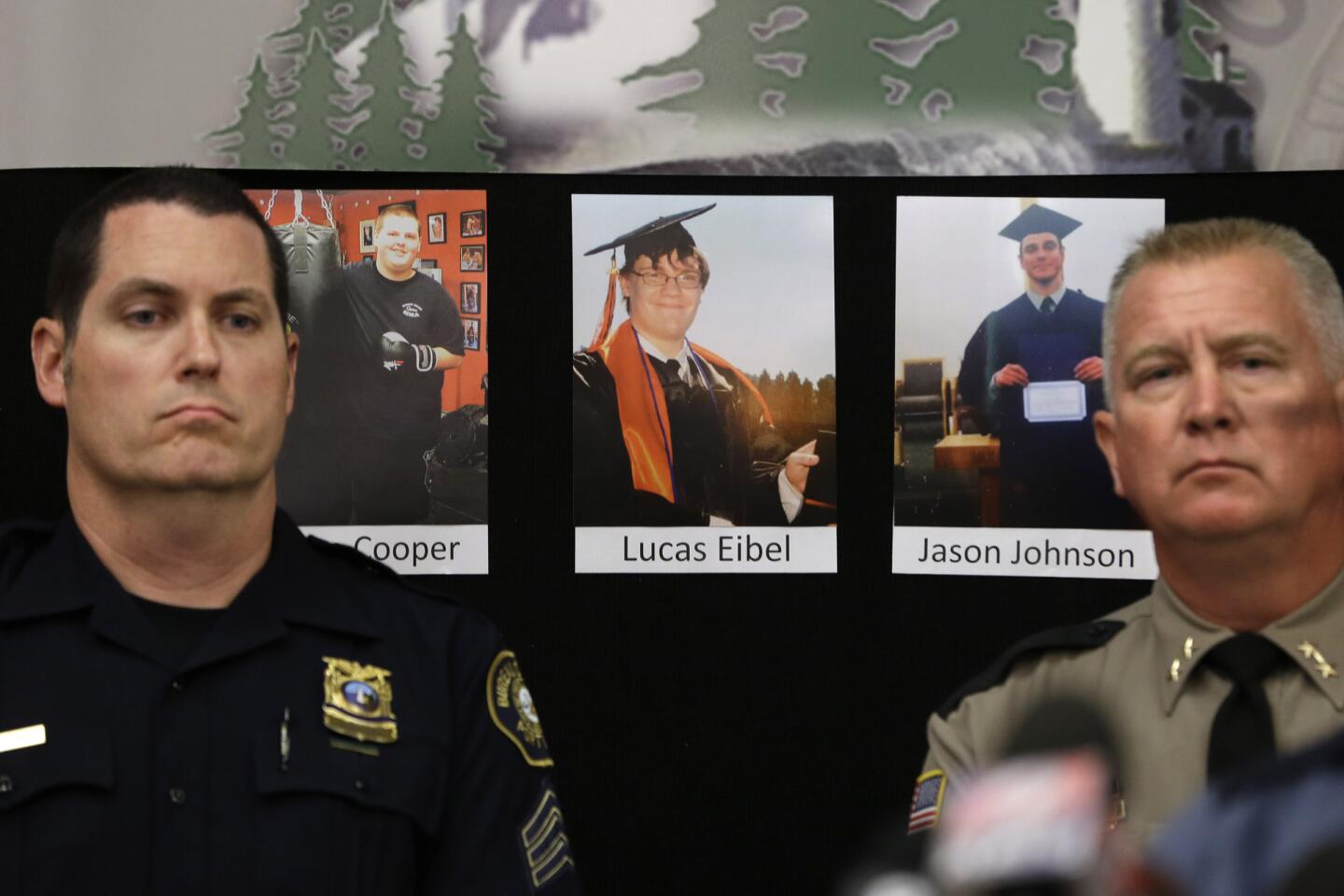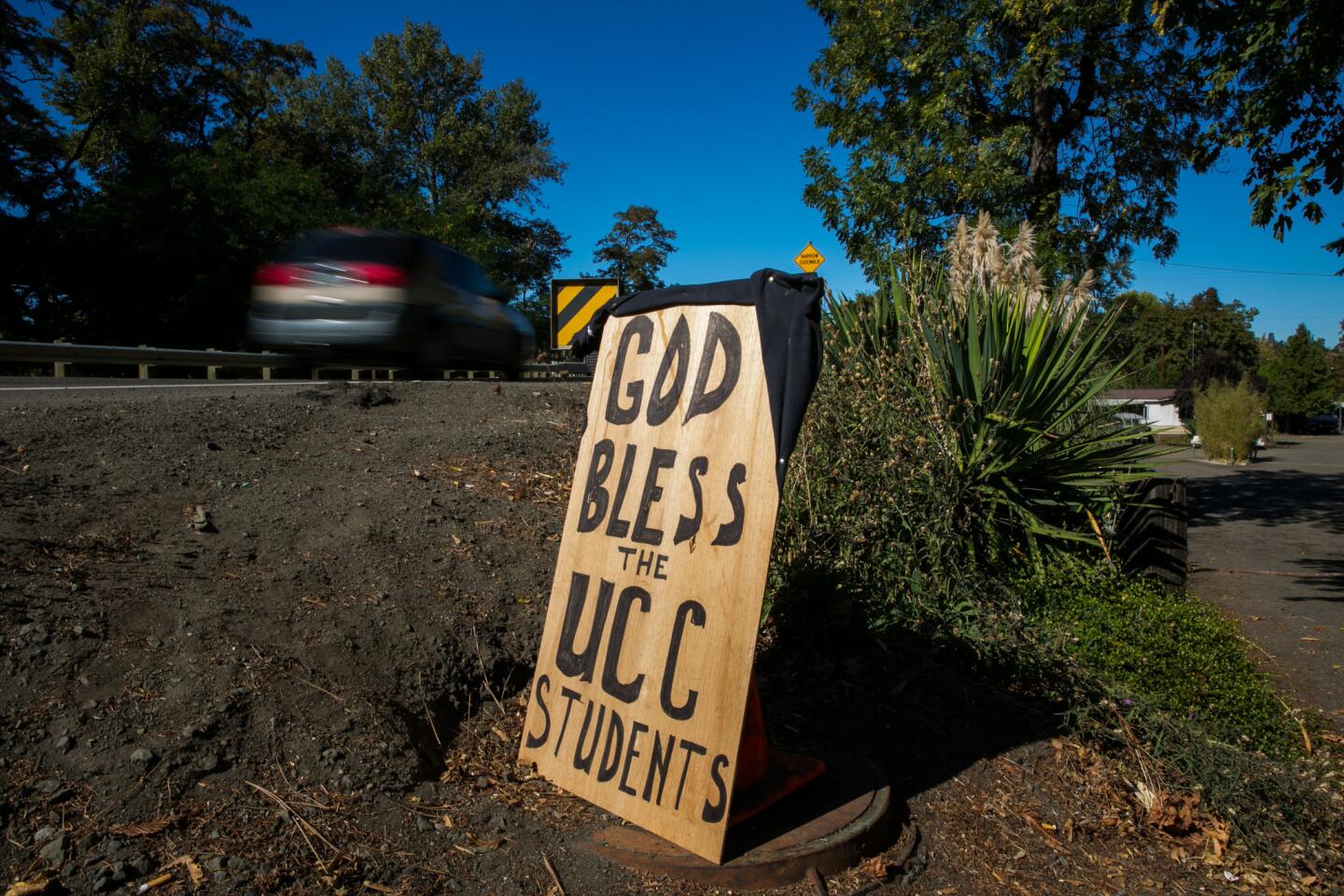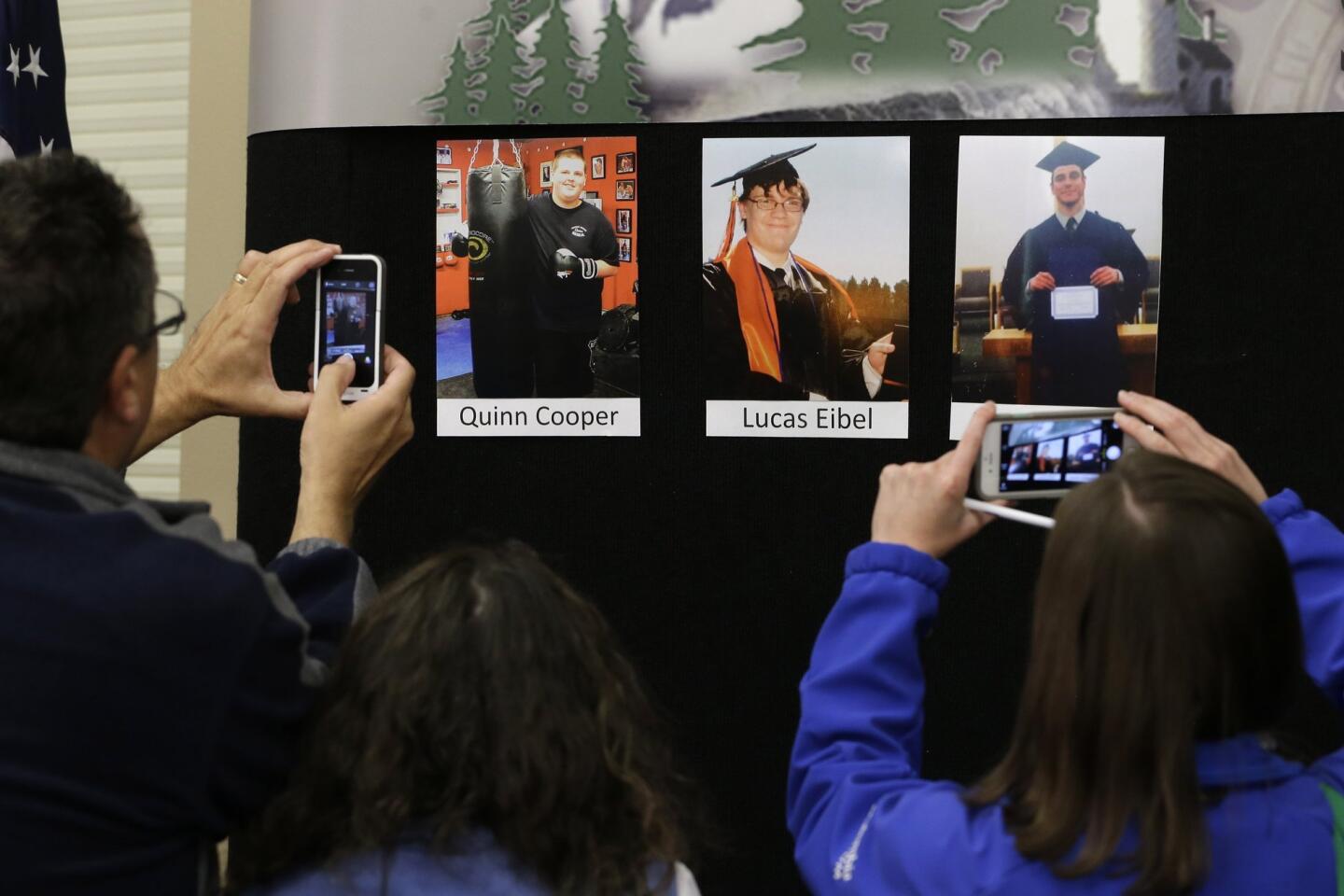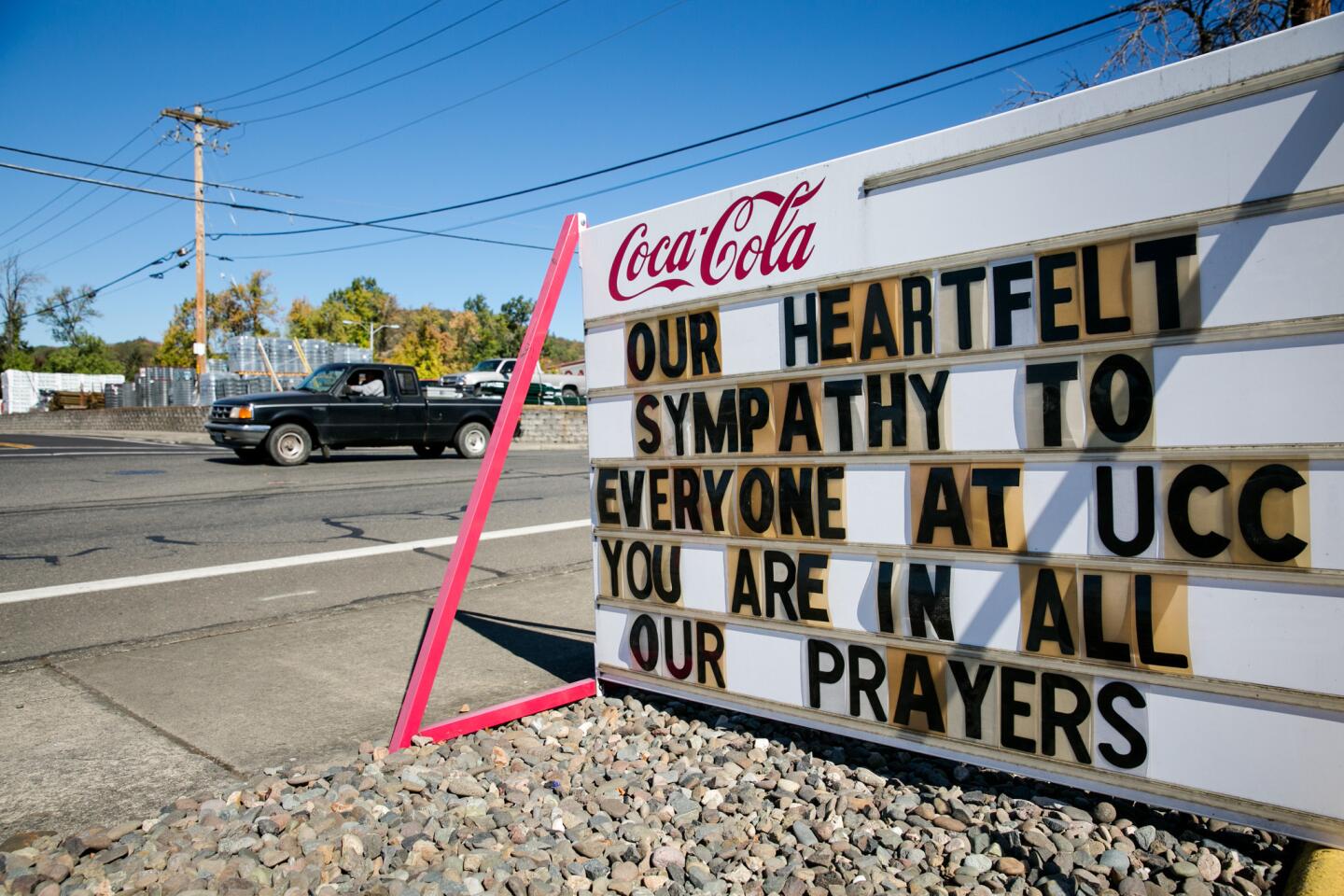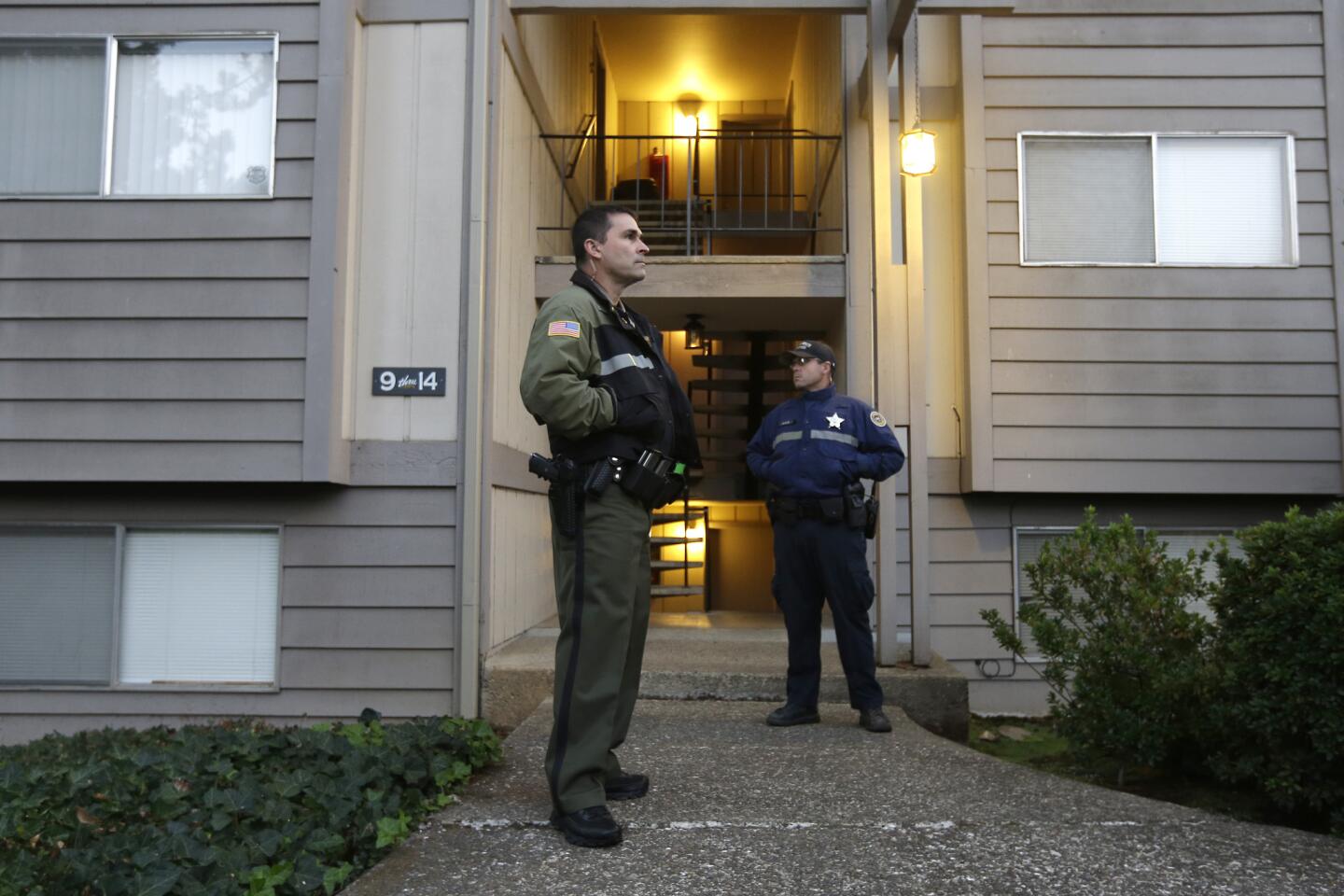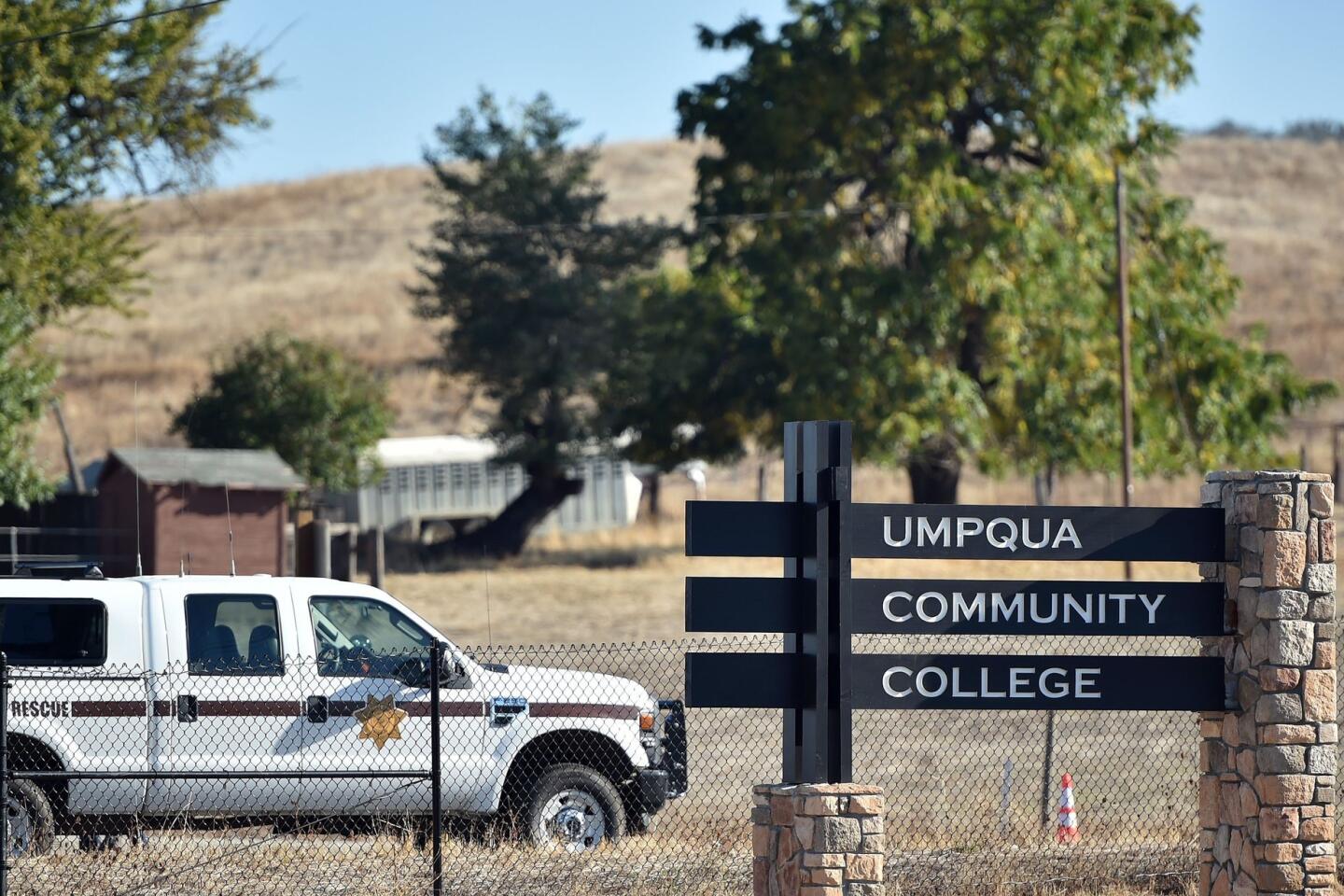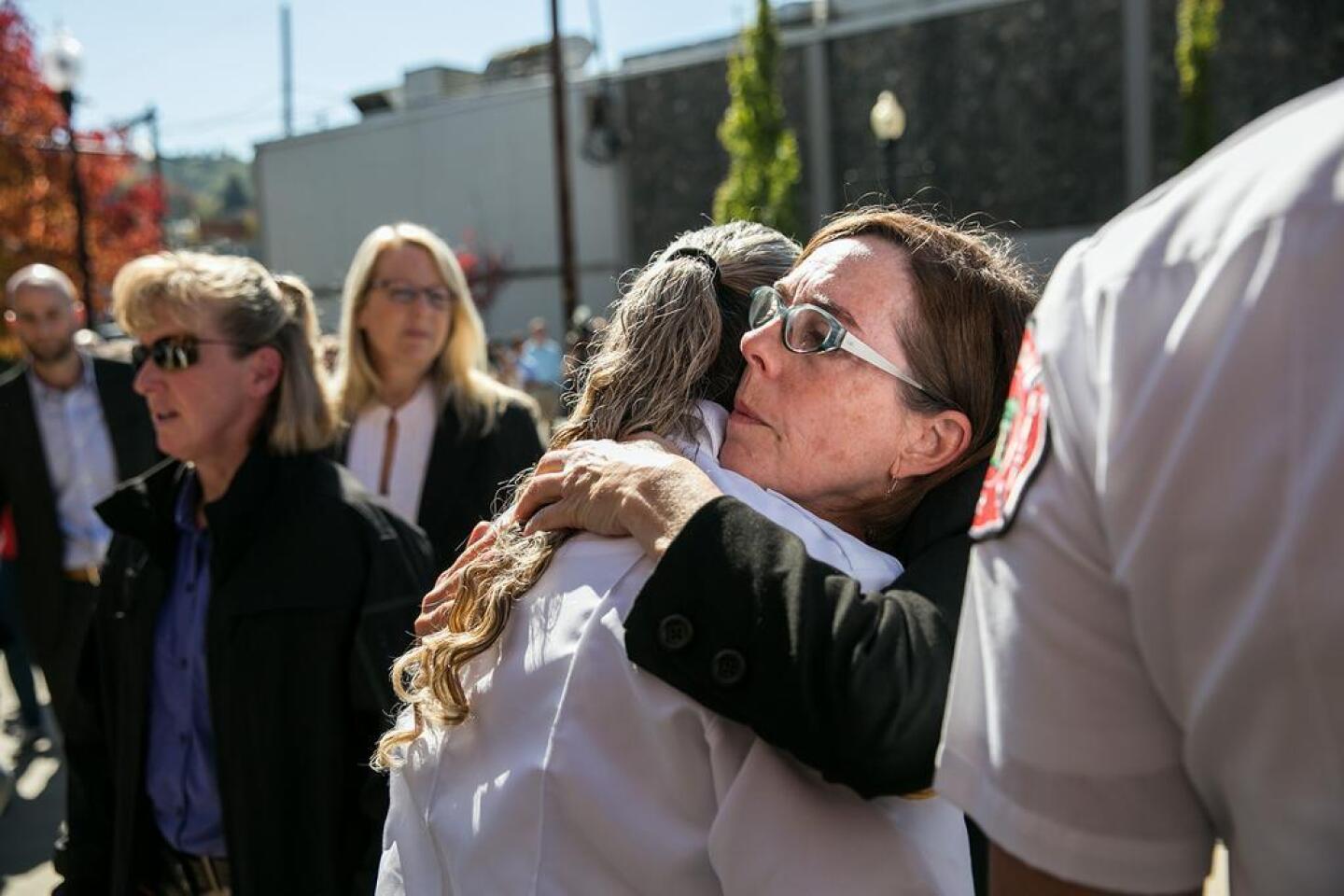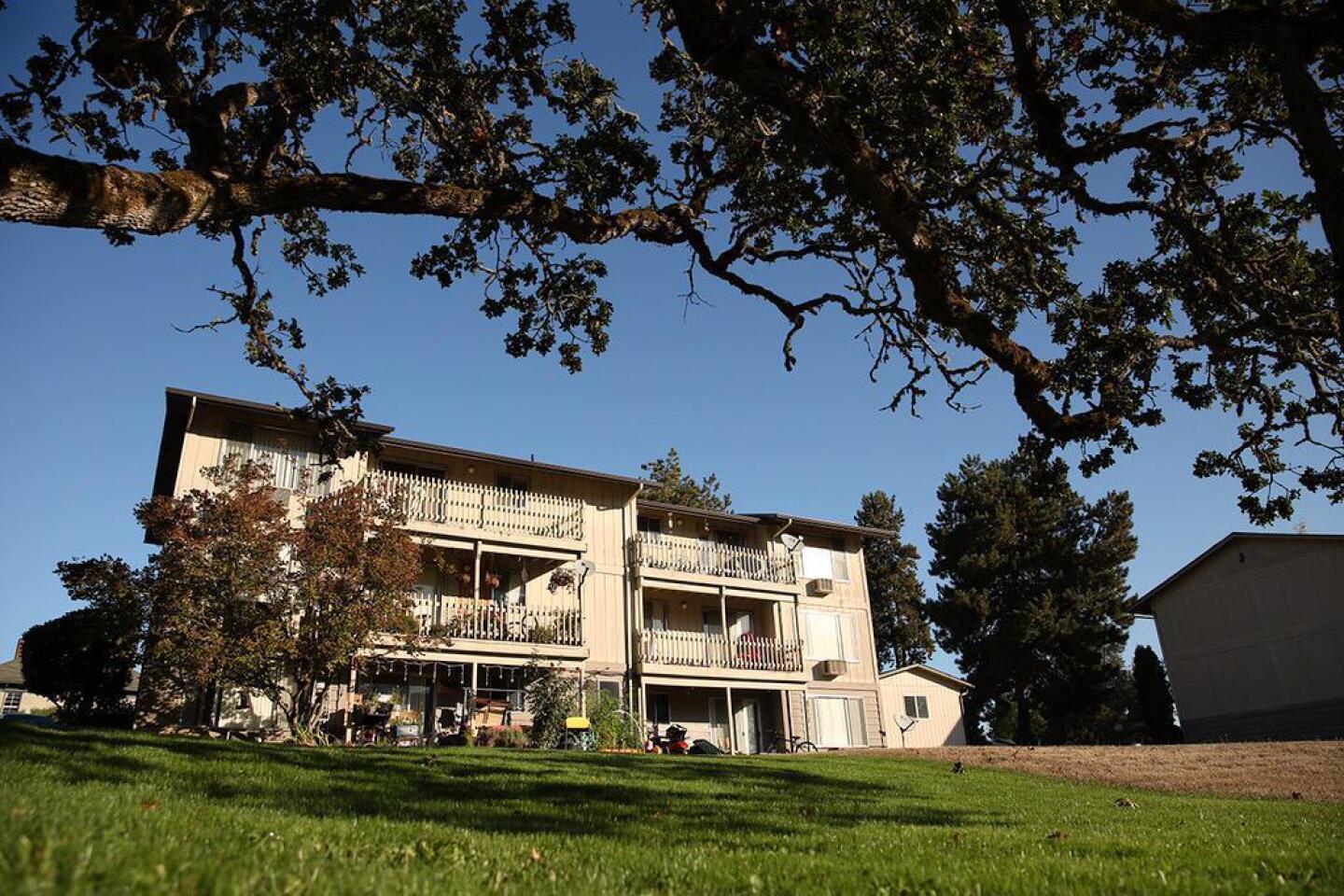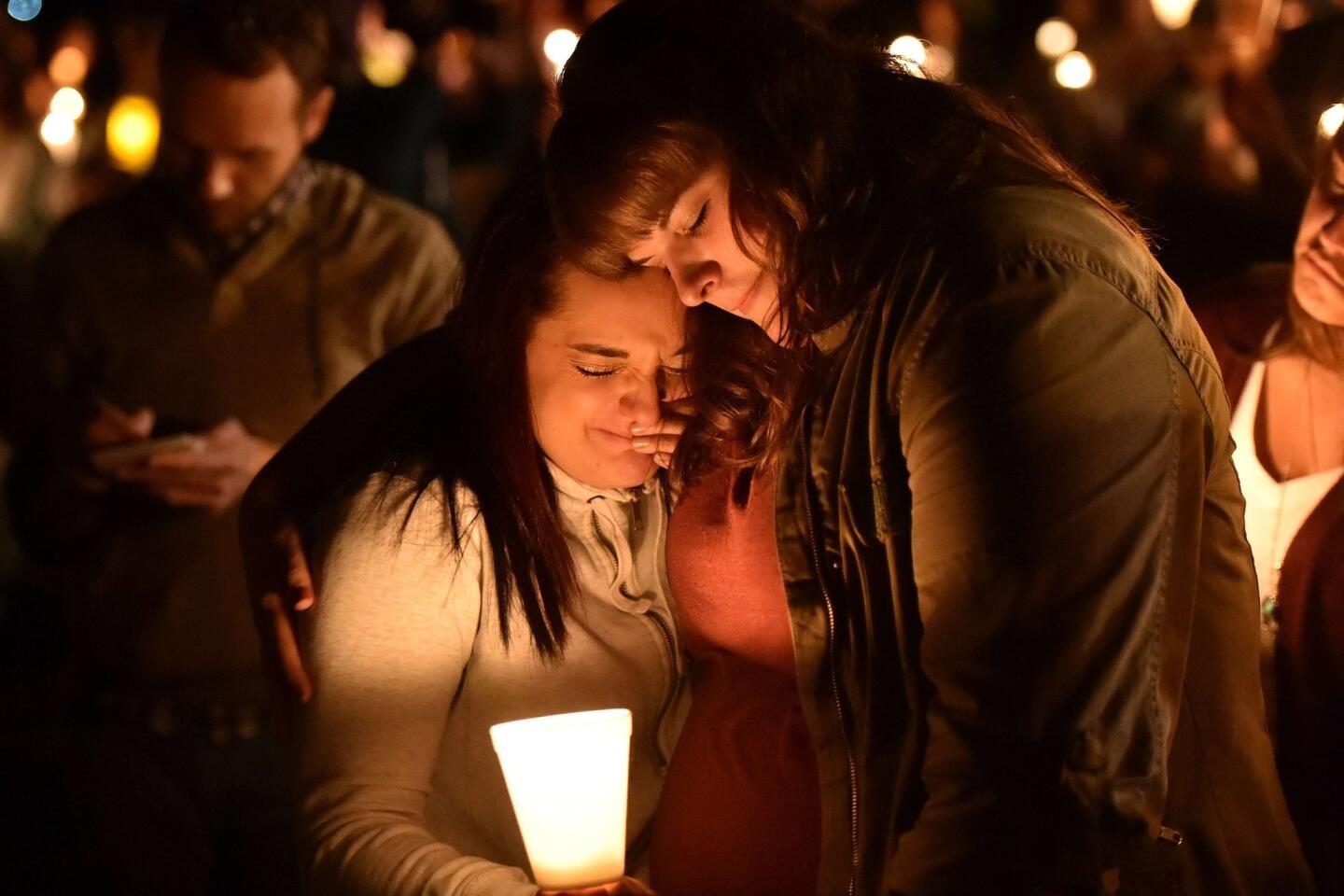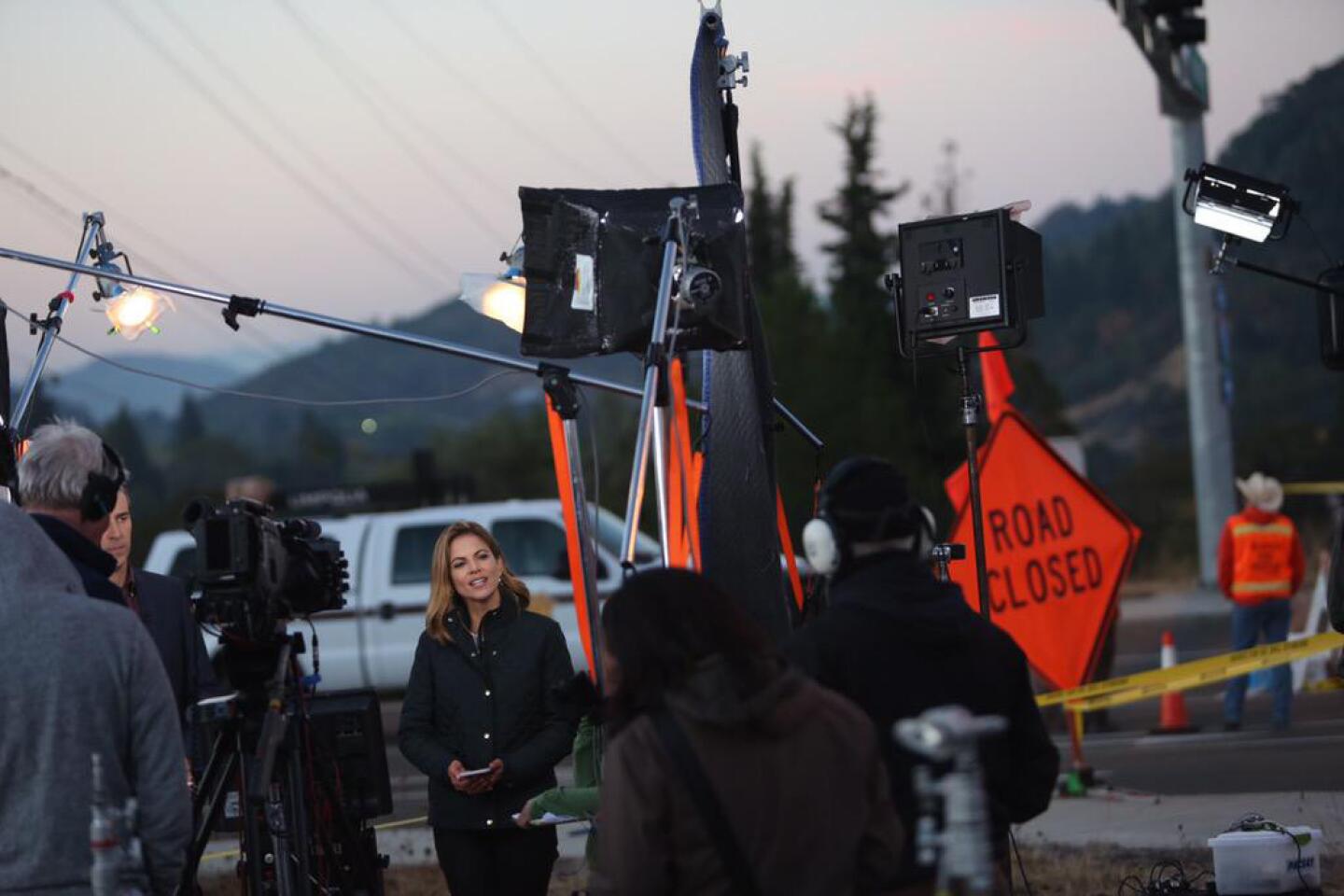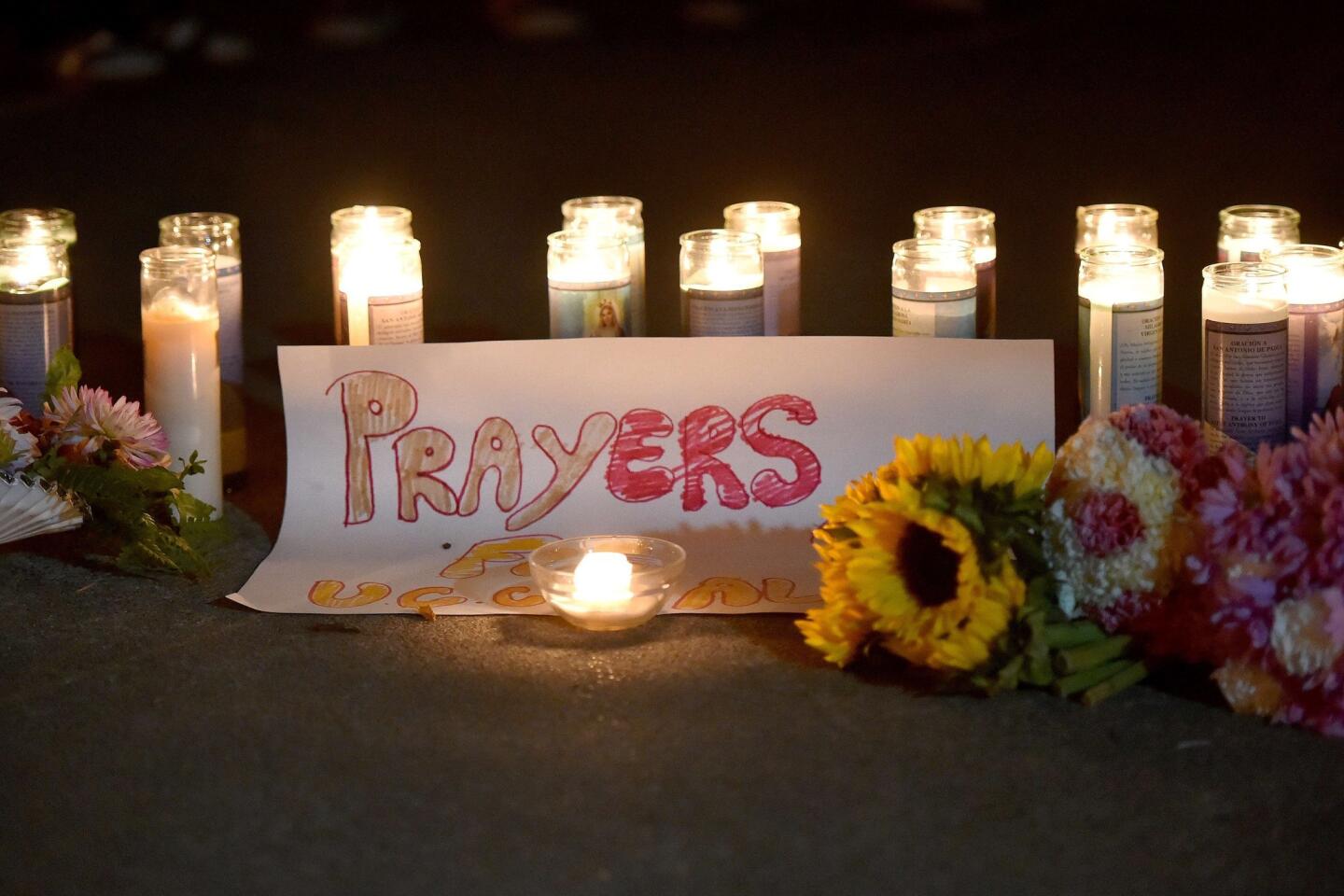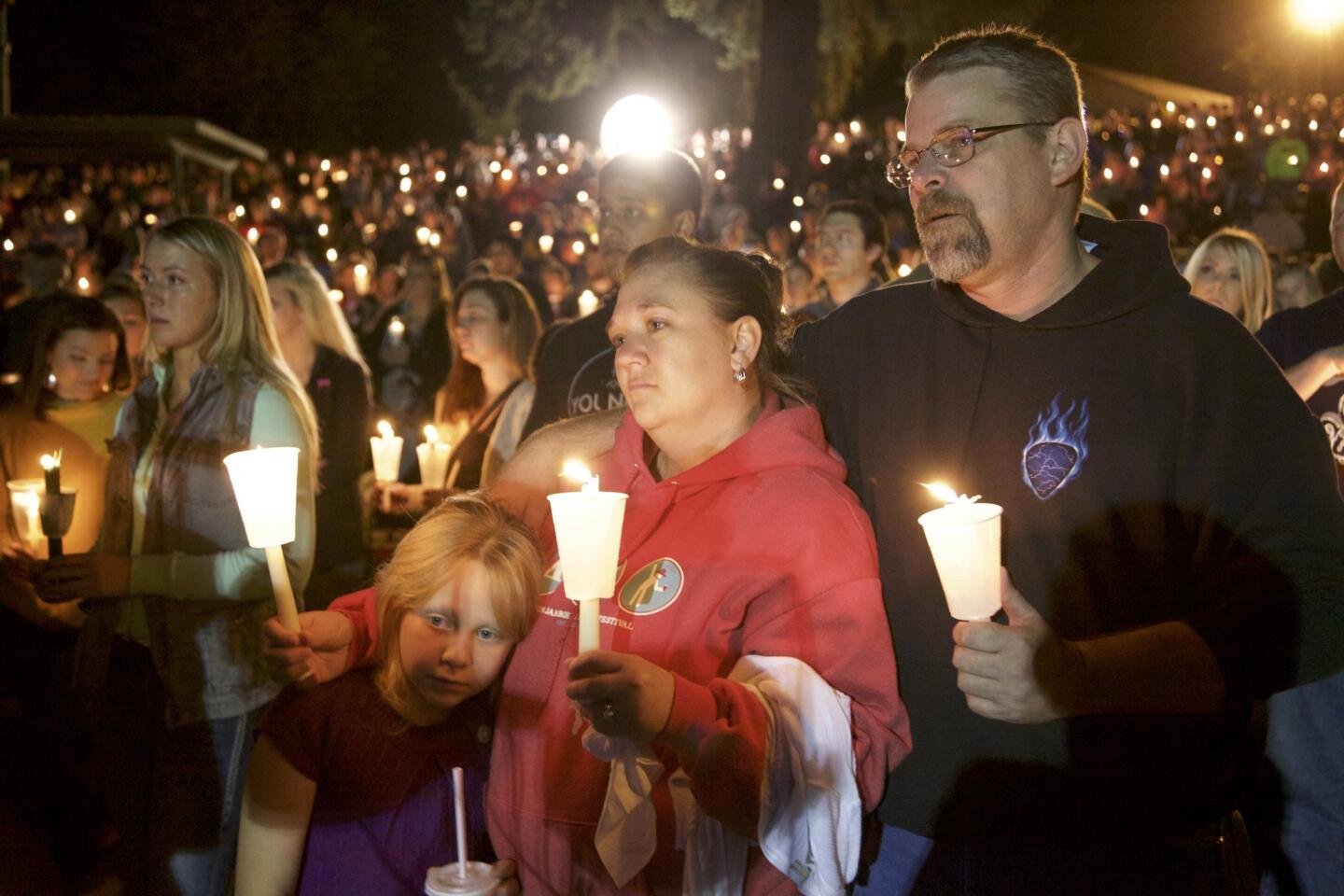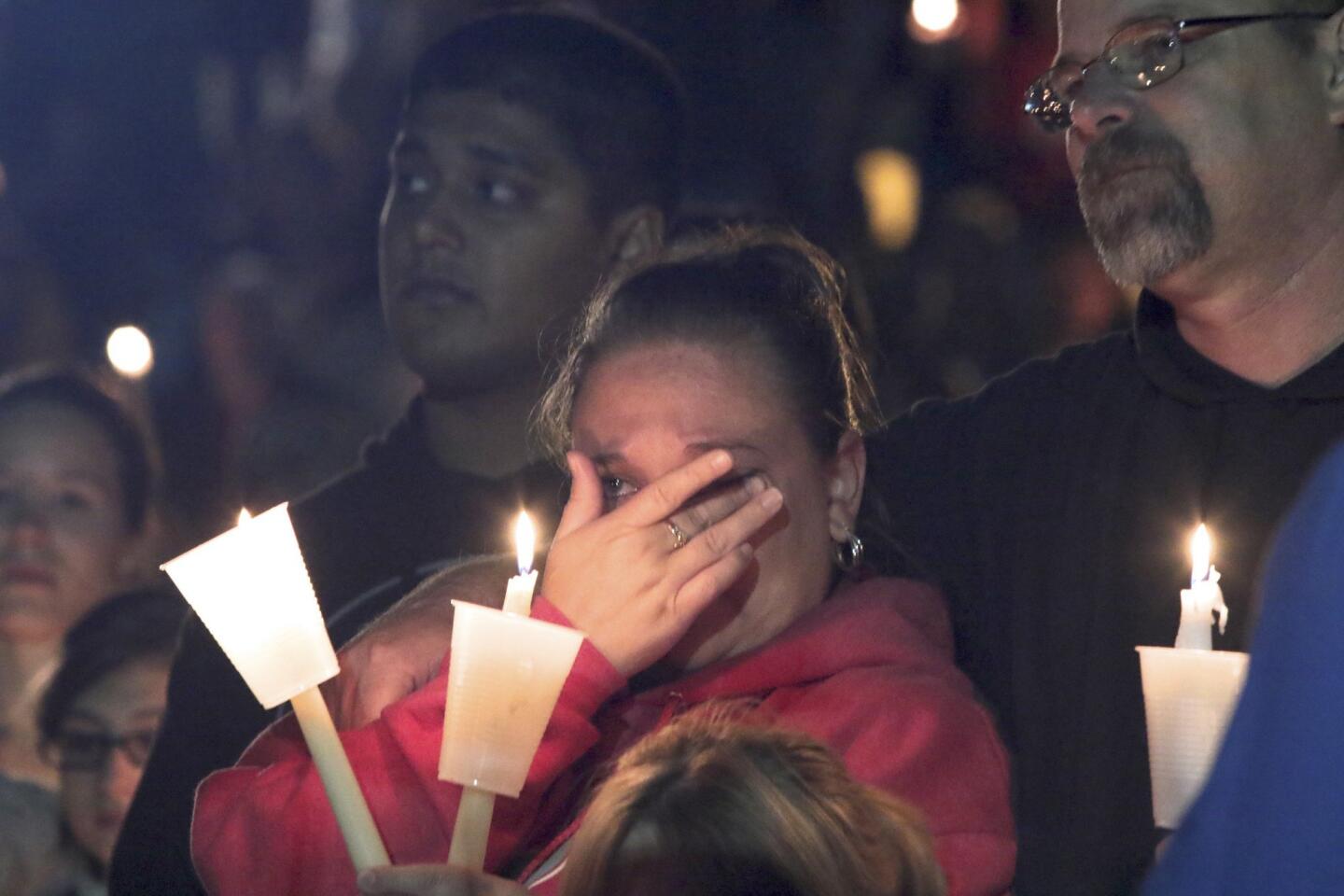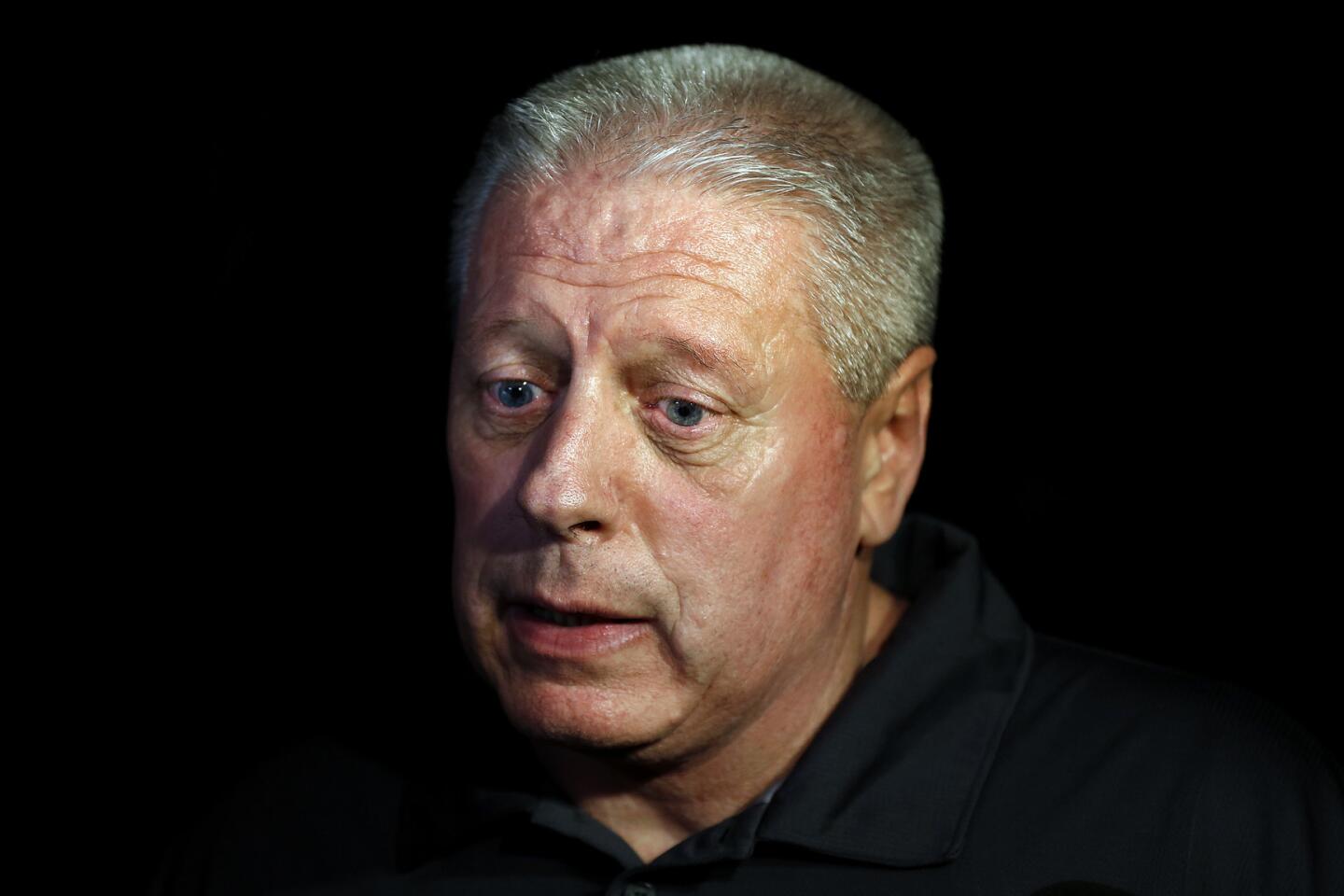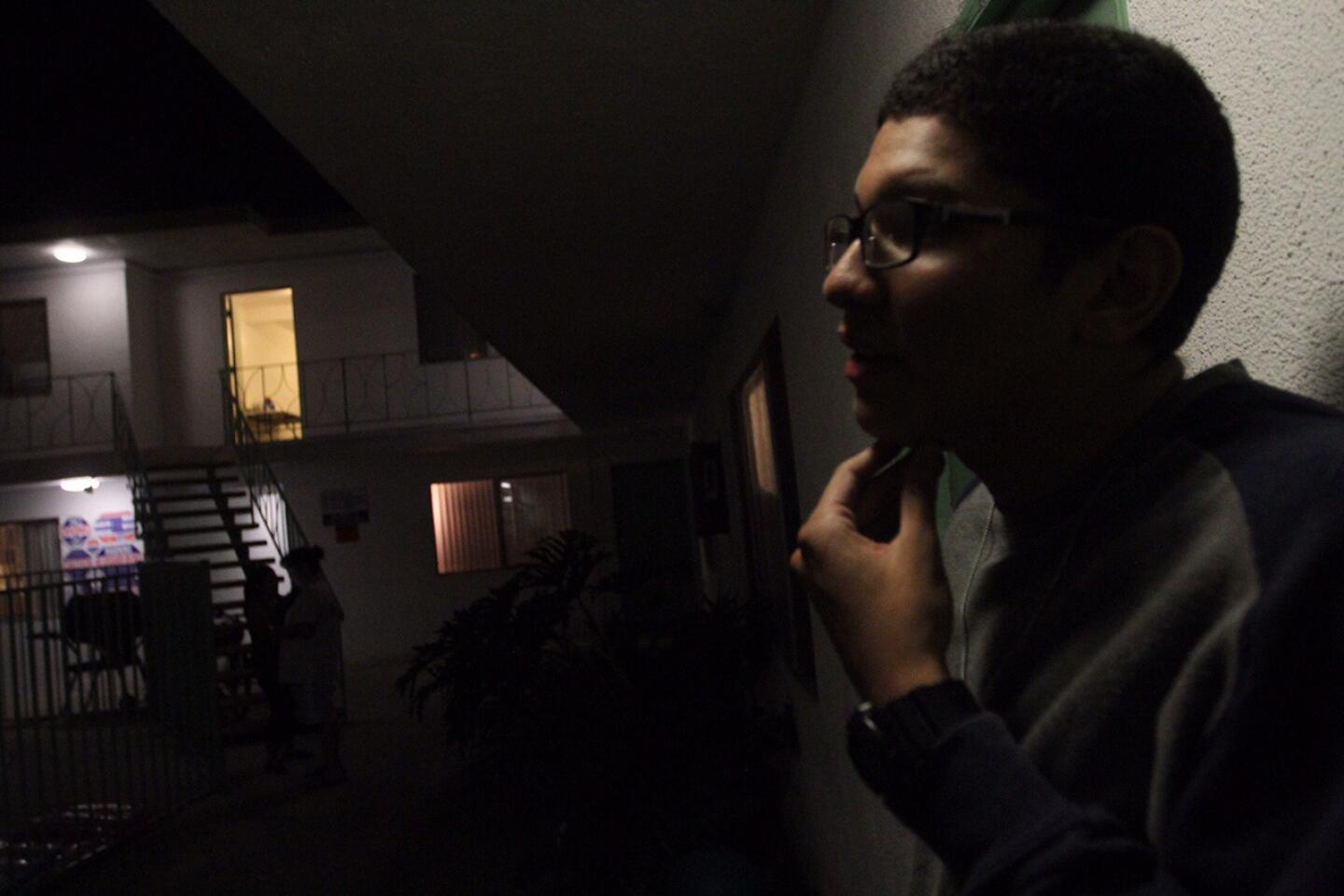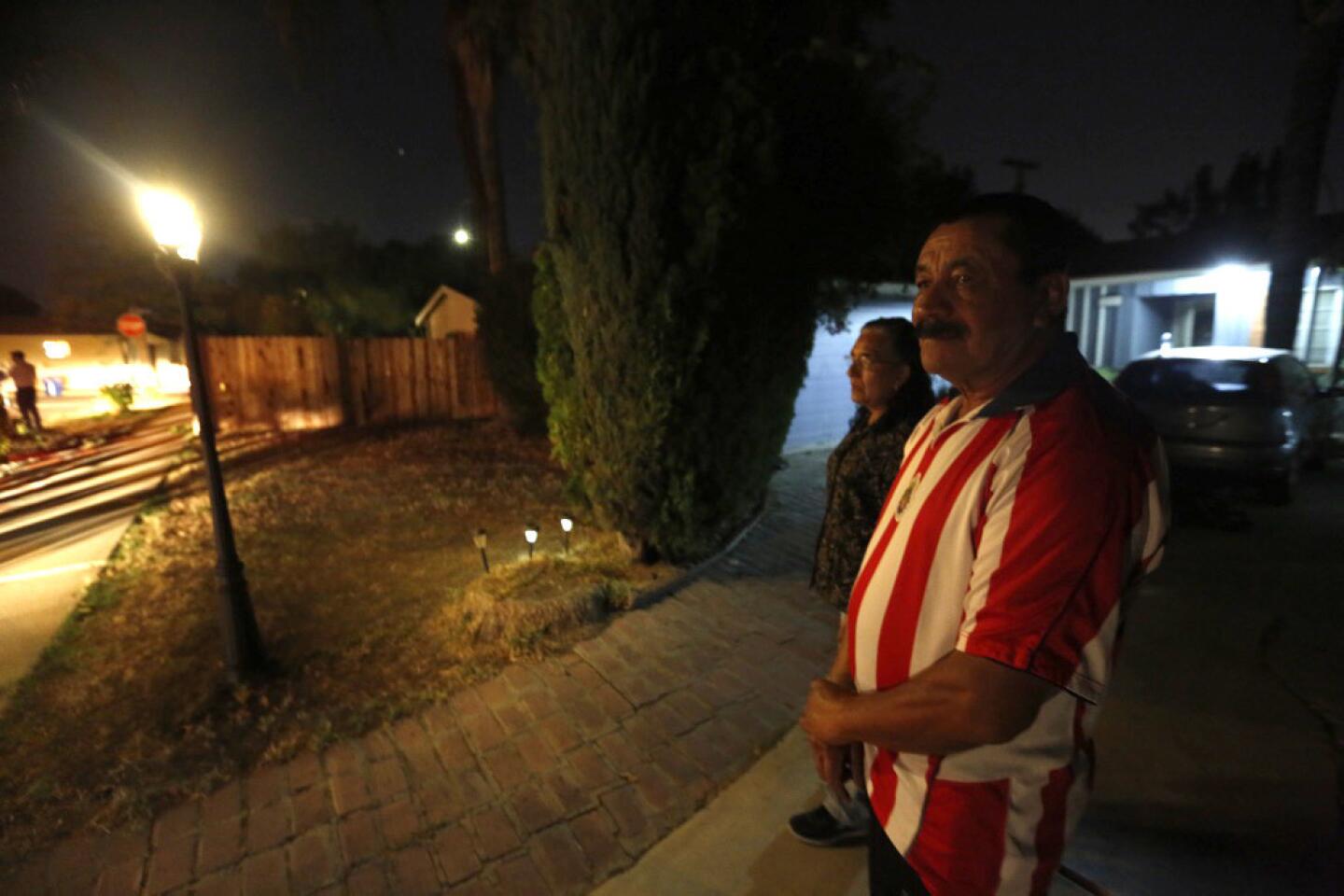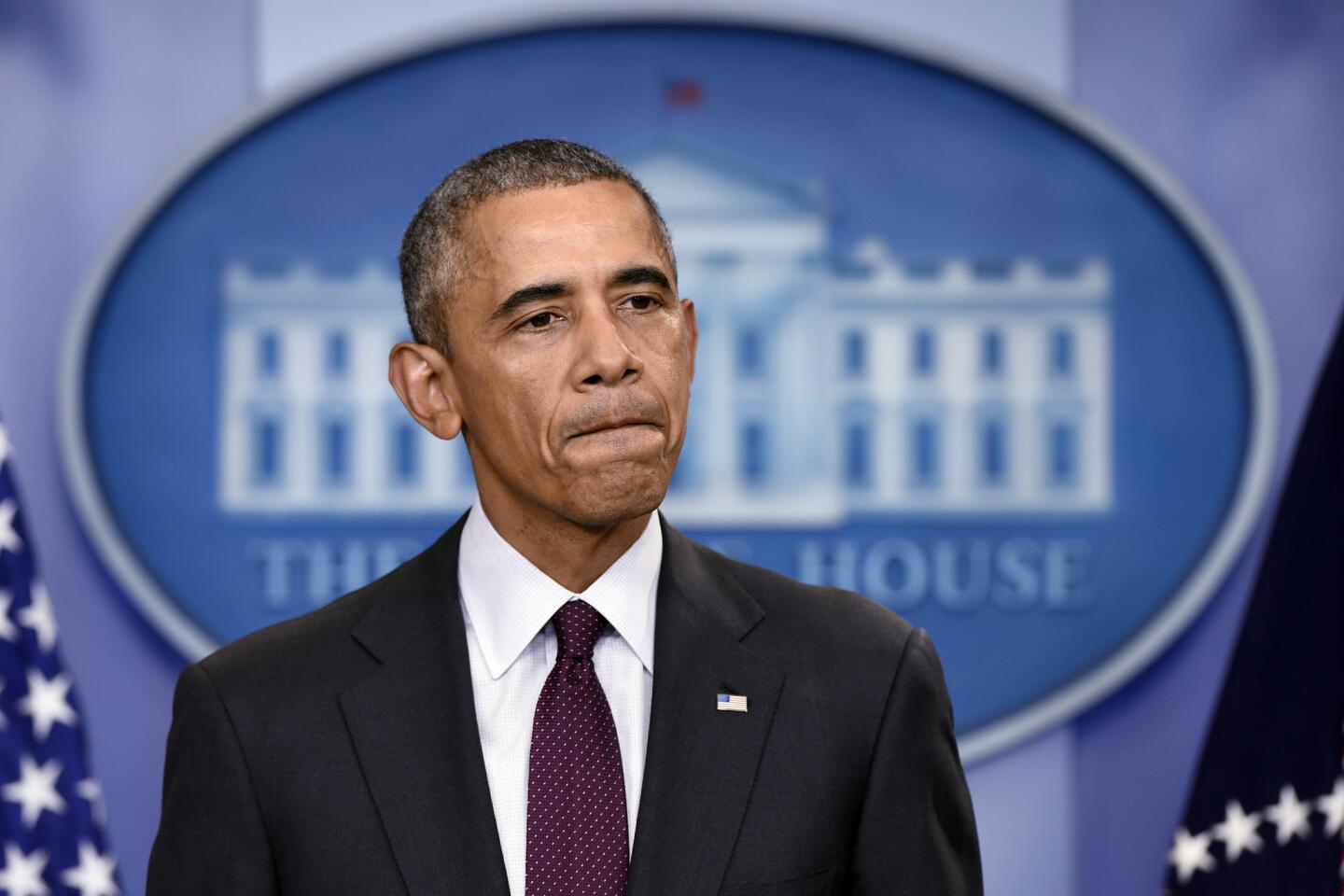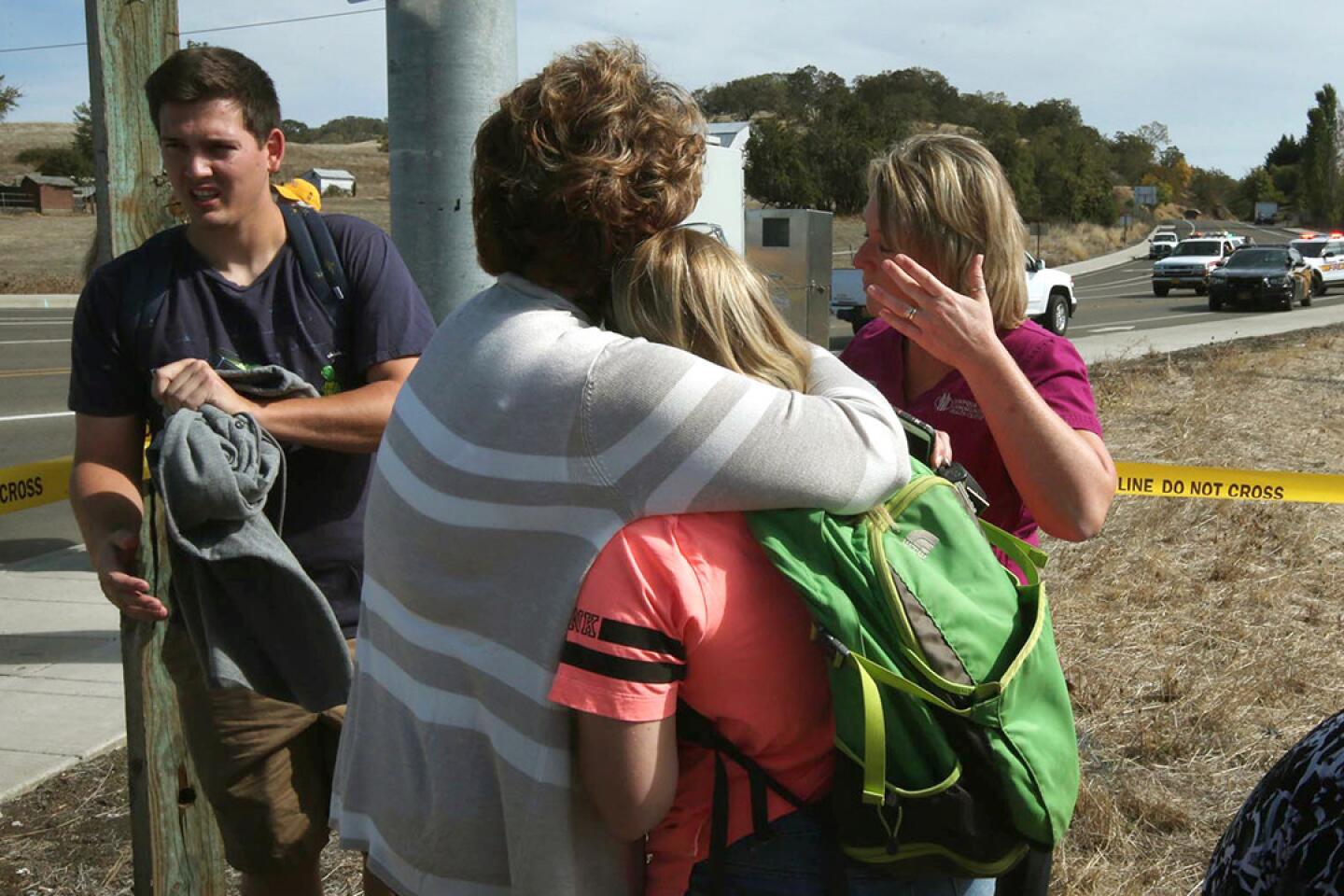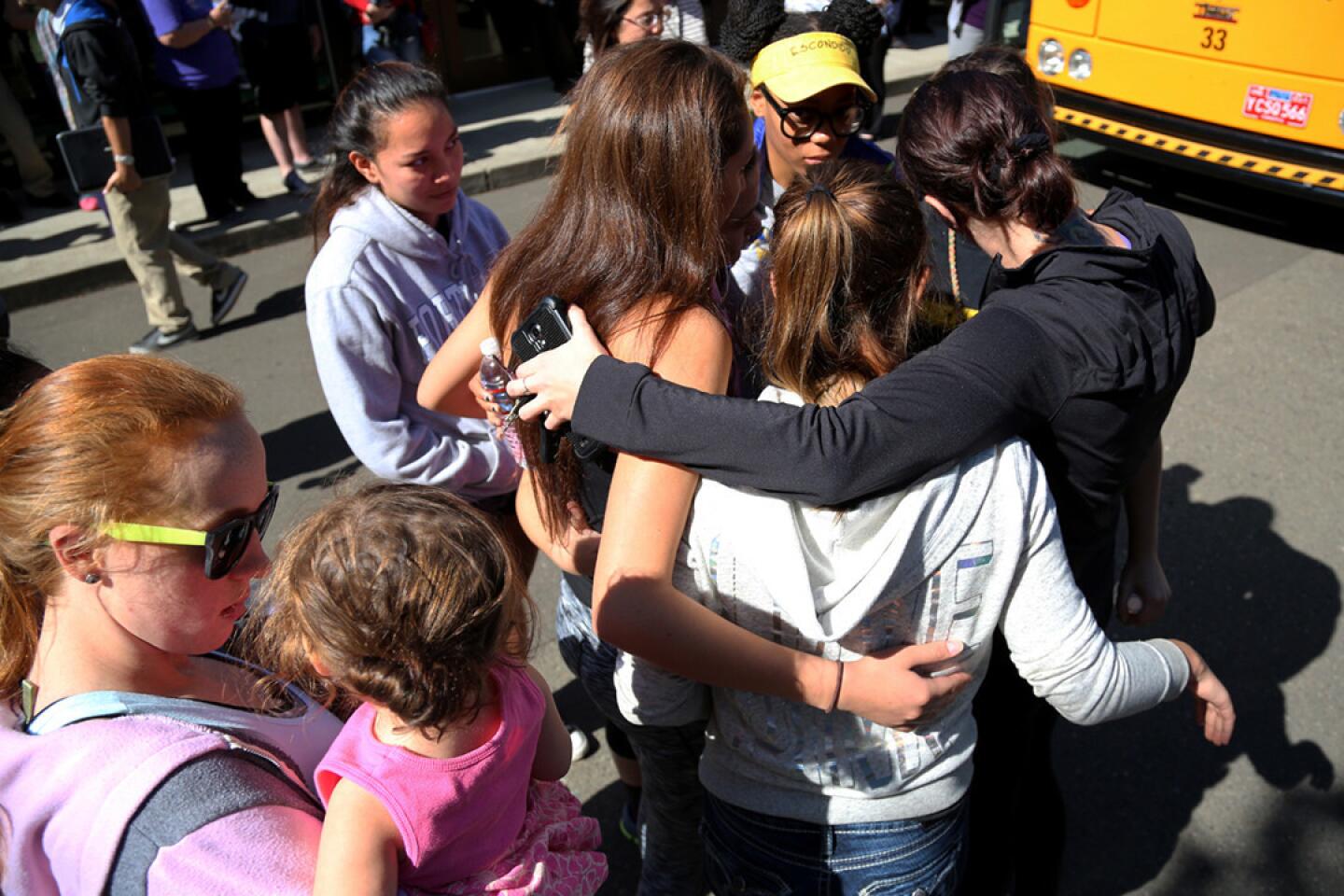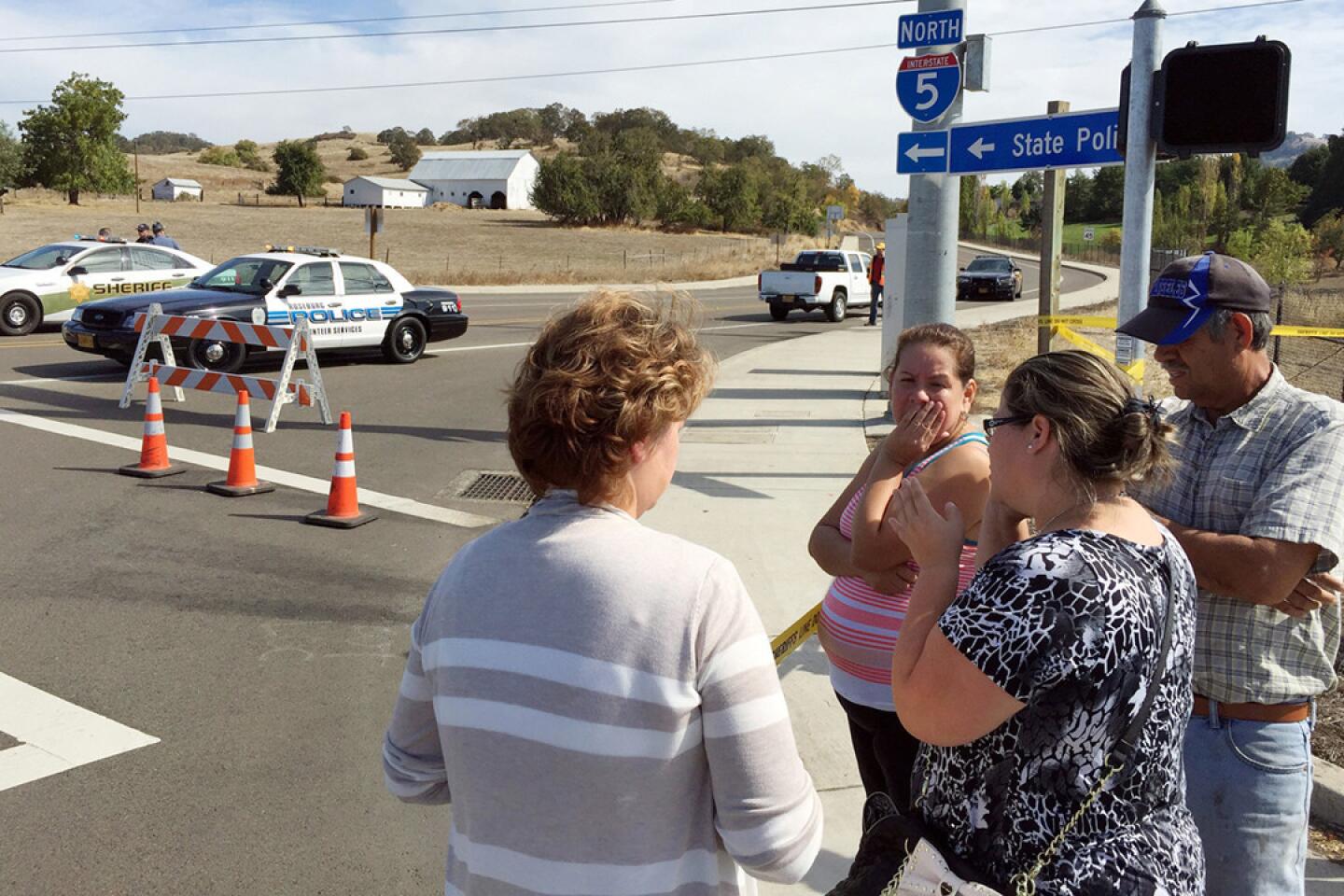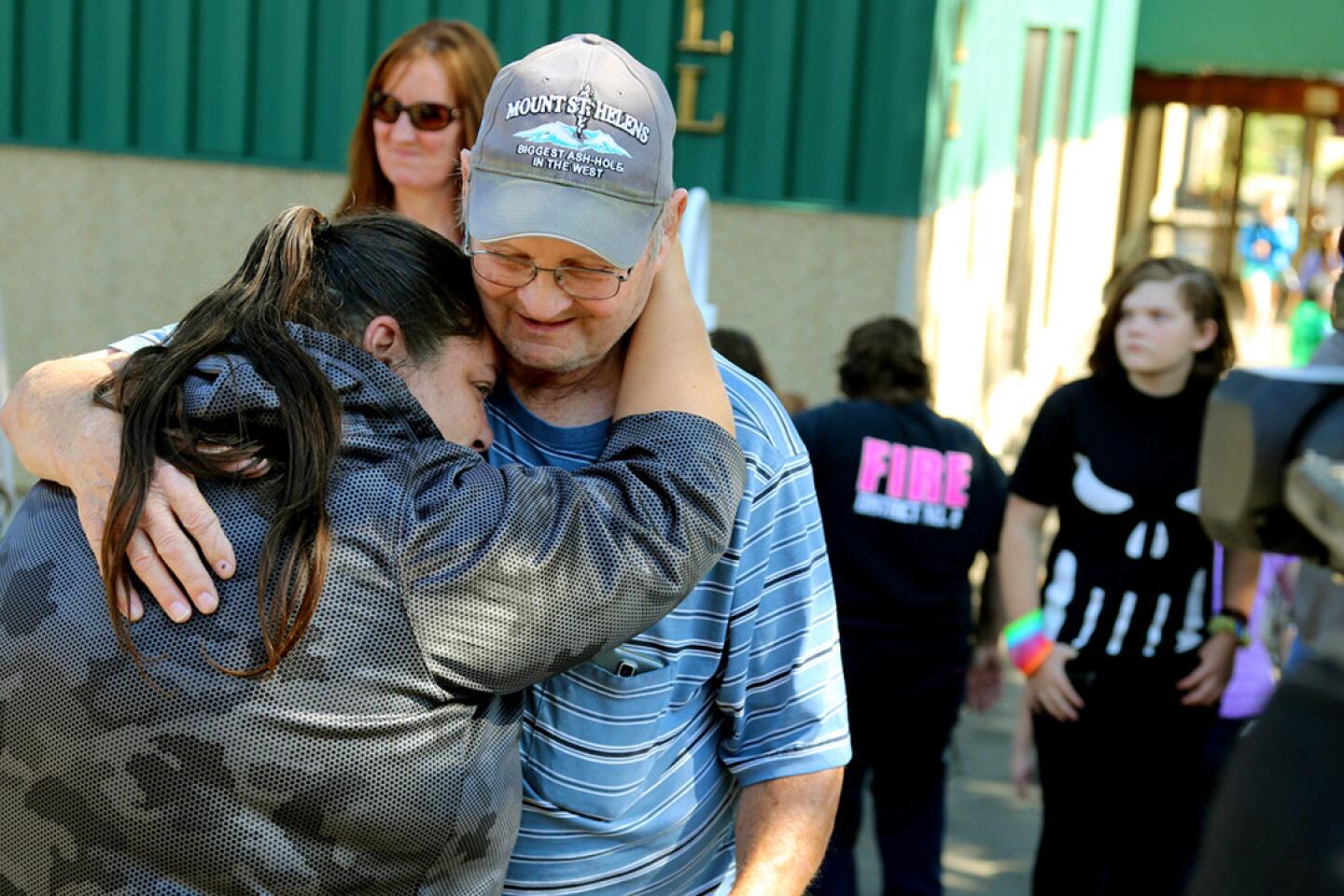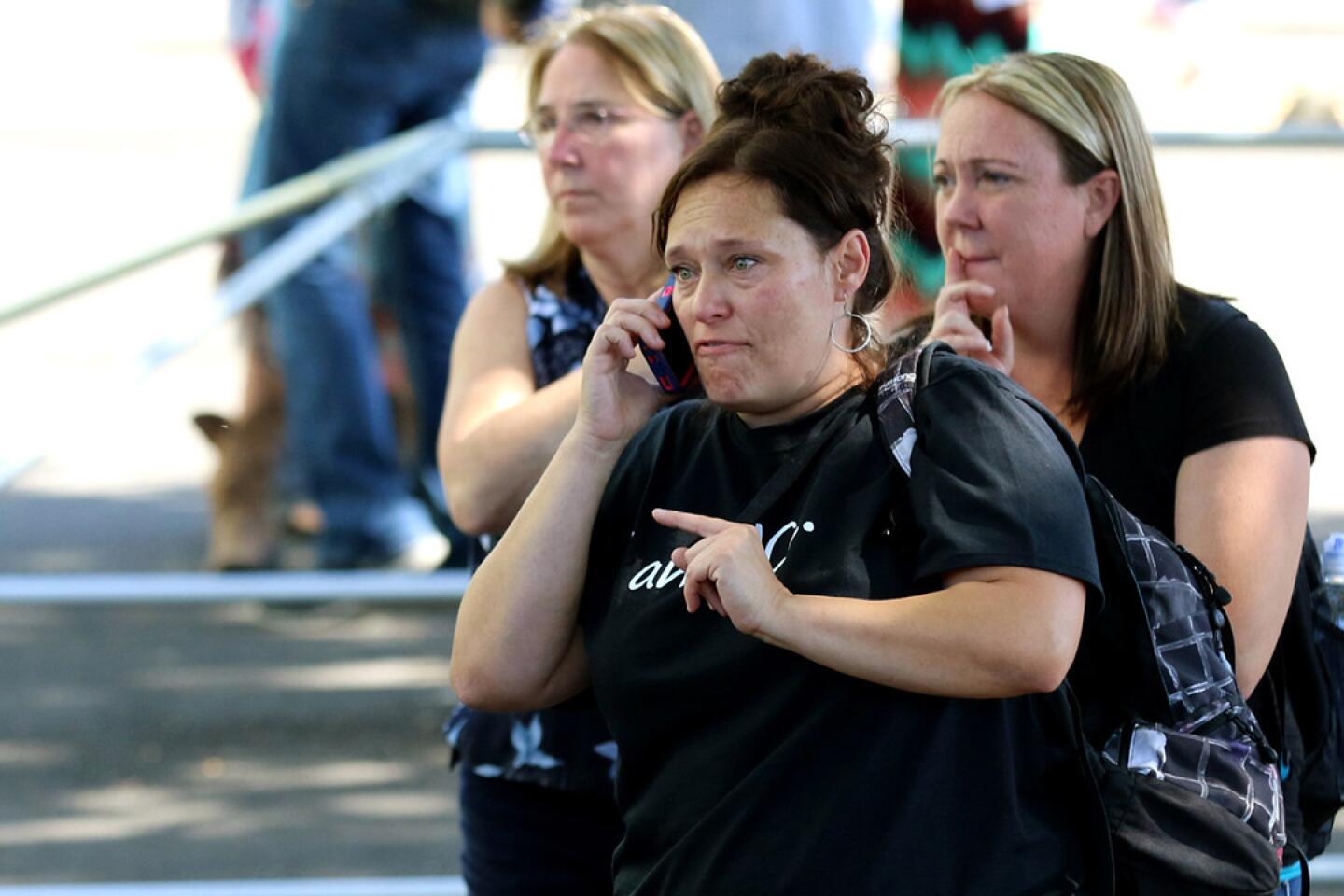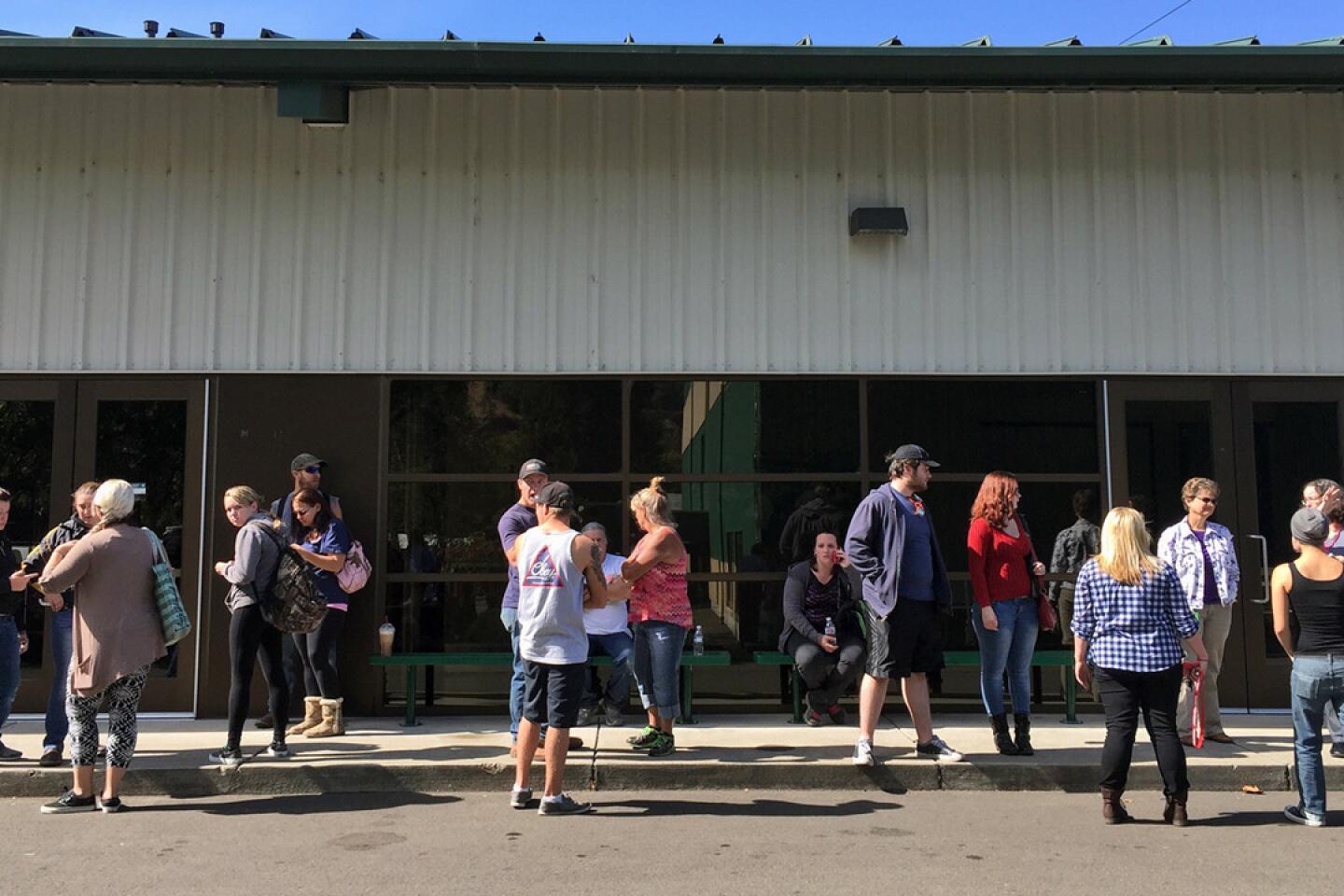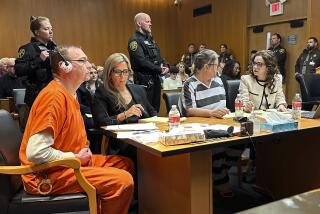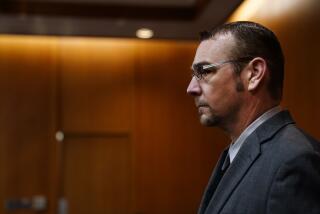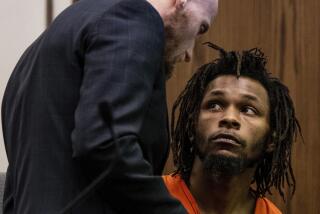Death in a classroom: Oregon shooter targeted his English class
The gunman who carried out the deadly attack at Umpqua Community College was a student in the same class as many of his nine victims: Writing 115, also called Introduction to Expository Writing.
Authorities identified the dead on Friday and they, as well as friends and family, shared details about those lost.
Some were teenagers, trying to make their way toward four-year colleges. The oldest was their teacher, Larry Levine, 67, an assistant professor of English who taught part time at Umpqua for many years so he could pursue his other passions – fly fishing on the Umpqua River and writing about the outdoor world he loved.
In between, there were mothers and fathers just looking to learn.
“This is one of the hardest things that anyone has to do,” C. Lance Colley, city manager in the small town of Roseburg, said when the victims were named. “Something that we hoped won’t happen anywhere, much less our community.”
In addition to Levine, the slain victims were identified as Lucero Alcaraz, 19; Quinn Glen Cooper, 18; Kim Saltmarsh Dietz, 59; and Lucas Eibel, 18, all of Roseburg, Ore.; Jason Johnson, 33, of Winston, Ore.; Sarena Dawn Moore, 44, and Rebecka Ann Carnes, 18, both of Myrtle Creek, Ore.; and Treven Taylor Anspach, 20, of Sutherlin, Ore.
“We have been trying to figure out how to tell everyone how amazing Lucas was,” Eibel’s family said in one of several statements officials read from families. “But that would take 18 years.”
The gunman was described Friday as a “hate-filled” individual with anti-religion and white supremacist leanings who had long struggled with mental health issues, law enforcement sources said.
Officials said Friday that they recovered 13 weapons linked to the shooter, identified as Christopher Sean Harper-Mercer, 26. Six weapons were found at the college, seven were found during a search of his apatrtment—and all were legally purchased, officials said.
During Thursday’s rampage, Harper-Mercer wore body armor and had extra ammunition, although it was unclear whether he carried it during the shooting or left it in his car, a federal source said Friday. Mercer was killed in a gunfight with sheriff’s deputies.
Mercer was armed with six legally purchased guns, extra ammunition and a flak jacket when he launched his deadly attack on a classroom — and had left seven other weapons at his home, officials said on Friday.
Five handguns and a rifle were recovered at the school and two more handguns, four rifles and a shotgun were recovered in his apartment, said Celine Nunez, assistant special agent in charge of the Seattle field division of the Bureau of Alcohol, Tobacco, Firearms and Explosives.
“We also were able to recover a flak jacket lying next to the rifle at the school,” Nunez said. “The jacket had steel plates, along with five magazines. An additional amount of ammunition was also recovered at the apartment.”
The shooting was the latest in a string of attacks at schools and colleges that have left scores dead. In addition to the nine killed at Umpqua, at least nine people were wounded.
Police say Harper-Mercer entered his Writing 115 class in Snyder Hall around 10:30 a.m. Thursday, after it had already started, and began firing. It was just the second day the class had met this semester.
Levine’s colleague, Andrew Madaus, who shared an office with him and sometimes taught the same class, said Writing 115 was an entry-level course some students were required to take before they could take a higher-level course for which they could earn college credit.
“It’s basically for the students who did not quite test well enough or get into an argumentative writing class,” Madaus said. “It’s a refresher on compare and contrast, definition essays. We give you a word, a concept, maybe a science term or something, and you do basic research and say what it means.”
Madaus said the layout and limited sight lines around Snyder Hall would have made it fairly easy for a gunman to enter without being initially detected. He said it was unlikely the gunman knew Levine well or could have had enough experience with him to be frustrated by something that happened in class.
“He was just so easy-going,” he said of Levine. “He’s not the kind of teacher that drives you nuts because they’re always in your face. He was perfect for that lower-level class because he had that extra patience. I just don’t know how we’re going to move forward.”
Levine also taught higher levels of writing, including creative writing, which Madaus said he had particularly enjoyed teaching.
As shots erupted, some students tried to hide in their classrooms, and some frantically called 911, sending a stream of ambulances to the campus with sirens screaming.
Harper-Mercer was killed in a gunfight with sheriff’s deputies.
Investigators discovered through interviews that Harper-Mercer had struggled with his mental health since he was a teenager and that his condition undermined his ability to succeed in life, a law enforcement source said.
One of the setbacks occurred in 2008, when he was discharged from the Army after just one month for failing to meet the minimum administrative standards to serve, according to records. He had been stationed at Ft. Jackson, S.C, from Nov. 5 to Dec. 11 of that year.
At Umpqua, Harper-Mercer had signed up for a theater class that had yet to meet. Benjamin Jacobsen said that he didn’t know Harper-Mercer, but they had both signed up to work on the fall production of “Blithe Spirit.”
On Thursday, Jacobsen was in an English class when he heard the shots coming from the adjoining room.
“I heard a loud bang, like a table falling or an overly excited scientist doing an experiment,” he said. Then there was silence, he said, following by a rapid volley of gunfire.
At a news briefing Friday, Douglas County Sheriff John Hanlin refused to use the gunman’s name, saying he did not want to “glorify” the man whose actions have stunned the timber community 180 miles south of Portland.
“These families are currently living through the nightmare in the most personal way possible,” Hanlin said.
Amid national calls for tighter gun control laws, Hanlin has been firm in his opposition. He spoke out against gun control legislation last year, telling a state legislative committee that mandating background checks for private, person-to-person gun sales would not prevent criminals from getting firearms.
Hanlin also sent a letter to Vice President Joe Biden after the 2012 shooting at a Newtown, Conn., elementary school.
Hanlin said he and his deputies would refuse to enforce new gun control restrictions “offending the constitutional rights of my citizens.”
On Friday, Hanlin said he hasn’t changed his position on gun control, but refused to discuss any details.
“My focus right now is on getting this investigation completed,” he told reporters. “This is not an appropriate time to have conversation” about gun control.
In Washington, President Obama bemoaned the political divide that prevented the passage of stricter gun laws and said he would continue pushing for change.
See the most-read stories this hour >>
“The main thing that I’m going to do is, I’m going to talk about this,” Obama said, reiterating his vow to “politicize” the issue. Obama said that gun control proponents must be as organized and aggressive as those on the other side of the issue. “Unless we change that political dynamic, we’re not going to be able to make a big dent in this problem,” Obama said.
“The politics has to change,” he said.
The shooting has ripped the heart out of this rural community of about 22,000. The community college said it would remain closed through next week.
“All of Oregon stands with Umpqua Community College and Roseburg,” Oregon Gov. Kate Brown said.
Brown, U.S. Sens. Ron Wyden and Jeff Merkley, and Rep. Peter DeFazio praised the town’s citizens for coming together to help the victims of the shooting.
They derided gun violence, but insisted the event was too fresh for specific proposals and the expected political battles that have marked the string of shootings.
Mass shootings are “going to keep happening until we decide it will stop,” the governor said.
“This is a conversation we will have,” Brown said of gun control laws. “But today is not the day.”
Muskal and Winton reported from Los Angeles, Gerber from Roseburg. Times staff writers Matt Pearce in Roseburg, William Yardley in Seattle and W.J. Hennigan in Washington contributed to this report.
MORE FROM OREGON SHOOTING:
Oregon gunman queried students on religion during shootings
Everything we know about the Oregon college shooter, Chris Harper-Mercer
Oregon shooter was anxious and liked guns and target shooting, neighbors say
More to Read
Start your day right
Sign up for Essential California for news, features and recommendations from the L.A. Times and beyond in your inbox six days a week.
You may occasionally receive promotional content from the Los Angeles Times.
